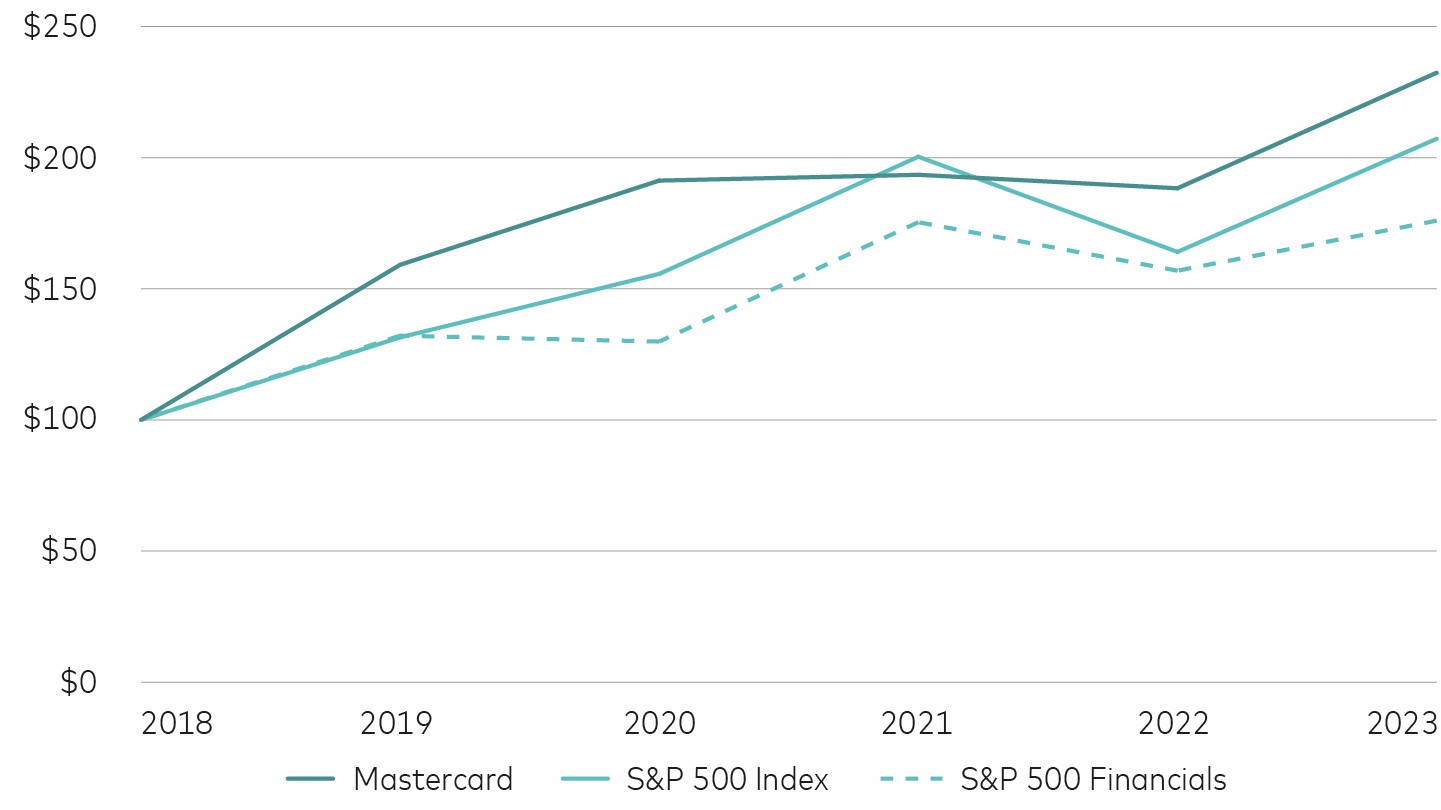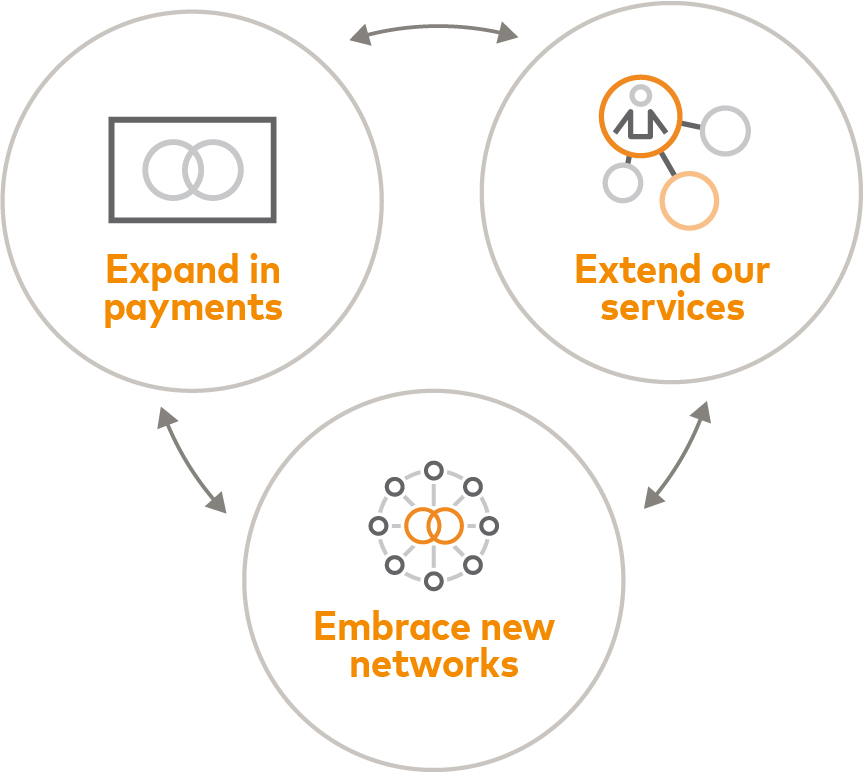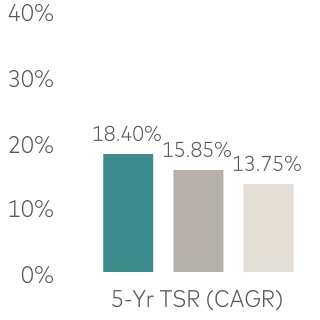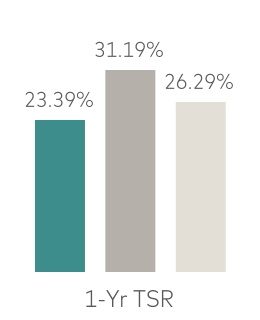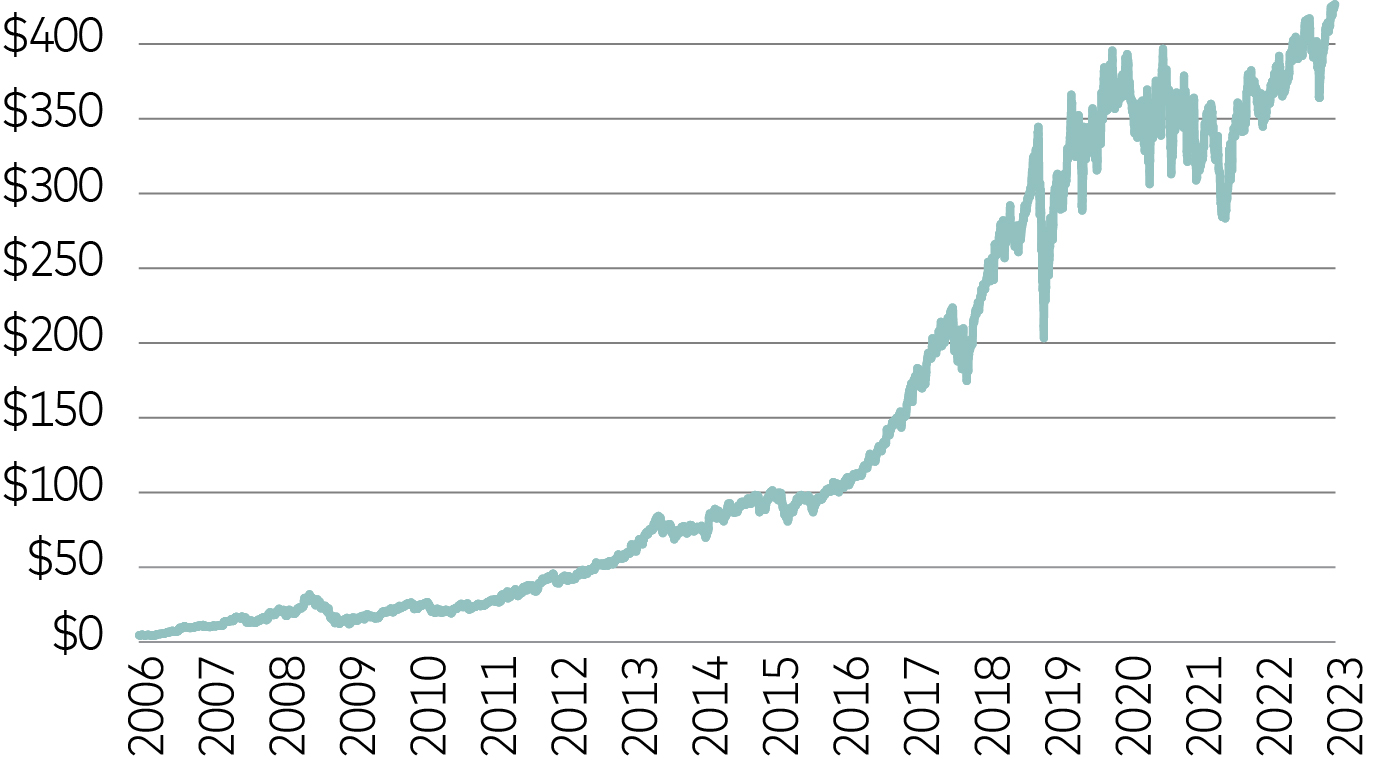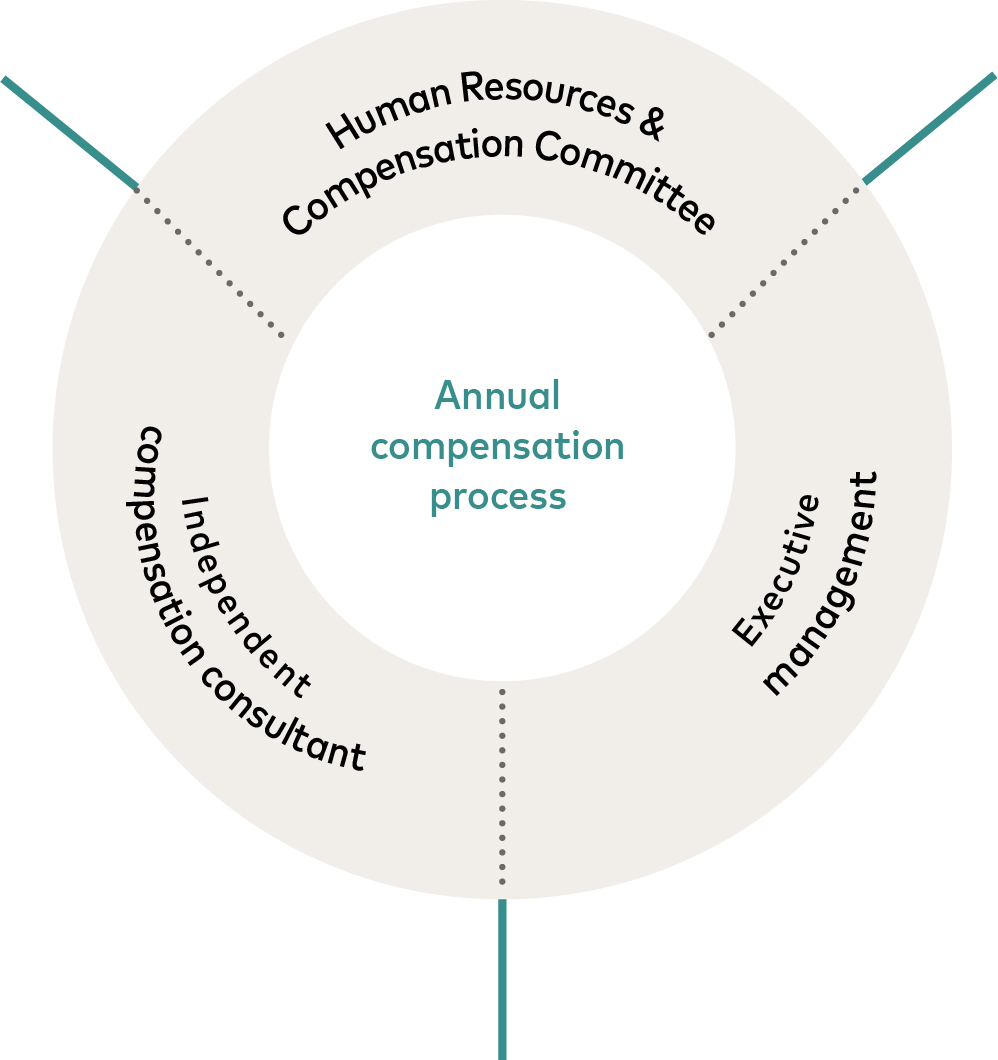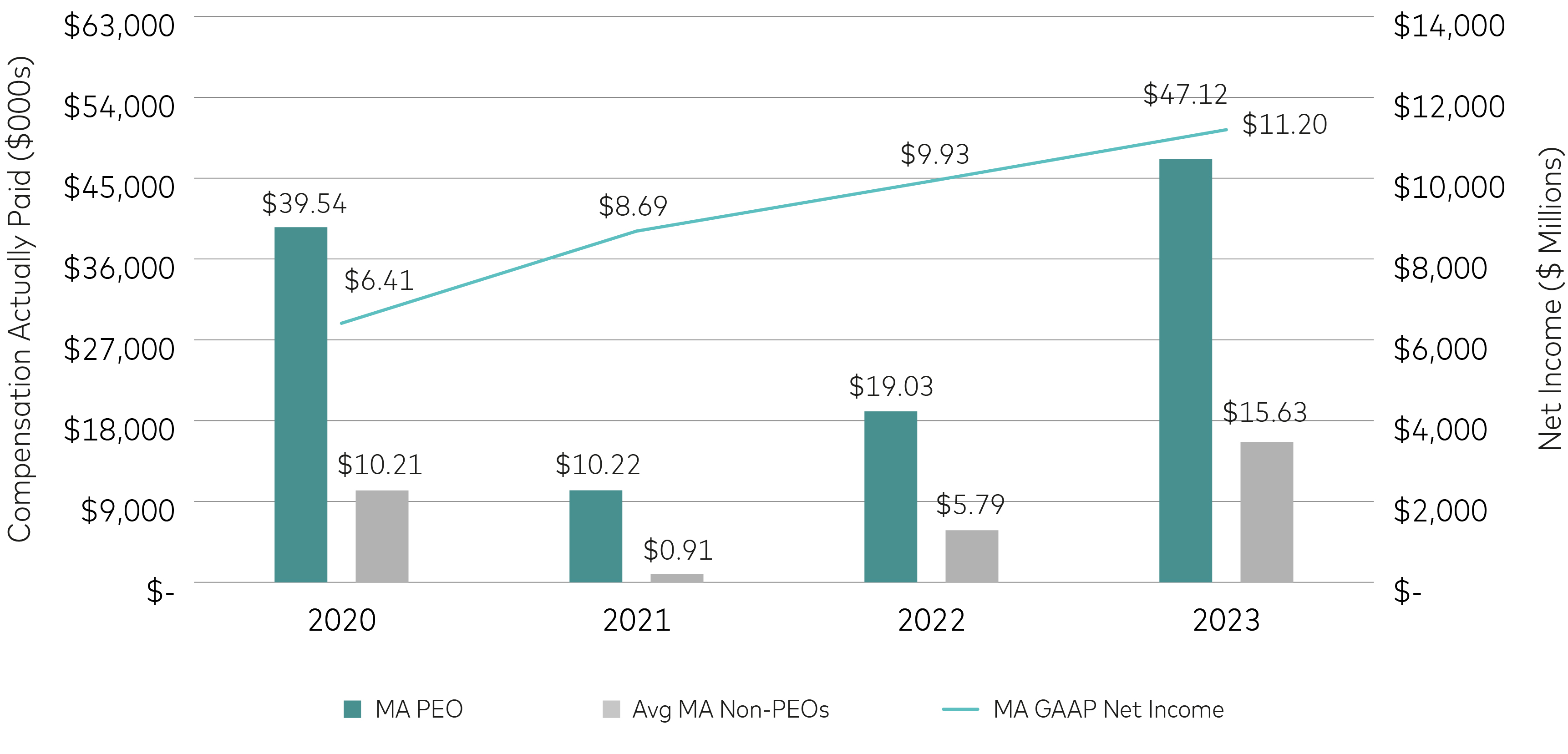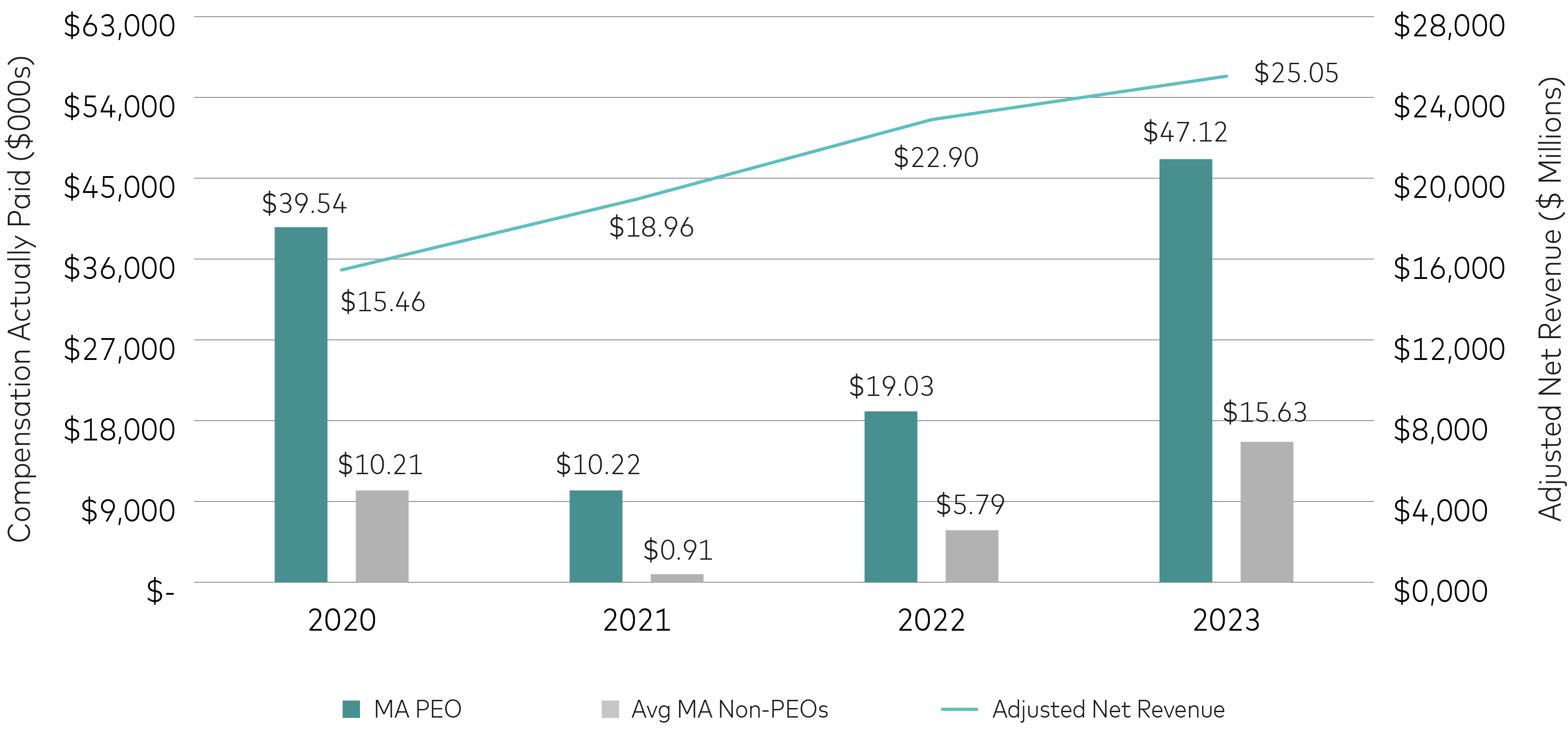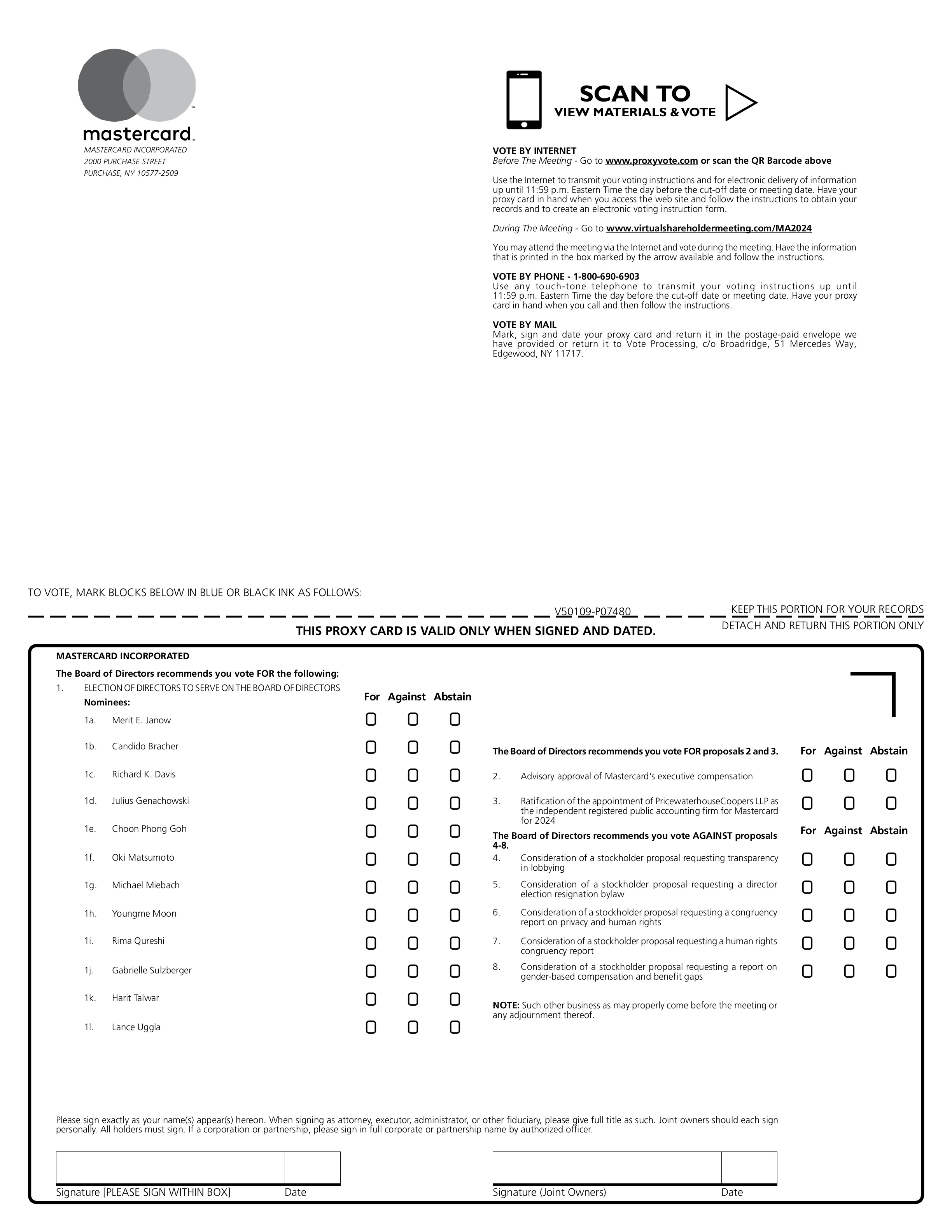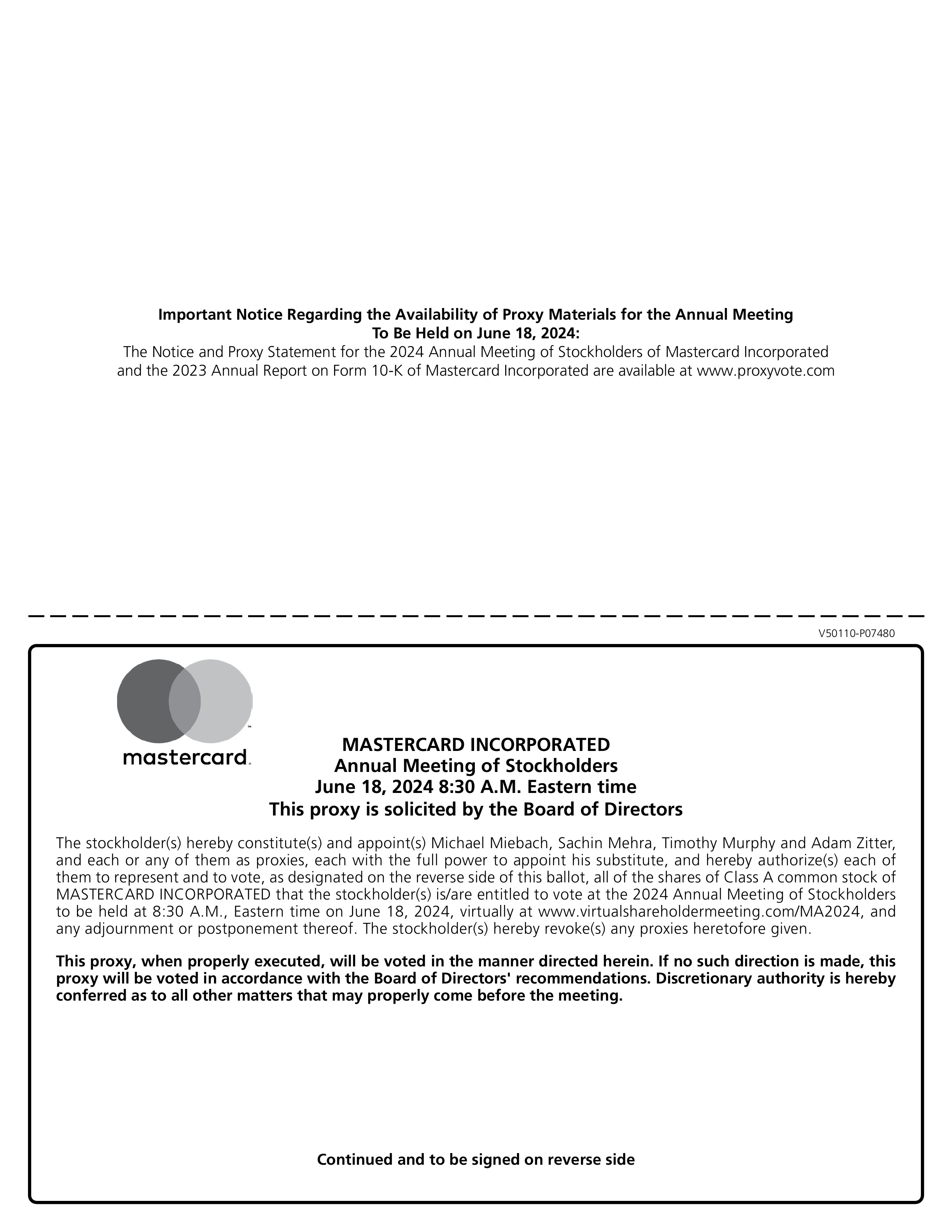0001141391DEF 14AFALSE00011413912023-01-012023-12-310001141391ma:MiebachMember2023-01-012023-12-31iso4217:USD0001141391ma:MiebachMember2022-01-012022-12-3100011413912022-01-012022-12-310001141391ma:MiebachMember2021-01-012021-12-3100011413912021-01-012021-12-310001141391ma:BangaMember2020-01-012020-12-3100011413912020-01-012020-12-310001141391ecd:EqtyAwrdsInSummryCompstnTblForAplblYrMemberecd:PeoMember2023-01-012023-12-310001141391ecd:PeoMemberecd:YrEndFrValOfEqtyAwrdsGrntdInCvrdYrOutsdngAndUnvstdMember2023-01-012023-12-310001141391ecd:PeoMemberecd:ChngInFrValOfOutsdngAndUnvstdEqtyAwrdsGrntdInPrrYrsMember2023-01-012023-12-310001141391ecd:ChngInFrValAsOfVstngDtOfPrrYrEqtyAwrdsVstdInCvrdYrMemberecd:PeoMember2023-01-012023-12-310001141391ecd:FrValAsOfPrrYrEndOfEqtyAwrdsGrntdInPrrYrsFldVstngCondsDrngCvrdYrMemberecd:PeoMember2023-01-012023-12-310001141391ecd:EqtyAwrdsInSummryCompstnTblForAplblYrMemberecd:NonPeoNeoMember2023-01-012023-12-310001141391ecd:NonPeoNeoMemberecd:YrEndFrValOfEqtyAwrdsGrntdInCvrdYrOutsdngAndUnvstdMember2023-01-012023-12-310001141391ecd:NonPeoNeoMemberecd:ChngInFrValOfOutsdngAndUnvstdEqtyAwrdsGrntdInPrrYrsMember2023-01-012023-12-310001141391ecd:ChngInFrValAsOfVstngDtOfPrrYrEqtyAwrdsVstdInCvrdYrMemberecd:NonPeoNeoMember2023-01-012023-12-310001141391ecd:FrValAsOfPrrYrEndOfEqtyAwrdsGrntdInPrrYrsFldVstngCondsDrngCvrdYrMemberecd:NonPeoNeoMember2023-01-012023-12-31000114139122023-01-012023-12-31000114139112023-01-012023-12-31
UNITED STATES
SECURITIES AND EXCHANGE COMMISSION
WASHINGTON, D.C. 20549
SCHEDULE 14A
(Rule 14a-101)
Proxy Statement Pursuant to Section 14(a)
of the Securities Exchange Act of 1934
Filed by the Registrant x
Filed by a Party other than the Registrant ¨
Check the appropriate box:
| | | | | | | | |
¨ | | Preliminary Proxy Statement |
¨ | | Confidential, for Use of the Commission Only (as permitted by Rule 14a-6(e)(2)) |
x | | Definitive Proxy Statement |
¨ | | Definitive Additional Materials |
¨ | | Soliciting Material under §240.14a-12 |
|
|
| Mastercard Incorporated |
| (Name of Registrant as Specified in its Charter) |
|
| (Name of Person(s) Filing Proxy Statement, if other than Registrant) |
| Payment of Filing Fee (Check all boxes that apply): |
| x | No fee required |
¨ | Fee paid previously with preliminary materials. |
¨ | Fee computed on table in exhibit required by Item 25(b) per Exchange Act Rules 14a-6(i)(1) and 0-11 |
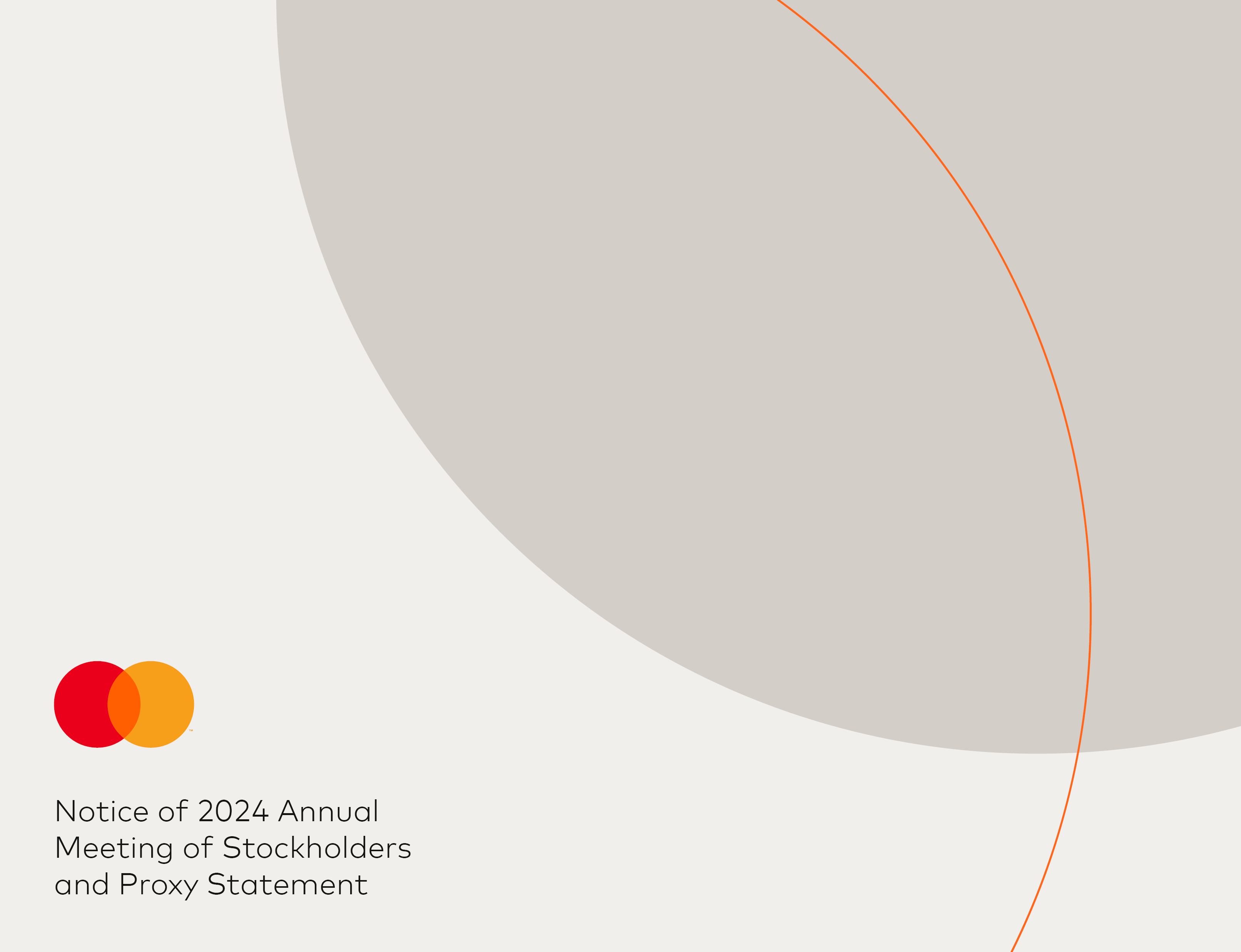
| | | | | | | | | | | | | | | | | | | | | | | | | | | | | | | | | | | | | | |
| | | | | | | | | | | | |
| 06 | | 07 | | 08 | | 09 | | 10 | | 11 | | |
| | | | | | | | | | | | Forward-Looking Statements and Website References |
| | | | | | | | | | | |
| | | | | | |
| | | | | | Links to websites included in this proxy statement are provided solely for convenience purposes only. Content on the websites, including content on Mastercard’s website, is not, and shall not be deemed to be, part of this proxy statement or incorporated by reference herein or into any of our other filings with the Securities and Exchange Commission. This proxy statement contains forward-looking statements pursuant to the safe harbor provisions of the Private Securities Litigation Reform Act of 1995. All statements other than statements of historical facts may be forward-looking statements. When used in this proxy statement, the words “believe,” “could,” “drive,” “enhance,” “expand,” “expect,” “extend,” “grow,” “may,” “trend,” “would,” “will,” and similar words are intended to identify forward-looking statements. Examples of forward-looking statements include, but are not limited to, statements that relate to Mastercard’s future prospects, developments and business strategies, including, but not limited to, our continued efforts, progress and achievements with respect to environmental, social and governance. We caution you to not place undue reliance on these forward-looking statements, as they speak only as of the date they are made. We undertake no obligation to update or revise any forward-looking statements. |
| | | | | | | | | | | |
| | | | | | | | | | | |
| | | | | | |
| | | | | | | | | | | | |
ANNUAL LETTERS FROM MASTERCARD LEADERSHIP 2024
| | | | | | | | |
| Capturing our digital future Dear Fellow Stockholder: |
April 26, 2024 |
Our world is becoming more digital as technology becomes smarter and more intuitive. That’s creating positive momentum for small businesses, government services, supply chains, transit and so many others. There’s the potential for us all to do more and do it faster, bringing millions more people into the digital economy for the first time. We’re steering and supporting this momentum in our industry. Working closely with our many partners, Mastercard created many of the payments technologies – contactless cards, tokenization, cybersecurity defenses – that make this digitization possible. People use our global network hundreds of millions of times a day to safely and easily transfer money, make payments and get paid. We are pursuing a future that accelerates these changes to deliver more value, stronger relationships and greater efficiency. Banking and retail experiences that can be more personalized. Commercial services that simplify processes for businesses of all sizes. AI-powered cybersecurity that allows us all to stay one step ahead of scammers. This is how we’re powering economies and empowering people. It’s how we are helping to build resilience. And we are just getting started. Our 2023 at a glance In 2023, we delivered another strong year as we remained focused on the strategic priorities that fuel our growth algorithm across payments, services and new networks. The numbers speak for themselves, with net revenue, gross dollar volume and switched transactions all growing by double digits last year. Our joint venture in China received government approval, setting the stage for us to start processing domestic transactions in the second most-populous nation in the world for the first time. The impact of our work was widely recognized. We ranked No. 1 on Fair360’s list of top companies for diversity. We again topped the International Institute for Management Development’s Future Readiness list. Our brand – ranked as one of the top 10 in the world by Kantar BrandZ – stands for trust, reliability and priceless experiences. Momentum continues into 2024. We see significant runway to keep growing the choices people and businesses have in payments and beyond. |
ANNUAL LETTERS FROM MASTERCARD LEADERSHIP 2024
| | | | | | | | |
How we power economies Our growth algorithm is about capturing the natural growth of economies, accelerating the secular shift to electronic payments, further penetrating the addressable market in new flows and growing our share of the market. It’s also about growing in services and new networks by scaling our solutions to existing and new customer types, while continuing to build and deploy new solutions. Here’s what that looks like in the real world: Expanding in payments People have a choice in how they pay – card, account-to-account, buy now pay later and more. Our focus is on giving them a reason to choose Mastercard across all these areas. And they are. We’re winning new business in consumer payments – proof that our efforts to expand digitization are working. Two quick examples – last year, we significantly expanded our partnership with UniCredit, with the group deciding to use Mastercard across 12 markets and 13 of its banks. In the U.S., we became the exclusive payments network for Citizens Bank, one of three regulated debit financial institutions to make that decision in 2023. This is balanced with more merchants choosing to accept Mastercard. When new merchants – no matter how small or how remote – tap into our network, they can immediately reach a thriving global digital market. And we’re creating these ripple effects in other payment flows. Our work in commercial payments has expanded into education, travel and many other new kinds of business. We’re doing more in disbursements and remittances, commercial point of sale and business-to-business accounts payable. For example, some healthcare providers are using our virtual cards to replace the cumbersome process of manually submitting claims – unlocking faster, more reliable, more efficient commerce. Taken together, these commercial markets offer a significant opportunity to expand our business and drive long-term growth. Extending our services Payments and services are deeply interconnected. As we help digitize more payments, that opens more opportunities for us to deliver value-added services – including data insights, consulting and cybersecurity. The growth of those services drives more digital payments – and that flywheel keeps turning. Our value-added services and solutions now account for more than 35% of revenue and grew faster than our payment network last year. Our focus in services is all about creating efficiency and value. For example, Mastercard has been using predictive AI for years, especially in our cybersecurity solutions and fraud detection work to protect the billions of transactions that run through our network. To keep up this work, earlier this year we unveiled Decision Intelligence Pro, which uses generative AI to predict the authenticity of transactions, boosting banks' fraud detection work. There is still more predictive AI can deliver even as we explore the potential in generative AI. We are working to integrate AI into even more of what we do in a principled manner to make every digital experience even smarter, even safer and even more personalized. | People have a choice in how they pay – card, account-to-account, buy now pay later and more. Our focus is on giving them a reason to choose Mastercard across all these areas. And they are. |
ANNUAL LETTERS FROM MASTERCARD LEADERSHIP 2024
| | | | | | | | |
Our culture and the way we work together combines high performance with high empathy. That’s how we achieve everything we do. | Our approach to AI is the same as with any other technology – we’re focused on trust, security and consumer protections first. That’s why this year we continued to evolve our data and tech responsibility principles – security and privacy, transparency, accountability, fairness, inclusion, innovation, social impact – to ensure they remain relevant and valuable guardrails. And we are using them to collaborate with partners and help shape trustworthy standards across industries, including through the U.S. AI Safety Institute Consortium. Embracing new networks We’re always looking to grow in adjacent spaces, using our expertise running a global payments network to create value for new and current customers. Our work to develop new ways to integrate digital identification and open banking to integrate both technologies into our core payments and services is an example of this effort. For instance, digital ID has quickly become a vital way for people in many countries to access government services, vote and shop online. Our open banking assets provide connectivity to more than 95% of deposit accounts in the U.S. and approximately 3,000 banks across Europe. Those connections allow consumers to seamlessly share data between trusted parties and improve the bill pay experience for customers of Verizon and Worldpay. There’s even greater opportunity ahead as we bring digital ID and open banking together. How we empower people This only happens because our people make it possible – all 33,000+ Mastercard colleagues – coders, consultants, economists, cybersecurity experts, everyone. Our culture and the way we work together combines high performance with high empathy. That’s how we achieve everything we do. The Mastercard Way is our guiding star for how we do it, focused on three tenets: •Create value – for our partners, teams and investors by thinking big and bold, and innovating •Grow together – by helping each other be great •Move fast – prioritizing what matters and pivoting when needed Underlying the Mastercard Way is our commitment to ensure the social and environmental impact we have equally drives our business – do well by doing good. For example, we continue to make progress on our ambitious goal of bringing 1 billion more people into the digital economy. That’s expanding opportunities for people while also seeding our future markets. |
ANNUAL LETTERS FROM MASTERCARD LEADERSHIP 2024
| | | | | | | | |
Our look to the future As I close this letter, I thank my Mastercard colleagues all over the world for their dedication, caring and passion. And thank you to our customers and partners for trusting us and innovating with us. We’ll keep doing our part to build a smarter, safer, more inclusive digital future and deliver the payments and services people and businesses need every day. That is the expectation you – our customers, partners, account holders and shareholders – have for us. It is a responsibility we are focused on every day. Thank you for your continued support. | We’ll keep doing our part to build a smarter, safer, more inclusive digital future and deliver the payments and services people and businesses need every day. |
| | |
Michael Miebach
CEO, Mastercard | | |
ANNUAL LETTERS FROM MASTERCARD LEADERSHIP 2024
| | | | | | | | |
| Dear Fellow Stockholder, | April 26, 2024 |
| As people’s lives become increasingly more digital, the Board believes that Mastercard will continue to prosper and grow - even in areas we are just beginning to imagine. | Despite the challenges of a rapidly evolving economic and technological landscape, Mastercard has been consistently delivering exceptional value to our shareholders, a validation of the strength and resilience of our strategy. 2023 was no exception. The core elements of the strategy highlight the interconnected nature of core payments, new payment flows, value-added services and the opportunities in new networks. Mastercard’s strengths in these areas reflect more than a decade of investment in building and advancing a world-class set of differentiated solutions. Even with the best products and strategy, outstanding results do not happen on their own. They require excellent execution, and the Board honors the resilience and creativity that the entire Mastercard organization brings to its work. I would like to take this opportunity to recognize Mastercard’s 33,000+ employees and their dedication to having a positive impact on a global scale. Their efforts to expand access to the digital economy and to create a safer and more connected digital financial ecosystem are clear examples of their work in action and a legacy that they are leaving. As people’s lives become increasingly more digital, the Board believes that Mastercard will continue to prosper and grow – even in areas we are just beginning to imagine. The Mastercard management team is committed to fostering an innovation environment that seizes and invests in growth opportunities and builds new partnerships, while staying true to the principles that guide its activities. You see this in how Mastercard responsibly approaches data and technology to enable the testing, learning and deployment of new tools and services. As a Board, we have the responsibility and obligation to ask tough questions and apply our diverse expertise to the challenges and opportunities Mastercard faces worldwide. The Board collectively has a wealth of experience across geographies, industries and sectors. The proxy statement describes our corporate governance policies and practices and our commitment to be independent, rigorous and transparent. Looking ahead, we see significant opportunities and a bright future for Mastercard. Thank you for supporting our Company and for giving us the opportunity to continue as Directors. Michael and I look forward to discussing these areas and more during our upcoming annual meeting. |
| | |
| Merit E. Janow
Board Chair | |
| | |
|
|
| Our Board of Directors |
|
|
Back row, standing, from left: Harit Talwar; Youngme Moon, Risk Committee Chairperson; Rima Qureshi; Michael Miebach, President and CEO; Candido Bracher Middle row, seated, from left: Richard K. Davis, HRCC Chairperson; Merit E. Janow, Board Chair and NCG Chairperson; Julius Genachowski, Audit Committee Chairperson Front row, seated, from left: Choon Phong Goh; Lance Uggla; Oki Matsumoto; Gabrielle Sulzberger |
|
NOTICE OF 2024 ANNUAL MEETING OF STOCKHOLDERS
| | | | | | | | | | | | | | | | | | | | | | | |
Notice of 2024 annual meeting of stockholders | | |
| When Tuesday, June 18, 2024
at 8:30 a.m. (Eastern time) | | Record date April 19, 2024 | | Who can vote Holders of Mastercard’s Class A common stock at the close of business on April 19, 2024 | | Location Live webcast at: www.virtualshareholdermeeting.com/MA2024 |
| | | | | | | | | | | | | | | | | |
Dear Stockholder: You are invited to attend the Annual Meeting of Stockholders of Mastercard Incorporated (Annual Meeting), which will be held virtually on Tuesday, June 18, 2024 at 8:30 a.m. (Eastern time) at www.virtualshareholdermeeting.com/MA2024. |
|
|
| Items of business | Board vote recommendation | For more
information |
| | | | | |
| | | | | |
| 1 | Election of the 12 nominees named in this proxy statement to serve on Mastercard’s Board of Directors | FOR each director nominee | |
| | | | | |
| | | | | |
| 2 | Advisory approval of Mastercard’s executive compensation | FOR | |
| | | | | |
| | | | | |
| 3 | Ratification of the appointment of PricewaterhouseCoopers LLP as the independent registered public accounting firm for Mastercard for 2024 | FOR | |
| | | | | |
| | ☒ | | | |
| 4-8 | Stockholder proposals, if properly presented | AGAINST | |
| | | | | |
| | | | | | | | | | | | | | | | | |
| | | | | |
Annual meeting website and voting in advance We have created an annual meeting website to make it easy for you to access our Annual Meeting materials at www.mastercardannualmeeting.com. There you will find an overview of the voting items, the proxy statement and the annual report to read online or download, as well as a link to vote your shares. Your vote is important. Please vote as soon as possible by one of the methods shown below. Be sure to have your proxy card, voting instruction form or Notice of Internet Availability of Proxy Materials in hand and follow the below instructions: |
| | | | | |
| By telephone You can vote your shares by calling 800.690.6903 toll-free | | By Internet You can vote your shares online at www.proxyvote.com | | By mail Complete, sign, date and return your proxy card or voting instruction form in the postage-paid envelope provided |
| | | | | |
NOTICE OF 2024 ANNUAL MEETING OF STOCKHOLDERS
| | | | | |
Attending the Annual Meeting We have held our annual stockholder meetings virtually since 2020. Based on our experience over the last four years, our Board and management believe that holding our annual meeting in a virtual format offers a wider group of stockholders the opportunity to participate in the meeting. Our Board intends to continue with the use of the virtual meeting format. Accordingly, the Annual Meeting will be a virtual-only meeting held on June 18, 2024 at 8:30 a.m. (Eastern time). Our Board will be taking the following steps to ensure adequate participation: •Stockholders will be able to vote their shares electronically online during the meeting by going to www.virtualshareholdermeeting.com/MA2024 and logging in using their unique 16-digit control number •Stockholders may submit relevant questions in advance of the meeting by submitting a question under the “Questions for Management” tab at www.proxyvote.com •Stockholders may submit relevant questions during the meeting by entering a question in the Q&A field •We will respond to relevant questions as time permits. If substantially similar questions are received, management may group them together and provide a single response to avoid repetition and allow time for additional topics to be discussed. We expect to address certain unanswered relevant questions on our investor relations site in due course after the meeting •Additional rules of conduct will be posted in advance on the “Investor Relations” section of our website at https://investor.mastercard.com |
•Those without a control number may attend as guests of the meeting but will not have the option to vote their shares, ask questions or otherwise participate in the Annual Meeting Stockholders are encouraged to log in to the webcast up to 15 minutes before the virtual Annual Meeting’s start time. You can find more information under “About the Annual Meeting and voting” on pg 128 of the proxy statement that follows. Audio webcast In addition to participating in the virtual Annual Meeting, you can listen to a live audio webcast of our virtual Annual Meeting by visiting the “Investor Relations” page of our website at https://investor.mastercard.com/overview/default.aspx, beginning at 8:30 a.m. (Eastern time) on June 18, 2024. Date of mailing We will begin mailing our Proxy Materials on or about April 26, 2024. Unless you attend (and vote at) the virtual Annual Meeting, Mastercard must receive your vote either by telephone, Internet, proxy card or voting instruction form by 11:59 p.m. (Eastern time) on June 17, 2024 for your vote to be counted. Telephone and Internet voting facilities will close at that time. Voting by telephone or Internet or by returning your proxy card or voting instruction form in advance of the virtual Annual Meeting does not deprive you of your right to attend or vote at the virtual Annual Meeting. |
| By Order of the Board of Directors, |
| |
| Adam Zitter
Corporate Secretary Purchase, New York April 26, 2024 |
| |
IMPORTANT NOTICE REGARDING THE AVAILABILITY OF PROXY MATERIALS FOR THE ANNUAL MEETING OF STOCKHOLDERS Mastercard Incorporated’s Proxy Statement for the 2024 Annual Meeting of Stockholders (the Proxy Statement) and the 2023 Annual Report on Form 10-K (the 2023 Form 10-K) are available at www.proxyvote.com. |
| | | | | | | | | | | | | | | | | |
| | | | | |
| | Proxy summary |
| | |
| | This summary highlights information contained elsewhere in this proxy statement and does not contain all of the information that you should consider. You should read the entire proxy statement carefully before voting. | 01 | | |
Our mission and purpose and the Mastercard Way
Mastercard is a technology company in the global payments industry. Our mission is to connect and power an inclusive, digital economy that benefits everyone, everywhere by making transactions safe, simple, smart and accessible. Using secure data and networks, partnerships and passion, our innovations and solutions help individuals, financial institutions, governments and businesses realize their greatest potential. With connections across more than 210 countries and territories, we are building a sustainable world that unlocks priceless possibilities for all.
Mastercard defines its culture as the Mastercard Way, and it fuels our vision and strategic priorities. The Mastercard Way consists of three principles that address where we are going as an organization, how we work together, and how we deliver for our customers and each other: Create value • Grow together • Move fast
Our Board nominees
| | | | | | | | | | | | | | | | | | | | | | | | | | | | | | | | | | | | | | | | | | | | | | | | | | |
| | | | | Director
since | | | | | Committee membership |
| Name | | | Age | | | Primary occupation | | Audit | | HRCC | | NCG | | Risk |
| Merit E. Janow, Board Chair | | 66 | | 2014 | | Dean Emerita, School of International and Public Affairs, and Professor of Practice, International Economic Law and International Affairs, Columbia University | | ● | | | | | | ● |
| Candido Bracher | | 65 | | 2021 | | Member of the Board and Former CEO, Itaú Unibanco Group | | ● | | | | | | ● |
| Richard K. Davis | | 66 | | 2018 | | Former Executive Chairman and CEO, U.S. Bancorp | | | | | | ● | | |
| Julius Genachowski | | 61 | | 2014 | | Former Chairman, U.S. Federal Communications Commission | | | | ● | | | | ● |
| Choon Phong Goh | | 60 | | 2018 | | CEO, Singapore Airlines Limited | | | | | | ● | | ● |
| Oki Matsumoto | | 60 | | 2016 | | Founder, Executive Chairman and former CEO, Monex Group, Inc. | | | | ● | | | | |
| Michael Miebach | | 56 | | 2021 | | President and CEO | | | | | | | | |
| Youngme Moon | | 60 | | 2019 | | Donald K. David Professor of Business Administration, Harvard Business School | | | | ● | | | | |
| Rima Qureshi | | 59 | | 2011 | | Former Executive Vice President and Chief Strategy Officer, Verizon Communications Inc. | | ● | | | | | | ● |
| Gabrielle Sulzberger | | | 64 | | 2018 | | Senior Advisor, Two Sigma Impact | | ● | | | | ● | | |
| Harit Talwar | | | 63 | | 2022 | | Former Partner, Goldman Sachs, former head of Goldman Sachs’ global consumer business (Marcus and Applecard) | | | | ● | | | | |
| Lance Uggla | | | 62 | | 2019 | | Vice Chair, General Atlantic and Founder of General Atlantic, BeyondNetZero | | ● | | ● | | | | |
| | | | | | | | | | | | | | | | | | | | | | | |
| Committee chairperson | | ● | Committee member | | | Audit Committee financial expert |
Our director nominees’ experience, tenure, independence and diversity
| | | | | | | | | | | | | | | | | | | | | | | | | | | | | | | | | | | | | | | | | | | | | | | | | | | | | |
| | | | | | | | | |
| 92% | | | 64% | | | 64% | | | 36% |
11 of our 12 director nominees are independent | | | 7 of our 11 independent director nominees identify as racially or ethnically diverse | | | 7 of our 11 independent director nominees are non-U.S. citizens and/or have international experience | | | 4 of our 11 independent director nominees identify as female |
| | | | | | | | | | | | | | | | | |
| | | | | | | | | | | | | | | | | |
| | | | | | |
Average tenure in years of our independent director nominees as of the date of the Annual Meeting 6.7 | |
| 36% 4 of our 11 independent director nominees have a tenure of 5 years or less | | | 63 Average age of our independent director nominees as of the date of the Annual Meeting | | | |
Director skills (including number of nominees possessing these skills)
| | | | | | | | | | | | | | | | | | | | | | | | | | | | | |
| | | | | | | | | |
| Consumer | C-suite experience | Financial and risk | Global perspective | Information
security | Payments | Public company board experience | Regulatory and governmental | Sustainability | Technology, digital and innovation |
| 9 | 11 | 11 | 10 | 7 | 6 | 12 | 8 | 12 | 11 |
Our engagement and transparency
During the past year, we engaged with our stockholders, as well as a broad range of our stakeholders, on a variety of topics.
We recognize the benefits of regular engagement with our stockholders and other stakeholders in order to understand their different perspectives on matters that affect the company, as well as discuss details of our strategy and performance. Our Investor Relations team, in tandem with members of executive leadership and the Board, maintains consistent shareholder engagement year round.
We have a commitment to transparency. Our disclosures address critical matters of interest to our stakeholders.
| | | | | |
| Engaged with shareholders representing |
~2/3 of Total1 | ~90% of Top 1001 |
1 Percent of shares owned by stockholders in representative groups and for FY 2023 |
Environmental, social and governance
Environmental, social and governance (ESG) matters are core to our business strategy and are fundamental for driving long-term value for our stockholders. We leverage our employees, technology, resources, partnerships and expertise to drive positive, lasting impact while at the same time creating markets for the future. Our ESG strategy is expressed through three pillars — People, Prosperity, Planet — and all the work we do is grounded in strong governance principles.
The Board and its committees are actively involved in oversight of ESG matters given their importance in achieving long-term value for our stockholders. See pgs 44 and 48 of Corporate Governance for additional detail of our ESG risk oversight and governance. To help further align our actions with our ESG goals, and to help ensure that all Mastercard employees share in the responsibility to uphold these goals, we link our annual incentive programs for executives and employees to ESG performance measures, including quantitative objectives for financial inclusion, gender pay equity and GHG emissions. See pg 70 of Compensation Discussion & Analysis for additional detail. For more information about ESG matters at Mastercard, including our annual ESG Report, please see the Corporate Responsibility section of our website at https://www.mastercard.com/sustainability. Our annual ESG Report is not part of, or incorporated by reference into, this proxy statement.
Our performance
The following are our key financial and operational highlights for 2023, including growth rates over the prior year:
| | | | | | | | | | | | | | | | | | | | | | | |
| GAAP |
| Net revenue | | Net income | | Diluted EPS |
| $25.1B | | $11.2B | | $11.83 |
| |
| up | 13% | | up | 13% | | up | 16% |
| | | | | | | |
NON-GAAP1 (currency-neutral) |
| Adjusted net revenue | | Adjusted net income | | Adjusted diluted EPS |
| $25.1B | | $11.6B | | $12.26 |
| |
| up | 13% | | up | 12% | | up | 15% |
| | | | | | | | | | | | | | | | | | | | | | | | | | |
| Gross dollar volume
(growth on a local currency basis) | | Cross-border volume
(growth on a local currency basis) | | Switched transactions
|
| $9.0T | 143.2B |
|
| up 12% | up 24% | up 14% |
1Non-GAAP results (including growth rates) exclude the impact of gains and losses on equity investments, Special Items and/or foreign currency. Refer to Appendix A for the reconciliation to the most direct comparable GAAP financial measures and our reasons for presenting them.
| | | | | | | | | | | | | | |
| Capital returned to stockholders in 2023 | | Cash flows from operations |
| | | | |
Total | Repurchased shares | Dividends paid | | 2023 |
| $11.2B | $9.0B | $2.2B | | $12.0B |
| | | | |
Our strong performance over the years has resulted in substantial stock price appreciation.
Comparison of cumulative five-year total return*
* Assumes a $100 investment in our Class A common stock and both of the indices and the reinvestment of dividends. Mastercard’s Class B common stock is not publicly traded or listed on any exchange or dealer quotation system.
| | | | | | | | |
Stock price at IPO
May 2006 | Stock price
December 31, 2023 | Increased by
more than |
| | |
| $3.90 | $426.51 | 109 times |
| | |
Compensation
Mastercard’s strategy
Our strategy centers on growing our core payments network, diversifying our customers and geographies, and building new capabilities through a combination of organic and inorganic strategic initiatives. We are executing on this strategy through a focus on three key priorities:
•expand in payments for consumers, businesses and governments
•extend our services to enhance transactions and drive customer value
•embrace new network opportunities to enable open banking, digital identity and other adjacent network capabilities
These priorities are supported by six key drivers: People, Brand, Data, Technology, Franchise, and Doing well by doing good. For more information on our strategy, please see the section titled “Strategy” on pg 19. Our core executive compensation principles
Our executive compensation program is based on three core principles:
| | | | | | | | |
Align the long-term interests of our executives with stockholders | Pay for performance | Pay competitively |
Program design
To address these three core principles, we have designed a compensation program that supports our strategic objectives to expand in payments, extend our services, and embrace new network opportunities and that attracts, motivates and retains executives critical to Mastercard’s long-term success:
•The majority of our executives’ compensation is variable and at-risk and is tied to pre-established goals linked to financial, ESG and strategic objectives designed to create long-term stockholder value.
•Total direct compensation for our executives is weighted more toward performance-based, long-term equity awards rather than cash compensation.
Executive compensation program highlights
•Based on performance outcomes for 2023, the corporate score for purposes of paying annual incentives under the Senior Executive Annual Incentive Compensation Plan (SEAICP) was 116% of target (see pgs 69-71 for more information). •Based on performance outcomes over the performance period, the payout rate for 2021 PSU awards was 169.5% (see pg 75 for more information). •At our 2023 annual meeting of stockholders, 96% of the votes cast for the say-on-pay proposal were in favor of our executive compensation program and policies. We view this level of stockholder support as affirmation of our current pay programs and our pay for performance philosophy.
The Human Resources and Compensation Committee (HRCC) and management regularly review our compensation and benefit programs. Accordingly, we have adopted a number of practices over the last several years that reflect best pay governance practices:
| | | | | |
| What we do |
| Pay for performance |
| Align executive compensation with stockholder returns through long-term incentives |
| Reinforce the importance of sustainability by linking annual incentive compensation to ESG metrics |
| Maintain significant stock ownership requirements and guidelines, as well as a post-vest holding period on PSUs |
| Use appropriate peer groups when establishing competitive compensation |
| Review management succession and leadership development programs |
| Reward individual performance, but with limits that cap individual payouts in executive incentive plans |
| Regularly assess compensation programs to mitigate undue risk taking by executives |
| Mandate “double-trigger” provisions for all plans that contemplate a change in control |
| Maintain robust clawback and equity award forfeiture policies |
| Retain an independent compensation consultant |
| Hold an annual say-on-pay advisory vote |
| | | | | |
| What we don’t do |
| Permit hedging or pledging of Mastercard stock |
| Provide any excise tax gross-ups for executive officers |
| Provide tax gross-ups, other than under our global mobility programs |
| Reprice stock options |
| Pay dividend equivalents on unvested equity awards |
| Guarantee annual salary increases or bonuses |
| Grant discounted or reload stock options |
| Spring load equity grants |
| | | | | | | | | | | | | | | | | |
| | | | | |
| | Strategy |
| | |
| | Our strategy centers on growing our core payments network, diversifying our customers and geographies and building new capabilities through a combination of organic and inorganic strategic initiatives. We are executing on this strategy through a focus on three key priorities: •expand in payments for consumers, businesses and governments •extend our services to enhance transactions and drive customer value •embrace new network opportunities to enable open banking, digital identity and other adjacent network capabilities Each of our priorities supports and builds upon each other and are fundamentally interdependent. | 02 | | |
Strategy
Mastercard is a technology company in the global payments industry. We connect consumers, financial institutions, merchants, governments, digital partners, businesses and other organizations worldwide by enabling electronic payments and making those payment transactions safe, simple, smart and accessible. We make payments easier and more efficient by providing a wide range of payment solutions and services using our family of well-known and trusted brands, including Mastercard®, Maestro® and Cirrus®. We operate a multi-rail payments network that provides choice and flexibility for consumers, merchants and our customers. Through our unique and proprietary core global payments network, we switch (authorize, clear and settle) payment transactions. We have additional payments capabilities that include automated clearing house transactions (both batch and real-time account-based payments). Using these capabilities, we offer payment products and services and capture new payment flows. Our value-added services include, among others, cyber and intelligence solutions designed to allow all parties to transact securely, easily and with confidence, as well as other services that provide proprietary insights, drawing on our principled and responsible use of secure consumer and merchant data. Our investments in new networks, such as open banking solutions and digital identity capabilities, support and strengthen our payments and services solutions. Each of our capabilities support and build upon each other and are fundamentally interdependent. For our core global payments network, our franchise model sets the standards and ground rules that balance value and risk across all stakeholders and allows for interoperability among them. We employ a multi-layered approach to help protect the global payments ecosystem in which we operate.
Our key strategic priorities
Our strategy centers on growing our core payments network, diversifying our customers and geographies and building new capabilities through a combination of organic and inorganic strategic initiatives. We are executing on this strategy through a focus on three key priorities:
•expand in payments for consumers, businesses and governments
•extend our services to enhance transactions and drive customer value
•embrace new network opportunities to enable open banking, digital identity and other adjacent network capabilities
Each of our priorities supports and builds upon each other and are fundamentally interdependent.
Expand in payments. We focus on expanding upon our core payments network to enable payment flows for consumers, businesses, governments and others, which provides them with choice and flexibility to transact across multiple payment rails (including cards, real-time payments, account-based transactions, crypto and others), while ensuring that all payments are safe, secure and seamless.
We do so by:
•Driving growth in consumer payments with a focus on accelerating digitization, growing acceptance and pursuing an expanded set of use cases, including through partnerships
•Capturing new payment flows by expanding our multi-rail capabilities and applications to penetrate key flows such as commercial point of sale transactions, business-to-business (B2B) accounts payable flows, disbursements and remittances and consumer bill payments
•Leaning into new payment innovations including acceptance growth accelerators such as Tap on Phone, cloud commerce and contactless, as well as developing solutions that support digital currencies and blockchain applications
Extend our services. Our services drive value for our customers and the broader payments ecosystem. These services include cyber and intelligence solutions, insights and analytics, consulting, marketing, loyalty, processing and payment gateway solutions for e-commerce merchants. As we drive value, our services generate revenue while helping to accelerate our overall financial performance by supporting revenue growth in payments and new network opportunities.
We extend our services by:
•Enhancing the value of payments by making payments safe, secure, intelligent and seamless
•Expanding services to new segments and use cases to address the needs of a larger set of customers, including financial institutions, merchants, governments, digital players and others, while expanding our geographic reach
•Supporting and strengthening new network capabilities, including expanding services associated with digital identities and deploying our expertise in open banking and open data
Embrace new network opportunities. We are building and managing new adjacent network capabilities to power commerce and payments, creating new opportunities to develop and embed services.
We do so by:
•Applying our open banking solutions to help institutions and individuals exchange consumer-permissioned data securely and easily by enabling the reliable access, transmission and management of consumer data (including for opening new accounts, securing loans, increasing credit scores and enabling consumer choice in money movement and personal finance management)
•Enabling digital identity solutions to instill trust in the digital world and help ensure that payments across consumers, businesses, devices and virtual entities are efficient, safe and secure
Each of our priorities supports and builds upon each other and are fundamentally interdependent.
•Payments provide data and distribution to drive scale and differentiation in services and enable the development and adoption of new network capabilities
•Services improve the security, efficiency and intelligence of payments, improve portfolio performance, differentiate our offerings, strengthen our customer relationships and support our open banking and digital identity networks
•New network opportunities strengthen our digital payments value proposition, including improved authentication with digital identity, and new opportunities to develop and embed services in our expanding product offerings
Powering our success
These priorities are supported by six key drivers:
People. Our success is driven by the skills, experience, integrity and mindset of our people. We attract, develop and retain top talent from diverse backgrounds and industries, in alignment with our strategic priorities. Our winning culture is guided by the Mastercard Way, which outlines the behaviors we expect from employees to deliver for our customers and one another. We foster a working environment grounded in decency, respect, equity and inclusion, where people have opportunities to perform purpose-driven work that impacts communities, customers and co-workers on a global scale.
Brand. Our brands and brand identities serve as a differentiator for our business, representing our values and enabling us to accelerate growth in new areas.
Data. We create a range of products and services for our customers, using our data assets, infrastructure, platforms and expertise while following our data and tech responsibility principles in how we design, implement and deliver those solutions. Our Privacy by Design, Data by Design and Artificial Intelligence Governance processes are designed to ensure we embed multiple layers of privacy, data protection and information security controls in all of our products and services, keeping a clear focus on protecting customers’ and individuals’ data and privacy.
Technology. Our technology provides resiliency, scalability and flexibility in how we serve customers. It enables broader reach to scale digital payment services to multiple channels. Our technology standards, services and governance model help us to serve as the connection that allows financial institutions, financial technology companies (fintechs) and others to interoperate and enable consumers, businesses, governments and merchants to engage through digital channels.
Franchise. We manage an ecosystem of stakeholders who participate in our global payments network. Our franchise model creates and sustains a comprehensive series of value exchanges across our ecosystem. We provide a balanced ecosystem where all participants benefit from the availability, innovation, and safety and security of our network. Our franchise model enables the scale of our network and provides a single governance structure for its operation. This structure has the potential to be extended to new opportunities.
Doing well by doing good. Sustainable impact is fundamental to our business strategy. We leverage our employees, technology, resources, partnerships and expertise to address social, economic and environmental challenges, while at the same time creating markets for future growth and driving long-term value for stockholders. Our ESG priorities are expressed through three pillars - People, Prosperity, Planet - and all of the work we do is grounded in strong governance principles.
| | | | | | | | | | | |
| Our strategy | Our key priorities | Powering our success |
| | | |
| | | |
| | | |
Grow our core | People | Brand |
| | |
| | |
Diversify into new customers and geographies | Data | Technology |
| | |
| | |
Build new areas for the future | Franchise | Doing well by
doing good |
| | | |
| | | | | | | | | | | | | | | | | |
| | | | | |
| | Corporate governance | | | |
| | We are committed to enhancing our corporate governance practices, which we believe help us sustain our success and build long-term value for our stockholders. Our Board oversees Mastercard’s strategic direction and the performance of our business and management. Our governance structure enables independent, experienced, diverse and accomplished directors to provide advice, insight, guidance and oversight to advance the interests of Mastercard and our stockholders. We have long maintained strong governance standards. | 03 | | |
| | | | | | | | | | | |
Proposal 1: Election of directors | | The Board unanimously recommends that stockholders vote FOR each nominee to serve as director. | |
Election process
Each member of our Board is elected annually by our Class A stockholders for a one-year term that expires at our next annual meeting. When our Board members are elected, they also are automatically appointed as directors of our operating subsidiary, Mastercard International Incorporated (Mastercard International). Our directors are elected by an affirmative vote of the majority of the votes cast at the annual meeting of stockholders, subject to our majority voting policy. You can find more about this in “About the Annual Meeting and voting” on pg 128. Refreshing the Board and nominating directors
Our Nominating and Corporate Governance Committee (NCG) reviews and selects candidates for nomination to our Board in accordance with its charter. Based on its review, coupled with our age and tenure limits, the NCG determines whether Board refreshment is needed in the near future. The NCG then identifies nominees who would be valuable assets to our Board and to Mastercard. Consistent with the limits of our bylaws, the size of our Board may fluctuate depending on our evolving strategic needs. As we identify individuals with the right talent and skills, we may seek to have them join our Board. As a result, you may see the Board size fluctuate over time.
Identifying director candidates
You can find out more about our nomination process in the NCG’s charter and our Corporate Governance Guidelines at https://investor.mastercard.com/corporate-governance/board-committees/default.aspx and https://investor.mastercard.com/corporate-governance/governance-guidelines/default.aspx.
| | | | | |
Stockholder recommendations of director candidates |
| |
| Submit recommendations to: Office of the Corporate Secretary 2000 Purchase Street Purchase, NY 10577 Attention: Corporate Secretary |
The NCG evaluates stockholder recommendations using the same process it follows for other candidates. Recommendations do not constitute candidate nominations, which must meet our bylaw requirements. The NCG may request such additional information as it deems appropriate. |
| |
Board refreshment process
| | | | | | | | | | | | | | | | | | | | | | | | | | | | | | | | | | | | | | |
| | | | | | | | | | | | |
| | | | | | | | | | | | |
Board composition, including director skills, is analyzed at least annually to ensure alignment with our long-term growth strategy and robust diversity | | A potential candidate list is developed based on a number of inputs and recommendations, including self-evaluation results | | Personal qualities, skills and background of potential candidates are considered | | The NCG meets with qualified candidates and makes recommendations | | Board recommends nominees for election by the stockholders | | Stockholders vote on nominees | | Four new independent directors have been nominated to our Board in the past five years |
Key factors the Board considers when selecting directors and refreshing the Board
Diversity
While the Board does not have a specific diversity policy, our Corporate Governance Guidelines provide that the NCG should seek to foster diversity on the Board when nominating independent directors for election by taking into account geographic diversity to reflect the geographic regions in which we operate in a manner approximately proportional to our business activity, as well as diversity of viewpoints, age, gender, sexual orientation, race, ethnicity, nationality and cultural background.
| | | | | | | | |
| | |
| | |
64%
7 of our 11 independent director nominees identify as racially or ethnically diverse •5 identify as Asian •1 identifies as Black •1 identifies as Latino | 36% 4 of our 11 independent director nominees identify as female | 64% 7 of our 11 independent director nominees are non-U.S. citizens and/or have international experience |
Age and tenure as of the date of the Annual Meeting
Our Corporate Governance Guidelines generally require that our non-employee directors not stand for re-election following the earlier of their 15th anniversary on the Board or their 72nd birthday. The Board considers these requirements as part of a broader discussion of our directors’ experience and qualifications, as well as when and how to refresh its membership.
| | | | | | | | | | | | | | | | | |
Average tenure in years of our independent director nominees | | |
|
| 6.7 | 36% 4 of our 11 independent director nominees have a tenure of 5 years or less | 63 Average age of our independent director nominees |
Director criteria, qualifications and experience
The NCG takes into account all factors it considers appropriate when selecting directors and refreshing the Board, including strength of character, maturity of judgment, experience, expertise/knowledge, the extent to which the candidate would fill a present need on the Board, questions of independence and conflicts of interest and director performance.
Nominees for election as directors
At the Annual Meeting, the Board recommends the election of the following 12 nominees, each to hold office until the next annual meeting of stockholders or until their successor is elected and qualified, subject to their earlier resignation, death or removal:
| | | | | | | | |
| Merit E. Janow, Board Chair | | Michael Miebach
(President and CEO) |
| Candido Bracher | | Youngme Moon |
| Richard K. Davis | | Rima Qureshi |
| Julius Genachowski | | Gabrielle Sulzberger |
| Choon Phong Goh | | Harit Talwar |
| Oki Matsumoto | | Lance Uggla |
Each of our director nominees was approved by the NCG and recommended to the Board for approval following an evaluation of his or her qualifications and prior board service. Each nominee has agreed to be named in this proxy statement and to serve if elected. Should any nominee be unable to serve, the persons designated as proxies reserve full discretion to vote for another person or the Board may reduce its size.
Experience
The NCG strives for a Board that spans a range of leadership and skills and represents other experience relevant to Mastercard’s strategic vision and global activities. Experience and skills that the NCG believes are desirable to be represented on the Board and the director nominees who have each such experience or skill are indicated below. In light of the individual experiences and qualifications of each of our director nominees, our Board has concluded that each of our director nominees should be elected at the Annual Meeting. The strong qualifications that make each of our director nominees highly valuable assets to our Board are described below and in the biographies that follow.
| | | | | | | | | | | | | | | | | | | | | | | | | | | | | | | | | | | | | | | | | | | | | | | | | | | | | | | | | | | | | | | | | | | | | | | | | | |
| | Skills & experience | | Diversity & gender |
| Name | | Consumer | | C-suite experience | | Financial
& risk | | Global perspective | | Information security | | Payments | | Public company board experience | | Regulatory &
governmental | | Sustainability | | Technology, digital & innovation | | Race/ethnic
diversity | | Gender |
| Janow | | | | | | | | | | | | | | | | | | | | | | | | F |
| Bracher | | | | | | | | | | | | | | | | | | | | | | | | M |
| Davis | | | | | | | | | | | | | | | | | | | | | | | | M |
| Genachowski | | | | | | | | | | | | | | | | | | | | | | | | M |
| Goh | | | | | | | | | | | | | | | | | | | | | | | | M |
| Matsumoto | | | | | | | | | | | | | | | | | | | | | | | | M |
| Miebach | | | | | | | | | | | | | | | | | | | | | | | | M |
| Moon | | | | | | | | | | | | | | | | | | | | | | | | F |
| Qureshi | | | | | | | | | | | | | | | | | | | | | | | | F |
| Sulzberger | | | | | | | | | | | | | | | | | | | | | | | | F |
| Talwar | | | | | | | | | | | | | | | | | | | | | | | | M |
| Uggla | | | | | | | | | | | | | | | | | | | | | | | | M |
| Total | | 9 | | 11 | | 11 | | 10 | | 7 | | 6 | | 12 | | 8 | | 12 | | 11 | | 7 | | 4F/8M |
| | | | | | | | | | | | | | | | | | | | |
| Skills & experience descriptions |
| | Consumer including brand, marketing and retail experience and other merchant background | | | | Payments including within retail banking, payments infrastructure, telecommunications, technology and data |
| | C-suite experience including service as a chief executive officer at a publicly traded or private company | | | | Public company board experience both U.S. and non-U.S. |
| | Financial & risk including risk management orientation | | | | Regulatory & governmental including deep engagement with regulators as part of a business and/or through positions with governments and regulatory bodies |
| | Global perspective including significant experience in the geographic regions in which we operate | | | | Sustainability including environmental/climate change, talent and culture, and social responsibility initiatives |
| | Information security including cybersecurity and data privacy | | | | Technology, digital & innovation including application of technology in payments, mobile and digital, as well as Internet, retail and social media experience |
Merit E. Janow
Dean Emerita (since March 2022), School of International and Public Affairs, and Professor of Practice (since 1993), International Economic Law and International Affairs, Columbia University, a private university
| | | | | | | | | | | |
Board Chair since January 2022 Former Lead Director January 2021-December 2021 Director since June 2014 Age at Annual Meeting 66 | Professor Janow brings to the Board extensive global perspective as a dean and professor of international economic law and international affairs, especially with respect to the Asia Pacific region. Her university career, public board service and other initiatives provide significant insight on technology, innovation, digital matters, cybersecurity and sustainability (including oversight of academic-related initiatives in the ESG space). She brings deep experience in dealing with governments and regulatory bodies through her past government service and her academic and legal career, as well as through her service on not-for-profits and advisory bodies. | Board committees •Nominating and Corporate Governance (chairperson) •Audit •Risk Current public company boards •Aptiv PLC (compensation and human resources committee, nominating and governance committee) Additional positions •Board member and proxy committee member of American Funds (a mutual fund family of the Capital Group) (more than 20 funds) •Member, Board of Directors (board chair), Japan Society •Member, Mitsubishi UFJ Financial Group, Inc. global advisory board •Member, Board of Directors, Peterson Institute for International Economics
| Previous experience •Several leadership positions at Columbia University (since 1994), including Dean, SIPA; and chairman, Advisory Committee on Socially Responsible Investing •Member, Appellate Body of the World Trade Organization •Executive director, the International Competition Policy Advisory Committee of the U.S. Department of Justice •Deputy Assistant U.S. Trade Representative, Japan and China •Chair, Nasdaq Stock Market, Inc. Past public company boards •Nasdaq Omx Group •Trimble Inc. |
| | | | | | | | | | | | | | | | | | | | | | | | | | | | | | | | | | | |
| | | | | | | | | | | |
| Consumer | C-suite experience | Financial and risk | Global perspective | Information security | Payments | Public company board experience | Regulatory and governmental | Sustainability | Technology, digital and innovation | Audit Committee financial expert |
Candido Bracher
Member of the Board and Former CEO, Itaú Unibanco Group, a Brazilian bank
| | | | | | | | | | | |
Director since September 2021 Age at Annual Meeting 65 | Mr. Bracher brings to the Board extensive payments experience and consumer insight as a former CEO and director of a publicly traded financial institution. His experience in highly regulated industries provides valuable perspective on engaging and partnering with regulators. Mr. Bracher’s extensive experience in financial services contributes strong financial understanding. As a former CEO, he brings extensive experience with respect to culture development and talent management, as well as focus on social responsibility and environmental initiatives. | Board committees •Audit •Risk Current public company boards •Itaú Unibanco Group Additional positions •Director, BM & FBOVESPA (now known as B3 — Brasil Bolsa Balcão S.A. (Brazil Stock Exchange and Over-the-Counter Market) (2009-2014) •Director, Pão de Açúcar — Companhia Brasileira de Distribuição (2005-2013) (alternate member of the Board of Directors (1999 to 2005)) | Previous experience •Several executive positions at Itaú Unibanco Group since 2004, including CEO (January 2017-February 2021); and General Director, Banco Wholesale (2015-2017) |
| | | | | | | | | | | | | | | | | | | | | | | | | | | | | | | | | | | |
| | | | | | | | | | | |
| Consumer | C-suite experience | Financial and risk | Global perspective | Information security | Payments | Public company board experience | Regulatory and governmental | Sustainability | Technology, digital and innovation | Audit Committee financial expert |
Richard K. Davis
Former Executive Chairman and CEO, U.S. Bancorp, parent company of U.S. Bank, one of the largest commercial banks in the United States
| | | | | | | | | | | |
Director since June 2018 Age at Annual Meeting 66 | Mr. Davis brings to the Board extensive payments experience and consumer insight as former CEO of a publicly traded financial holding company and former chairman of a banking association and payments company. His experience in highly regulated industries and as a former Federal Reserve representative provides a valuable perspective on engaging and partnering with regulators. Mr. Davis’ extensive experience in financial services and his membership on public company audit and finance committees contribute strong financial understanding. As a former CEO, he brings extensive experience with respect to culture development and talent management. | Board committees •Human Resources and Compensation (chairperson) •Nominating and Corporate Governance Current public company boards •Dow Inc. (lead director, audit committee chair, corporate governance committee) •Wells Fargo & Company (risk committee) Additional positions •Trustee, Mayo Clinic | Previous experience •CEO, Make-A-Wish America (January 2019-November 2022) •Several executive positions at U.S. Bancorp (2004-2018), including Executive Chairman (April 2017-April 2018); Chairman (2007-April 2017); CEO (December 2006-April 2017); and President (2004-January 2016) Past public company boards •DowDuPont Inc. and The Dow Chemical Company (Dow Inc. predecessor boards) •U.S. Bancorp •Xcel Energy, Inc. |
| | | | | | | | | | | | | | | | | | | | | | | | | | | | | | | | | | | |
| | | | | | | | | | | |
| Consumer | C-suite experience | Financial and risk | Global perspective | Information security | Payments | Public company board experience | Regulatory and governmental | Sustainability | Technology, digital and innovation | Audit Committee financial expert |
Julius Genachowski
Former Chairman, U.S. Federal Communications Commission
| | | | | | | | | | | |
Director since June 2014 Age at Annual Meeting 61 | Mr. Genachowski brings to the Board extensive regulatory and government experience, digital, technology and media expertise, information security insight, a global perspective, and engagement with both consumer and enterprise companies through a career as a senior government official, senior business executive, investor and director at or with technology, media and communications companies. Mr. Genachowski also adds valuable financial knowledge through experience in private equity, at a large public operating company and on public audit committees. | Board committees •Audit (chairperson) •Human Resources and Compensation •Risk Current public company boards •Mattel, Inc. (audit committee, governance and social responsibility committee) •Sonos Inc. (board chair, audit committee, nominating and corporate governance committee) Additional positions •Senior Advisor to Carlyle, a global investment firm; former Partner & Managing Director at Carlyle (2014-2023) | Previous experience •Chairman, U.S. Federal Communications Commission (2009-2013) •Other U.S. government roles, including former member, President’s Intelligence Advisory Board (U.S.), Congressional staff member for then-Representative Charles Schumer and for the joint select committee investigating the Iran-Contra affair; and law clerk to U.S. Supreme Court Justice David Souter •Several executive positions at IAC/InterActiveCorp (e-commerce and media/entertainment businesses), including Chief of Business Operations and General Counsel Past public company boards •AsiaSat •Sprint Corporation |
| | | | | | | | | | | | | | | | | | | | | | | | | | | | | | | | | | | |
| | | | | | | | | | | |
| Consumer | C-suite experience | Financial and risk | Global perspective | Information security | Payments | Public company board experience | Regulatory and governmental | Sustainability | Technology, digital and innovation | Audit Committee financial expert |
Choon Phong Goh
CEO, Singapore Airlines Limited, a multinational airline (since January 2011)
| | | | | | | | | | | |
Director since April 2018 Age at Annual Meeting 60 | Mr. Goh brings to the Board strong consumer insight and global perspective as the CEO and longtime senior executive of a publicly traded multinational airline. His prior positions in finance and information technology contribute valuable information security experience and financial understanding. As CEO of an airline, Mr. Goh brings extensive experience in talent management, culture development and sustainability, including with respect to climate change. | Board committees •Nominating and Corporate Governance •Risk Current public company boards •Singapore Airlines Limited Additional positions •Chairman, Budget Aviation Holdings Pte Ltd (100% owned by Singapore Airlines Limited) •Director, SIA Engineering Company Limited (majority owned by Singapore Airlines Limited) | Previous experience •Several executive positions at Singapore Airlines Limited (since 1990), including Executive Vice President, Marketing and the Regions; and President, Cargo •Member, Board of Governors of the International Air Transportation Association |
| | | | | | | | | | | | | | | | | | | | | | | | | | | | | | | | | | | |
| | | | | | | | | | | |
| Consumer | C-suite experience | Financial and risk | Global perspective | Information security | Payments | Public company board experience | Regulatory and governmental | Sustainability | Technology, digital and innovation | Audit Committee financial expert |
Oki Matsumoto
Founder, Executive Chairman and former CEO, Monex Group, Inc., an online securities brokerage firm
(since February 2011) | | | | | | | | | | | |
Director since June 2016 Age at Annual Meeting 60 | Mr. Matsumoto brings to the Board global perspective and extensive financial expertise as the founder, Executive Chairman and former CEO of a Japan-based, publicly traded financial services holding company and former director of a stock exchange. His leadership of a global online securities brokerage firm provides valuable digital and innovation experience. He brings extensive talent management, culture development and sustainability experience. | Board committees •Human Resources and Compensation Current public company boards •Monex Group, Inc. (nominating committee) Additional positions •Chairman, Coincheck, Inc.; TradeStation Group, Inc.; and Japan Catalyst, Inc, each a wholly owned subsidiary of Monex Group, Inc.; and Founder, Monex, Inc.; and Chairman, Docomo Monex Holdings, Inc., wholly owned parent company of Monex Group, Inc. •Councilor, International House of Japan | Previous experience •Several executive positions at Monex, Inc., including Representative Director and CEO (1999-2023) •Several leadership positions at Goldman Sachs entities (1990-1998), including General Partner, Goldman Sachs Group, L.P. •Board member and Vice Chair, Human Rights Watch •Member, Economic Counsel to the Prime Minister of Japan •Director, Tokyo Stock Exchange (2008-2013) Past public company boards •JINS Inc. •Kakaku.com, Inc. •Shinsei Bank, Ltd. •UZABASE, Inc. |
| | | | | | | | | | | | | | | | | | | | | | | | | | | | | | | | | | | |
| | | | | | | | | | | |
| Consumer | C-suite experience | Financial and risk | Global perspective | Information security | Payments | Public company board experience | Regulatory and governmental | Sustainability | Technology, digital and innovation | Audit Committee financial expert |
Michael Miebach
President and CEO (since January 2021)
| | | | | | | | | | | |
Director since January 2021 Age at Annual Meeting 56 | Mr. Miebach brings to the Board extensive global payments experience. As CEO of Mastercard and a previous region president, he provides valuable perspective on engaging and partnering with regulators, as well as experience with talent management, culture development and sustainability. Mr. Miebach’s prior experience as our Chief Product Officer provides strong consumer insights, as well as a deep focus on information security and innovation, including with digital and payments technology. | Additional Mastercard positions •President (February 2020- December 2020) •Chief Product Officer (January 2016-February 2020) •President, Middle East and Africa (2010-2015) Current public company board •International Business Machines Corporation (directors and corporate governance committee) Additional positions •Director, Accion.org •Advisory Director, Metropolitan Opera •Director, World Resources Institute •Member, U.S. Treasury’s Advisory Committee on Racial Equity | Previous experience •Managing Director, Middle East and North Africa, Barclays Bank PLC (2008-2010) •Managing Director, Sub-Saharan Africa, Barclays Bank PLC (2007-2008) •Several executive positions at Citigroup in Germany, Austria, U.K. and Turkey (1994-2007) |
| | | | | | | | | | | | | | | | | | | | | | | | | | | | | | | | | | | |
| | | | | | | | | | | |
| Consumer | C-suite experience | Financial and risk | Global perspective | Information security | Payments | Public company board experience | Regulatory and governmental | Sustainability | Technology, digital and innovation | Audit Committee financial expert |
Youngme Moon
Donald K. David Professor of Business Administration, Harvard Business School, a private university (since July 2014)
| | | | | | | | | | | |
Director since June 2019 Age at Annual Meeting 60 | Professor Moon brings to the Board a deep understanding of strategy and innovation as a long-tenured professor at Harvard Business School. She brings strong global perspective and consumer and sustainability experience based on her exposure to research at Harvard Business School. She contributes sustainability insight through her service as a director at several retail and retail-centric consumer products companies (including as a member of ESG and corporate responsibility committees). | Board committees •Human Resources and Compensation •Risk (chairperson) Current public company boards •Sweetgreen, Inc. (compensation committee; nominating, environmental, social and governance committee) •Warby Parker Inc. (compensation committee) | Previous experience •Several leadership positions at Harvard Business School (since 1998), including Senior Associate Dean for Strategy and Innovation and Chair of the MBA Program Past public company boards •Avid Technology, Inc. •Rakuten, Inc. •Unilever plc •Zulily, Inc. |
| | | | | | | | | | | | | | | | | | | | | | | | | | | | | | | | | | | |
| | | | | | | | | | | |
| Consumer | C-suite experience | Financial and risk | Global perspective | Information security | Payments | Public company board experience | Regulatory and governmental | Sustainability | Technology, digital and innovation | Audit Committee financial expert |
Rima Qureshi
Former Executive Vice President and Chief Strategy Officer, Verizon Communications Inc., a multinational telecommunications conglomerate
| | | | | | | | | | | |
Director since April 2011 Age at Annual Meeting 59 | Ms. Qureshi brings to the Board global perspective, technology expertise and innovation insight through her extensive senior-level experience at global mobile communications equipment and services providers, including roles in strategy, mergers and acquisitions, research and development, sales and services. Her work in the mobile communications and broader technology industries and her completion of the NACD/Carnegie Mellon CERT certification in cybersecurity oversight provide the Board with relevant payments and information security expertise. Ms. Qureshi’s experience affords her with a deep background in sustainability. | Board committees •Audit •Risk Additional positions •Commissioner, NACD Blue Ribbon Commission on Technology | Previous experience •Executive Vice President and Chief Strategy Officer, Verizon Communications Inc. (2017-2024) •Several executive positions at Ericsson (1993-2017), including Chief Executive Officer, North America (2017) Past public company boards •Great-West Lifeco Inc. •Wolters Kluwer NV |
| | | | | | | | | | | | | | | | | | | | | | | | | | | | | | | | | | | |
| | | | | | | | | | | |
| Consumer | C-suite experience | Financial and risk | Global perspective | Information security | Payments | Public company board experience | Regulatory and governmental | Sustainability | Technology, digital and innovation | Audit Committee financial expert |
Gabrielle Sulzberger
Senior Advisor, Two Sigma Impact, a private equity fund (since August 2020)
| | | | | | | | | | | |
Director since December 2018 Age at Annual Meeting 64 | Ms. Sulzberger brings to the Board extensive financial experience and insight as a senior advisor and former general partner of private equity firms, chief financial officer of several companies, and a U.S. public company audit committee financial expert and former board chair. She contributes strong consumer insight, global perspective and payments experience, as well as extensive involvement with sustainability as leader of a consulting firm’s ESG advisory practice and as a former director at several publicly traded U.S. merchants, including her service as chair of a major merchant in the quality retail food business. Her experience as chief financial officer of an open-source software company also provides valuable digital and innovation experience. | Board committees •Audit •Nominating and Corporate Governance Current public company boards •Cerevel Therapeutics Holdings, Inc. (audit committee chair, nominating and corporate governance committee) •Eli Lilly and Company (audit committee, directors and corporate governance committee) •Warby Parker Inc. (compensation committee, nominating and corporate governance committee chair) | Additional positions •Director, Acorns •Chair, Global ESG Advisory, Teneo Previous experience •General Partner, Fontis Partners, L.P. (2005-2018) •CFO, Gluecode Software Inc. (open-source software company) •CFO, Crown Services (commercial contractors) Past public company boards •Bright Horizons Family Solutions Inc. •Brixmor Property Group Inc. •The Stage Stores, Inc. •Teva Pharmaceutical Industries Limited •Whole Foods Market, Inc. |
| | | | | | | | | | | | | | | | | | | | | | | | | | | | | | | | | | | |
| | | | | | | | | | | |
| Consumer | C-suite experience | Financial and risk | Global perspective | Information security | Payments | Public company board experience | Regulatory and governmental | Sustainability | Technology, digital and innovation | Audit Committee financial expert |
Harit Talwar
Former Partner, Goldman Sachs, former head of Goldman Sachs’ global consumer business (Marcus and Applecard)
| | | | | | | | | | | |
Director since April 2022 Age at Annual Meeting 63 | Mr. Talwar brings to the Board extensive senior-level global payments experience and consumer insight through his leadership roles in payments and consumer banking across Europe, India, the Middle East and North America, and as a director on several public and private company boards. This experience provides global perspective and regulatory insight. His experience leading complex business functions brings extensive insight with respect to culture development and talent management. | Board committees •Human Resources and Compensation Current public company boards •Better Home & Finance Holding Company (board chair, compensation committee, NGA committee, audit committee) Additional positions •Co-Chairman of the Board, American India Foundation (since 2012) •Independent director of KPMG (USA) •Founder and Sponsor, Ashoka University, Sonipat, Haryana, India | Previous experience •Partner Goldman Sachs, head of Goldman Sachs’ global consumer business (Marcus and Applecard), Goldman Sachs’ digital bank (May 2015-January 2021) •Several executive positions at Discover Financial Services, including President, U.S. Cards (January 2008-May 2015); and Executive Vice President, Head of Payments (January 2004-January 2008) •Head of Consumer Banking International, Morgan Stanley (August 2000-December 2003) •Senior leadership positions at Citigroup in consumer banking and cards across India, Middle East and United States |
| | | | | | | | | | | | | | | | | | | | | | | | | | | | | | | | | | | |
| | | | | | | | | | | |
| Consumer | C-suite experience | Financial and risk | Global perspective | Information security | Payments | Public company board experience | Regulatory and governmental | Sustainability | Technology, digital and innovation | Audit Committee financial expert |
Lance Uggla
Vice Chair, General Atlantic (a leading global growth equity investor) (since December 2023) and Founder of General Atlantic, BeyondNetZero (a venture targeting growth equity investments related to climate change) (since April 2022)
| | | | | | | | | | | |
Director since June 2019 Age at Annual Meeting 62 | Mr. Uggla brings to the Board a global perspective as well as deep insight across data, technology and innovation as a former chairman and as a CEO of a publicly traded company that provides information, analytics and digital solutions to customers in business, finance and government. He provides extensive financial experience given his career within financial markets both as a founder and CEO of an information and analytics company, as well as through executive management positions at global investment dealers. As founder of a venture focused on climate change, Mr. Uggla contributes valuable sustainability perspective. His broad CEO service also contributes strong experience in management of talent and culture. | Board committees •Audit •Human Resources and Compensation Additional positions •Executive Trustee, Tate Foundation | Previous experience •Several executive positions at IHS Markit Ltd. and its predecessors Markit Ltd., Markit Group Holdings Ltd. and Mark-It Partners, Ltd. (all since 2003), including chairman and CEO (January 2018-February 2022); founder, chairman and CEO (January 2003-July 2016); and President and COO (July 2016-December 2017) •Several executive positions at Toronto-Dominion Securities (1995-2003), including Vice Chairman and Head of Europe and Asia •Head of Global Markets at CIBC Wood Gundy (1986-1995) Past public company boards •IHS Markit Ltd. |
| | | | | | | | | | | | | | | | | | | | | | | | | | | | | | | | | | | |
| | | | | | | | | | | |
| Consumer | C-suite experience | Financial and risk | Global perspective | Information security | Payments | Public company board experience | Regulatory and governmental | Sustainability | Technology, digital and innovation | Audit Committee financial expert |
Board and committees
Board of Directors
| | | | | | | | | | | | | | | | | | | | |
| | | | | | |
| 5 number of meetings in 2023 | 75%+ attendance Board and committee meetings | 100% attendance 2023 annual meeting of stockholders |
|
Merit E. Janow Board Chair |
| | | | | | |
Board leadership structure | Michael Miebach, our President and CEO, focuses on managing the company’s operations and strategy while providing an important link between the Board’s oversight and management of Mastercard’s day-to-day operations. The Board believes its risk management processes are well-supported by the current Board leadership structure. The Board holds regularly scheduled meetings of independent directors in executive session without management present and may meet more frequently upon the request of any independent director. Our Board Chair, Ms. Janow, presides at these sessions. Director attendance at meetings During 2023, each director attended 75% or more of the meetings held by the Board and committees on which the member served during the period the member was on the Board or committee. We encourage directors to attend our annual meeting. All Board members attended our 2023 annual meeting of stockholders. Director business and region visits Our Board uses its meetings to gain firsthand understanding of the culture in each region, as well as the issues and challenges we face, and to learn how they tie into our strategic goals. This includes meeting periodically with senior managers throughout our global business, local/regional employees and stakeholders, such as policymakers, government officials and business leaders, and customers that are strategically important to our business. |
We have an independent Board Chair, Merit E. Janow. Ms. Janow was unanimously elected by the Board to the independent Board Chair role effective January 1, 2022 and previously served as our Lead Director. The role of the Board Chair is to provide governance and leadership to the Board, including helping to organize the Board’s work and reviewing the information provided to our directors to enable them to effectively carry out their responsibilities. Chair Janow’s responsibilities as Board Chair include, among other things: •Presiding over Board meetings and executive sessions of non-management and independent directors •Overseeing the adequacy of information available to directors •Coordinating feedback on issues discussed in executive session, as well as performance, to the CEO •Facilitating effective communication between the Board and our stockholders, including by, among other things, presiding over the annual meeting, and any special meetings, of stockholders •Working with the CEO and Corporate Secretary to set Board meeting agendas •Providing advice and counsel to the CEO We believe that having an independent Board Chair is currently in the best interests of Mastercard, given Ms. Janow’s previous experience on our Board, knowledge of Mastercard and ability to provide independent oversight of management. |
Board committees
The Board has a standing Audit Committee, Human Resources and Compensation Committee, Nominating and Corporate Governance Committee, and a Risk Committee, each of which operates under a written charter that is posted on our website, https://investor.mastercard.com/corporate-governance/board-committees/default.aspx.
| | | | | | | | | | | | | | |
For more information about Board responsibilities and functions, please see our Corporate Governance Guidelines posted on our website at https://investor.mastercard.com/corporate-governance/governance-guidelines/default.aspx. |
| | | | | | | | | | | | | | | | | | | | | | | |
Audit Committee Julius Genachowski Chairperson | | | Human Resources and Compensation Committee Richard K. Davis Chairperson |
Number of meetings in 2023 9 Other committee members: •Candido Bracher •Merit E. Janow •Rima Qureshi •Gabrielle Sulzberger •Lance Uggla Primary responsibilities The Audit Committee assists our Board in its oversight of: •The quality and integrity of Mastercard’s financial statements •Mastercard’s financial and operational risk exposures and its compliance with legal and regulatory requirements •The qualifications, performance and independence of Mastercard’s independent registered public accounting firm •In coordination with the Risk Committee, risk assessment and risk management •The performance of Mastercard’s internal audit function •The quality of Mastercard’s internal controls | | For more information about Audit Committee responsibilities and actions, see “Audit Committee report” on pgs 108-110. Independence Each committee member has been determined by the Board to qualify as independent under the independence criteria established by the Securities and Exchange Commission (SEC) and the New York Stock Exchange (NYSE). The Board also has determined that each committee member is “financially literate” within the meaning of the NYSE listing standards. Audit Committee financial experts The Board has identified each of Ms. Sulzberger and Mr. Uggla as an “Audit Committee financial expert” under the applicable SEC rules based on their experience and qualifications.
| | | Number of meetings in 2023 5 Other committee members: •Julius Genachowski •Oki Matsumoto •Youngme Moon •Harit Talwar •Lance Uggla Primary responsibilities The HRCC is primarily responsible for: •Ensuring Mastercard’s compensation and benefit programs attract, retain and motivate employees •Ensuring pay practices are consistent with our compensation strategy, regulatory requirements and the practices of similar companies •Determining annual and long-term goals for Mastercard and ensuring compensation of the CEO and key executives is commensurate with level of performance •Ensuring thoroughness of the executive succession planning process | | •Reviewing key diversity initiatives and people and capabilities policies and practices •Providing direction to management on strategies with significant people and capabilities implications Independence Each committee member has been determined by the Board to qualify as independent under the independence criteria established by the SEC and the NYSE. Director compensation To learn more about how Mastercard considers and determines executive and non-employee director compensation, including the role of executive officers and the compensation consultant, see “Compensation discussion and analysis” beginning on pg 62. |
| | | | | | | | | | | | | | | | | | | | | | | |
Nominating and Corporate Governance Committee Merit E. Janow Chairperson | | | Risk Committee Youngme Moon Chairperson |
Number of meetings in 2023 5 Other committee members: •Richard K. Davis •Choon Phong Goh •Gabrielle Sulzberger Primary responsibilities The NCG’s responsibilities include: •Identifying individuals qualified to become directors •Recommending that the Board select the candidates for directorships to be filled by the Board or by the stockholders •Developing and recommending to the Board a set of corporate governance principles •Overseeing the annual process for Board and committee self-evaluations •Overseeing legal and public policy matters significant to Mastercard •Taking a leadership role in shaping corporate governance of Mastercard | | •Overseeing Mastercard’s significant ESG activities, policies and programs and monitoring governance trends in the following areas: •corporate responsibility •environmental stewardship •human rights •other matters of significance to us and our stockholders Review of director commitments Under our Corporate Governance Guidelines, the NCG reviews the appropriateness of a director’s continued service in the event of a material change in his or her other responsibilities. A director is also required to notify us in advance of accepting other public company board appointments. Directors’ service on public company boards is reviewed on a case-by-case basis by the NCG. Independence Each committee member has been determined by the Board to qualify as independent under the independence criteria established by the NYSE. | | | Number of meetings in 2023 4 Other committee members: •Candido Bracher •Julius Genachowski •Choon Phong Goh •Merit E. Janow •Rima Qureshi Primary responsibilities The duties of the Risk Committee, in coordination with the Audit Committee, where appropriate, include: •Reviewing Mastercard’s risk management governance, framework and programs, including risk management culture and risk management function •Reviewing Mastercard’s guidelines and policies with respect to risk assessment and risk management, major strategic risk exposures and management’s oversight of such exposures •In consultation with the Audit Committee, overseeing risk relating to settlement and counterparty risk | | •Overseeing the establishment, operation and annual refresh of our risk appetite statement and metrics and their alignment with our strategic, capital and financial plans and, where applicable, regulatory requirements and recommend approval of the risk appetite statement to the Board •Overseeing risks relating to information security, inclusive of cybersecurity, operational and technology, privacy and data protection, regulatory affairs, franchise and competition (including digital disintermediation) •Reviewing risks regarding the company’s regulated activities •In coordination with the Audit Committee, reviewing regulatory examination or independent auditor reports pertaining to matters within the Risk Committee’s purview Independence Each committee member has been determined by the Board to qualify as independent under the independence criteria established by the NYSE. |
Board and committee evaluation
The Board believes that an annual review of its performance is critical to ensuring its overall effectiveness. Each year, the Board and its committees undergo an evaluation to examine membership, composition, committee member and committee chairperson rotation, and overall board refreshment. Our evaluation process is designed to identify ways in which to enhance the performance of the Board and ensure that our directors have the right experiences and skills to execute our strategy. The NCG oversees the annual evaluation process for the Board and each of its committees, determining its format and framework, including whether to use a third-party facilitator.
When we do not use a third-party facilitator, we utilize an individual director questionnaire to facilitate the annual self-evaluation of topics such as board and committee responsibilities and effectiveness, director contributions and interactions between the Board and management. Our Board Chair/NCG Chairperson reviews the questionnaire results and shares them with each committee chairperson. Our Board Chair has conversations with individual Board members and organizes and summarizes the responses and recommendations for discussion with the Board. Each committee reviews its own assessment as well.
| | | | | |
| |
| 1 | The NCG determines evaluation process format and considers possible enhancements, including whether to use a third-party facilitator. A third-party facilitator most recently was used to assist with the Board and committee evaluation process in 2022. |
| |
| |
| |
| 2 | When a third-party facilitator is used, the NCG interviews and selects the provider, who designs and oversees the evaluation process. |
| |
| |
| |
| 3 | If no facilitator is used, the NCG updates questionnaires to elicit relevant feedback on topics, including Board and committee performance, dynamics and structure. |
| |
| |
| |
| 4 | Board Chair and committee chairpersons review, summarize and share results. |
| |
| |
| |
| 5 | Determinations are made as to action items to ensure the ongoing effectiveness of the Board and its committees. |
| |
Board risk oversight
Our Board is responsible for understanding the issues and risks that are central to our success, establishing Mastercard’s risk appetite and overseeing our risk management program, as well as our risk assessment and management processes. The Board recognizes the importance of effective risk oversight to the success of our business strategy and to the fulfillment of its fiduciary duties to us and our stockholders. The Board believes thoughtful risk taking is a critical component of innovation and effective leadership. It also recognizes that imprudently accepting risk or failing to appropriately identify and mitigate risks could negatively impact our business and stockholder value. The Board seeks to foster a risk-aware culture by encouraging thoughtful risk taking in pursuit of our objectives.
The Board exercises this oversight both directly and indirectly through its standing committees, each of which is delegated responsibility for specific risks and keeps the Board informed of its oversight efforts through regular reports by each committee chairperson. In general, the Audit Committee and Risk Committee coordinate to oversee our guidelines and policies with respect to risk assessment and risk management. The chart on the following page depicts the allocation of risk oversight responsibilities among our Board’s committees. Management is accountable for day-to-day risk management efforts, including the creation of appropriate risk management programs and policies. Key risks are escalated up through management to Board-level committees and the full Board as appropriate. In February 2023, we appointed our first Chief Risk Officer, leading a function called Mastercard Risk. The Chief Risk Officer serves as the primary management liaison to the Board’s Risk Committee and supports the Board in its oversight of risk governance, management and culture. The Chief Risk Officer also serves as the chairperson of our internal Executive Risk Committee, composed of senior executives and other risk functions who are charged with day-to-day oversight of risks within their business areas. The Executive Risk Committee is our senior most risk decision-making forum and oversees Mastercard’s risk management framework and risk profile. The Board and committees’ risk oversight and management’s ownership of risk are foundational components of our Enterprise Risk Management program, which is designed to provide comprehensive, integrated oversight and management of risk, as well as to facilitate transparent identification and reporting of key business issues to senior management, appropriate Board committees and the Board as a whole.
| | |
|
Information security, privacy and data protection oversight Given the importance of information security and privacy to our stakeholders, our Board receives an annual report from our Chief Security Officer to discuss our program for managing information security risks, including cybersecurity and data security risks. Our Risk Committee also receives periodic briefings on data privacy from the Chief Privacy and Data Responsibility Officer. Our Risk Committee receives regular reports on our cyber readiness, our risk profile status, our cybersecurity programs, material cybersecurity risks and mitigation strategies, third-party assessments of our cybersecurity program and other cybersecurity developments. The Risk Committee Chairperson provides reports to the Board on such topics. In addition, our Board and the Risk Committee also receive information about these topics as part of regular business and legal and regulatory updates. In addition, we engage directors as part of cybersecurity and data breach incident simulations. |
|
| | |
|
Environmental, social and governance oversight The Board views oversight and effective management of ESG-related risks and opportunities as fundamental to our business strategy and directly connected to our continuing success as a business. As such, the full Board oversees our ESG strategy, as well as certain discrete sustainability matters like cybersecurity and talent management. In addition to oversight by the full Board, the Board coordinates with its various committees to ensure active and ongoing committee-level oversight of our management of ESG-related risks, impacts and opportunities across the relevant committees. The NCG oversees significant ESG activities, policies and programs, including corporate responsibility, environmental stewardship, human rights and public policy activities. The Audit Committee oversees financial and operational risk exposures and compliance with legal and regulatory requirements and disclosures. The Risk Committee, in coordination with the Audit Committee, oversees risk assessment and risk management, including enterprise risk management and privacy, data responsibility and information security. The HRCC oversees our people strategy, including compensation and benefit frameworks, key diversity initiatives, and human resources policies and practices, including organizational effectiveness and employee development programs. |
|
| | |
|
Board of Directors Our Board oversees major risks, including strategic, operational (including cybersecurity), legal and regulatory, financial and CEO succession planning risks. |
|
The Board’s standing committees oversee delegated responsibilities for specific risks and other duties delegated by the Board
| | | | | | | | | | | | | | | | | | | | |
| | | | | | |
Nominating and Corporate Governance Committee | | Human Resources and Compensation Committee | | Audit Committee | | Risk Committee |
| | | | | | |
•Governance structure and processes •Legal and public policy matters significant to Mastercard •Significant ESG activities, policies and programs and other matters of significance to Mastercard’s stockholders | | •Employee compensation policies and practices •Key diversity initiatives and people and capabilities policies and practices, including those related to organizational engagement and effectiveness and employee development •Non-executive director compensation policies and practices •Succession planning | | •Financial statement integrity and reporting •Major financial and operational risk exposures •Capital and liquidity risks •Guidelines and policies with respect to risk assessment and risk management •Legal and compliance risks •Internal controls | | •Risk management governance, framework and programs, including risk appetite •Major strategic risk exposures •Information security, inclusive of cybersecurity, operational and technology, privacy and data protection risks •Regulatory compliance risks •Franchise and competition (including digital disintermediation) risks |
| | | | | | |
In overseeing these risks, the Board gives consideration to our brand and reputation, as well as to our culture and conduct.
| | |
|
| Management |
|
|
The key risk responsibilities of our management team include: •Executive Risk Committee’s oversight of our risk management framework and risk profile •Business units’ responsibilities in the first line of defense to effectively identify, escalate and manage risks incurred in the course of doing business •Second line of defense functions’ responsibility to design a risk framework, including setting boundaries and managing risk appetite •Internal audit’s responsibility to provide independent assurance on design and effectiveness of internal controls and governance processes |
|
The key processes by which the Board and its committees oversee risk are as follows:
•Board. The Board exercises its direct oversight responsibility by meeting, at least annually, with management to discuss risk management processes and to assess the major risks impacting Mastercard. The Board also considers management’s risk analyses as it evaluates Mastercard’s business strategy. Throughout the year, the Board and designated committees dedicate a portion of their regularly scheduled meetings to review and discuss specific risks in detail, including through the use of hypothetical risk scenarios and incident simulations. Strategic and operational risks are presented to and discussed with the Board and its committees by management, including the Chief Legal Officer, Chief Financial Officer, Chief Risk Officer, Chief Compliance Officer and General Auditor.
•Audit Committee. The Audit Committee oversees risk management policies and processes by periodically meeting with management, the General Auditor and our independent registered public accounting firm for discussions regarding risk. The Audit Committee coordinates with the Risk Committee in its risk management oversight responsibilities. The Audit Committee reviews updates on significant legal and regulatory matters. In addition to the General Auditor, the Chief Compliance Officer has functional reporting to the committee. The Audit Committee reports to the Board on the status of our internal controls and approves internal and external audit plans based on a risk-based methodology and evaluation. The Audit Committee oversees risk relating to the financial statements and financial reporting and controls, including capital and liquidity; internal controls; legal and compliance risks; operational and technology risks; third-party risks; and such other risks that the Board shall from time to time determine.
•Human Resources and Compensation Committee. Throughout the year, when establishing compensation program elements, making awards and determining final payouts for incentive compensation, the HRCC considers the relationship of Mastercard’s risk oversight practices to employee compensation policies and practices for all employees (including non-executive officers), including whether our compensation programs create or encourage excessive risk taking that is reasonably likely to have a material adverse effect on us. We further discuss the HRCC’s assessment of risk under “Executive compensation – Compensation discussion and analysis – Risk assessment” on pg 85. •Nominating and Corporate Governance Committee. The NCG oversees risks by meeting periodically throughout the year to proactively consider and address key governance matters, including board refreshment, as well as legal, public policy and ESG matters that could have a significant reputational impact on Mastercard, including corporate responsibility, environmental stewardship and human rights.
•Risk Committee. The Risk Committee, in coordination with the Audit Committee, oversees risk assessment and risk management of Mastercard. It reviews with management matters relating to the policies, practices and outcomes of Mastercard that relate to risk management. In particular, the Risk Committee oversees Mastercard’s enterprise risk management program and focuses on major strategic risks facing Mastercard and the steps management has taken to monitor and control such exposures. The Risk Committee reviews Mastercard’s risk management framework and programs used by management in its discussions of our risk profile and risk exposures with the Board, including reviewing how effectively management is maintaining an appropriate risk management culture and the effectiveness of Mastercard’s risk management function. The Risk Committee is provided with an information security update and reviews periodic risk reports regarding the regulated activities of Mastercard and our business units and has the right to periodically request that the business units provide relevant risk information to the Risk Committee. The Risk Committee also oversees risks relating to operations and technology, privacy and data protection, regulatory affairs, franchise and competition (including digital disintermediation).
Our corporate governance practices
Our robust corporate governance practices and policies align with our strategic objectives and result in effective, independent oversight.
| | |
|
Board practices include: •Frequent executive sessions of independent directors •Continuous assessment of Board refreshment •Oversight of risk management practices, fostering a risk-aware culture while encouraging thoughtful risk taking •Consideration of issues of cyber readiness, adversary assessment and our risk profile status and appraisal of incident simulations, and response plans, including for cyber and data breaches •Independent chair •Active engagement in managing talent and long-term succession planning •11 of 12 independent Board nominees |
|
| | |
|
Board policies include: •Annual election of directors •Majority voting for director elections •Stockholders’ right to call special meetings (15% threshold) •Proxy access •Limit of four publicly-traded companies on which our directors may serve •Stock ownership guidelines for directors •NCG reviews material changes in director’s other responsibilities •Annual Board and committee self-evaluations •Regular continuing education and training |
|
| | |
|
| We encourage you to visit the “Corporate Governance” area of the “Investor Relations” page of our website, where you will find our key documents, policies and additional information about corporate governance at Mastercard. |
|
Environmental, social and governance practices
Sustainability at Mastercard is driven from the top by our Board of Directors and CEO and is embedded at every level of our organization.
| | |
|
Board of Directors The Board oversees our ESG strategy as well as discrete sustainability matters like cybersecurity and talent management. |
|
| | | | | | | | | | | | | | | | | | | | |
| | | | | | |
Nominating and Corporate Governance Committee | | Audit Committee | | Risk Committee | | Human Resources and Compensation Committee |
Oversees significant ESG activities, policies and programs, including: •Corporate responsibility •Environmental stewardship •Human rights •Public policy activities | | Oversees financial and operational risk exposures and compliance with legal and regulatory requirements and disclosures, including: •Tax practices •Compliance with Code of Conduct | | In coordination with Audit Committee, oversees risk assessment and risk management, including: •Enterprise risk management •Privacy, data responsibility and information security | | Reviews people and culture strategy, including: •Diversity, equity and inclusion initiatives •Compensation and benefits frameworks •Human resources policies and practices, including those related to organizational effectiveness and employee development programs |
| | | | | | |
| | |
|
Management Under the Board's oversight, the Management Committee implements the company's strategic direction including on sustainability matters. The Management Committee consists of our Executive Leadership Team and additional members of management. Members of our management team report regularly to the Board and its relevant committees on ESG matters. Our senior management works together to assess and manage our sustainability efforts across the organization. The ESG Executive Steering Committee, made up of leaders from each of our business units and managed by the Chief Sustainability Officer, meets approximately quarterly to review performance, provide strategic direction and support company-wide alignment on key ESG matters. The Chief Sustainability Officer is tasked with developing sustainability goals in coordination with the business units and working with them to leverage sustainability as an enterprise-wide driver of growth. The Chief Sustainability Officer reports to the President of the Mastercard Center for Inclusive Growth & Executive Vice President of Sustainability, who is on the Management Committee. The President of the Mastercard Center for Inclusive Growth & Executive Vice President of Sustainability reports to the Vice Chair and President of Strategic Growth, who is on the Management Committee and reports directly to the CEO. |
|
For more information about ESG matters at Mastercard, including our annual ESG Report, please see the Corporate Responsibility section of our website at https://www.mastercard.com/sustainability. Our annual ESG Report is not part of, or incorporated by reference into, this proxy statement.
Our engagement and transparency
| | | | | |
| Engaged with shareholders representing |
~2/3 of Total1 | ~90% of Top 1001 |
1 Percent of shares owned by stockholders in representative groups and for FY 2023 |
| | | | | | | | |
| | |
| We recognize the benefits of regular engagement with our stockholders and other stakeholders in order to understand their different perspectives on matters that affect the company, as well as discuss details of our strategy and performance. Our Investor Relations team, in tandem with members of executive leadership and the Board, maintains consistent shareholder engagement year round. We have a commitment to transparency. Our disclosures address critical matters of interest to our stakeholders. | |
| | |
| | | | | | | | | | | | | | | | | | | | |
| Who engages | | Who we engage | | How we engage | | Topics of engagement |
| | | | | | |
•Executive Leadership Team •Board, where appropriate •Investor Relations •Corporate Secretary’s Office | | •Stockholders •Sell-side analysts •Proxy Advisory firms •ESG Rating firms •Rating agencies •Regulators •Lending institutions | | •Annual Meeting of Stockholders •Our website •Investor calls & meetings •Roadshows & investor days •Conference participation •Various reporting and disclosures | | •Business strategy and performance •Board refreshment •Governance •Compensation practices •Risk oversight •Data privacy •Diversity, equity and inclusion •Sustainability •Talent and culture •Feedback on initiatives, disclosures and proposals relating to our Annual Meeting |
| | | | | |
| | | | | |
| | | | | |
Engagement with stockholders and other stakeholders provides valuable input on topics of interest and allows us to provide key updates. Feedback is regularly consolidated and provided to the Board. This input helps us plan for the future. We evaluate and respond as appropriate, including through actions and disclosures or as part of our broader strategy, all within the broader landscape of our goals and priorities. For example, in 2023, we began to include our membership priorities in each of the trade associations where we report our membership, with such expenditures being reviewed annually by the Executive Vice President, Public Policy in consideration of our company’s values or business goals and strategies. | |
| | | | | | |
Other corporate governance matters
Political activity and spending
We are committed to engaging appropriately in the political process and policy arena in a manner that informs and affects the debate concerning issues related to our business, investors and customers. We strive to engage on these issues in the most responsible and ethical way, and any such activities in which we engage are based solely upon the best interests of Mastercard and are made without regard to the private political preferences of our officers and/or executives. We provide additional disclosure on our political activity and spending on our website, which is not part of, or incorporated by reference into, this proxy statement.
Code of Conduct and Supplemental Code of Ethics
We have a written Code of Conduct that applies to all of our directors, executive officers and employees and provides a statement of Mastercard’s policies and procedures for conducting business legally and ethically. In addition, Mastercard has adopted a written Supplemental Code of Ethics that applies only to the CEO, CFO, Controller and certain other senior officers. We will promptly disclose, if required by applicable laws, any amendment to, or waiver from, our Code of Conduct or Supplemental Code of Ethics granted to directors or executive officers by timely posting such information on our website.
| | | | | |
Where to find our Code of Conduct and Supplemental Code of Ethics |
| |
| Go to our website at https://investor.mastercard.com/corporate-governance/policies-and-reports/default.aspx |
| |
| Request copies (free of charge) by writing to:
Office of the Corporate Secretary
2000 Purchase Street
Purchase, NY 10577
Attention: Corporate Secretary |
Hedging/pledging prohibitions and insider trading policy
Our Code of Conduct includes various prohibitions against inappropriate trading activities in relation to Mastercard securities. Employees (including executive officers) and non-employee directors are not permitted to hedge their economic exposure to the Mastercard stock they own, meaning that engaging in, trading in or writing options; buying puts, calls or other derivative securities; or engaging in short selling or similar types of transactions in Mastercard securities are prohibited. In addition, employees and non-employee directors are not permitted to buy Mastercard securities on margin unless arrangements are made to cover any margin calls in cash, nor are they allowed to pledge (or hypothecate) Mastercard securities as collateral for a loan.
Under our insider trading policy, directors, named executive officers, other senior executives and other individuals with potential access to material non-public information about Mastercard are prohibited from engaging in transactions in Mastercard securities during blackout periods (unless those transactions occur as part of a Rule 10b5-1 trading plan).
All directors and executive officers, as well as certain of our other senior executives, are required to pre-clear with the Chief Legal Officer or their designee all transactions in Mastercard securities (including entering into any Rule 10b5-1 trading plans).
Communicating with the Board
Stockholders and other interested parties may contact any or all Board members (including our Board Chair or the non-management directors as a group), any of its committees or any committee chairperson by email or mail. Correspondence should be addressed to the Board or any such individual directors or group or committee of directors by either name or title.
The Corporate Secretary or another member of our Law Department opens all communications to determine whether the contents represent a message to the directors. All correspondence that is not in the nature of advertising or promotion of a product or service or is not trivial, irrelevant, unduly hostile, threatening, illegal, patently offensive or similarly inappropriate will be forwarded promptly to the addressee. If no particular director is named, the communication will be forwarded, depending on the subject matter, to the Audit Committee Chairperson, the HRCC Chairperson, the NCG Chairperson or the Risk Committee Chairperson.
Correspondence can be sent:
| | | | | |
By email: |
| |
| corporate.secretary@mastercard.com |
By mail: |
| |
| Mastercard Incorporated
Board of Directors
Office of the Corporate Secretary
2000 Purchase Street
Purchase, NY 10577
Attention: Corporate Secretary |
The Corporate Secretary will forward to the Audit Committee Chairperson any correspondence that reflects a complaint or concern involving:
•accounting, internal accounting controls and auditing matters
•possible violations of, or non-compliance with, applicable legal and regulatory requirements
•possible violations of Mastercard’s Supplemental Code of Ethics for the CEO and senior officers
•retaliatory acts against anyone who makes such a complaint or assists in the investigation of such a complaint
• | | | | | |
Whistleblower Policy |
| |
Stockholders, employees and others also may report complaints and concerns regarding accounting, internal accounting controls, auditing matters, possible violations of (or non-compliance with) applicable legal and regulatory requirements, possible violations of Mastercard’s Supplemental Code of Ethics or retaliatory acts against employees who make such a complaint or assist in the investigation of such a complaint in accordance with our Whistleblower Policy. We include certain reports in a high level summary that is distributed to the Audit Committee. The Chief Compliance Officer will report developments relating to the reports to the Chairperson of the Audit Committee (and, if the Chairperson so directs, to the full Audit Committee) at or in advance of each regularly scheduled quarterly meeting, or more frequently, if warranted. You can find our Whistleblower Policy in the “Investor Relations” section of our website under Corporate Compliance at https://investor.mastercard.com/corporate-governance/policies-and-reports/default.aspx. |
| |
Director independence and related person transactions
Director independence
The corporate governance listing standards of the NYSE require that a majority of the Board (and each member of the Audit Committee, the HRCC and the NCG) be independent. To assist in its independence determinations, the Board has adopted director independence standards as part of our Corporate Governance Guidelines, which you can find on our website at https://investor.mastercard.com/corporate-governance/governance-guidelines/default.aspx.
No director or director nominee will be considered independent unless the Board affirmatively determines that such individual has (or would have) no material relationship with Mastercard (either directly or as a partner, stockholder or officer of an organization that has a relationship with Mastercard) other than as a Board or committee member. Additional requirements apply to Audit Committee and HRCC members. When making independence determinations, the Board broadly considers all relevant facts and circumstances, as well as any other facts and considerations specified by the NYSE, by law, or by any rule or regulation of any other regulatory body or self-regulatory body applicable to Mastercard. When assessing the materiality of a director’s relationship with Mastercard, the Board considers the issue not merely from the standpoint of the director or director nominee but also from that of persons or organizations with which such individual has an affiliation. Material relationships can include commercial, industrial, banking, consulting, legal, accounting, charitable and familial relationships (among others). In addition, the Board applies the independence guidelines set forth in our Corporate Governance Guidelines, which generally track the independence standards set by the NYSE.
In determining the independence of each current non-management director and director nominee, the Board considered any transactions, relationships and arrangements as required by the NYSE Listed Company Manual and under the independence requirements adopted by the Board.
| | |
|
The Board affirmatively determined that each of our current directors and director nominees is independent except for Mr. Miebach (our President and CEO). |
|
Certain relationships and related person transactions
Board approval of related person transactions
SEC rules and our Code of Conduct require that any transaction that exceeds $120,000 between Mastercard and a related party, and in which a related party would have a direct or indirect material interest, be promptly disclosed to the Chief Legal Officer. The Chief Legal Officer is generally required to disclose such transactions to the Board. Transactions with related parties must be approved or ratified by the Board or a committee of the Board consisting of at least three independent directors. Any director having an interest in the transaction is not permitted to vote on such transaction. Under SEC rules, a related party is any of the following:
•an executive officer of Mastercard
•a director (or director nominee) of Mastercard
•a beneficial owner of 5% or more of any class of Mastercard’s voting securities
•an immediate family member (which means any child, stepchild, parent, stepparent, spouse, sibling, mother-in-law, father-in-law, son-in-law, daughter-in-law, brother-in-law or sister-in-law and any person (other than a tenant or employee) sharing the household) of any executive officer, director (or director nominee) or beneficial owner of 5% or more of any class of Mastercard’s voting securities
•an entity in which one of the above described persons has a substantial ownership interest in or control of such entity
Related-person transaction
Tara Maguire, who is employed as Executive Vice President, Financial Operations for Mastercard, shares a household with Craig Vosburg, a named executive officer of Mastercard. In 2023, Ms. Maguire earned $758,046 in base salary and cash bonus and received long-term incentive equity awards with an aggregate grant date value of $565,000. She participates in employee benefit plans and programs generally made available to employees of similar responsibility levels, and her compensation is consistent with the total compensation provided to other employees of the same level with similar responsibilities in her geographic location. Ms. Maguire’s role is not within Mr. Vosburg’s reporting line, and, therefore, he does not participate in any performance or compensation discussions related to her.
Additional board service requirements
Our certificate of incorporation, bylaws and Corporate Governance Guidelines provide additional requirements for service as a Board member, as well as limited membership for “Industry Directors” (as described below) and officers or employees of Mastercard or any of its subsidiaries (management directors).
| | | | | | | | |
Provision | | Description |
Requirements for service | | Only 36% of our Board may be Industry Directors, directors who either currently or during the prior 18 months have an affiliation or relationship (including as a director, officer, employee, or agent or any material business relationship) with any entity (and any of its affiliates) that on or after May 30, 2006 was or becomes a Class A (or principal) or affiliate member of Mastercard International or a licensee of its brands or with any operator, member or licensee of any general purpose payment card system (or any affiliates of any such entity) that competes with Mastercard In addition, no director can: •either currently or during the prior three years have an affiliation or relationship (including as a trustee, officer, employee, or agent or any material business relationship) with Mastercard Foundation or •be a director, regional board director, officer, employee, or agent of or represent an entity (or an institution that is represented on any board of such an entity) that owns and/or operates a payment card program that is competitive with any of Mastercard’s comparable card programs |
Industry Directors and other composition requirements | | •At least 64% of the Board must be determined by the Board not to be Industry Directors (directors with the types of relationships described above) •The total number of non-Industry Directors and non-management directors must be at least two greater than the number of Industry Directors and management directors •Up to one-third of the members of each of the Audit Committee, the HRCC and the NCG may be Industry Directors •No more than one Industry Director may serve on the NCG •The Board has deemed Messrs. Bracher, Davis and Matsumoto to be Industry Directors |
Quorum | | A majority of the directors in office, provided that a majority of the directors present are neither Industry Directors nor management directors, constitutes a quorum |
Vacancies | | Vacancies are to be filled only by a vote of the majority of the directors then in office who are not Industry Directors |
Nominations | | Industry Directors cannot participate in nominating or selecting directors |
Director compensation
Mastercard’s director compensation is primarily composed of cash and equity-based compensation. The company sets compensation for non-employee directors competitively and in light of the time commitment and prior experience levels expected of directors. Each year, the HRCC’s independent consultant, FW Cook, reviews Mastercard’s director compensation levels relative to market data (the same peer companies used for benchmarking and for setting executive compensation levels). The HRCC recommends the form and amount of director compensation, which is determined by the Board.
As a management director of the company, Mr. Miebach receives no such compensation for service on our Board or any of its committees.
2023 director compensation
Following the annual review of director compensation, the Board approved certain changes to director compensation proposed by the HRCC that were developed in consultation with the HRCC’s independent consultant and became effective July 1, 2023 and included:
•$10,000 increase in the equity retainer;
•$5,000 increase to the cash retainer for the Audit and Risk Committee Chairpersons; and
•$2,500 increase to the cash retainer for the Audit and Risk Committee members.
The following table describes the components of 2023 director compensation:
| | | | | | | | | | | | | | |
| Annual compensation for Board service |
| Role | | Cash | | Equity |
| Non-employee directors | | $100,000 | | $245,000 |
| Board Chair | | $187,500 | | $332,500 |
| | | | |
Additional cash compensation for committee service |
| Committee | | Chairperson | | Non-chair |
| Audit | | $40,000 | | $20,000 |
| Human Resources and Compensation | | $30,000 | | $15,000 |
| Nominating and Corporate Governance | | $25,000 | | $12,500 |
| Risk | | $40,000 | | $20,000 |
Cash compensation is paid in advance in January for the first half of the year and in arrears in December for the second half of the year. The annual retainer and any committee retainer fees are prorated for partial year Board or committee service. Under the Mastercard Incorporated Deferral Plan, US non-employee directors are eligible to defer all or part of their cash compensation into a non-qualified deferred compensation arrangement. Directors who elect to defer cash compensation receive earnings on their deferrals based on investment elections. None of the investment options provides returns considered to be above-market or preferential. The equity compensation described in the table applies to the equity grants made to non-employee directors on June 27, 2023 in connection with the 2023 annual meeting of stockholders.
Annual equity grants are awarded upon a director’s election on the date of the annual meeting of stockholders, are immediately vested with a four-year transfer restriction and are in the form of restricted stock or deferred stock units (DSUs). Each director selects the form of his or her award during an annual election process. Directors elected to the Board outside of the annual meeting of stockholders are granted a prorated equity award.
Non-employee directors are eligible to have Mastercard make matching gift contributions of up to $15,000 annually to eligible charities in the name of the director. In addition, non-employee directors are eligible to have Mastercard make contributions of up to $5,000 to a charity of their choice to match director contributions to Mastercard’s Political Action Committee. Directors are reimbursed for expenses related to attending Board and committee meetings.
Director stock ownership guidelines
Each non-employee director is expected, within six years of joining the Board, to accumulate an ownership position in our stock equal to five times the applicable annual cash retainer. All current non-employee directors have holdings that exceed the guidelines’ recommended ownership level.
2023 total director compensation
The following table summarizes the total compensation earned in 2023 by each of our non-employee directors.
| | | | | | | | | | | | | | | | | | | | | | | | | | |
| Name | | Fees earned or paid in cash
($) | | Stock awards
($)1 | | All other compensation
($)2 | | Total
($) |
| (a) | | (b) | | (c) | | (d) | | (e) |
Merit E. Janow, Board Chair3 | | 241,250 | | 332,539 | | 15,000 | | 588,789 |
| Candido Bracher | | 137,500 | | 245,109 | | — | | 382,609 |
Richard K. Davis4 | | 136,250 | | 245,109 | | — | | 381,359 |
| Julius Genachowski | | 171,250 | | 245,109 | | 11,000 | | 427,359 |
| Choon Phong Goh | | 131,250 | | 245,109 | | — | | 376,359 |
| Oki Matsumoto | | 115,000 | | 245,109 | | — | | 360,109 |
| Youngme Moon | | 152,500 | | 245,109 | | 10,000 | | 407,609 |
| Rima Qureshi | | 137,500 | | 245,109 | | — | | 382,609 |
| Gabrielle Sulzberger | | 131,250 | | 245,109 | | 20,000 | | 396,359 |
Jackson Tai5 | | 73,750 | | — | | 15,000 | | 88,750 |
| Harit Talwar | | 115,000 | | 245,109 | | — | | 360,109 |
| Lance Uggla | | 133,750 | | 245,109 | | 15,000 | | 393,859 |
1Amount represents the aggregate grant date fair value calculated in accordance with Financial Accounting Standards Board (FASB) Accounting Standards Codification (ASC) Topic 718 excluding the effects of estimated forfeitures in connection with all stock awards granted to Board members in 2023. The share price used for converting the grant made on June 27, 2023, the date of the 2023 annual meeting of stockholders, was the closing price of our common stock on the NYSE on that date ($381.79 per share). The award to Ms. Janow represents 871 DSUs. Awards for Mr. Bracher and Mr. Genachowski represent 642 shares of restricted stock per director. Awards to Mr. Davis, Mr. Goh, Mr. Matsumoto, Ms. Moon, Ms. Qureshi, Ms. Sulzberger, Mr. Talwar and Mr. Uggla represent 642 DSUs per director.
2Amount represents company-paid charitable matching contributions.
3Ms. Janow began earning a cash retainer related to service on the Risk Committee starting in July 2023.
4Mr. Davis began earning a cash retainer related to service on the NCG starting in July 2023.
5Mr. Tai left the Board in June 2023. He earned a cash retainer related to his service as a member of the Audit, Risk and NCG committees from January through June 2023.
The following table further describes the fees paid in cash to each non-employee director for 2023, as shown in column (b) of the above table:
| | | | | | | | | | | | | | | | | | | | | | | | | | | | | | | | | | | | | | |
| Name | | Annual retainer
($) | | Audit Committee retainer
($) | | HRCC retainer
($) | | NCG retainer
($) | | Risk
Committee
retainer
($) | | Fees earned or paid in cash
($) |
Merit E. Janow, Board Chair1 | | 187,500 | | 18,750 | | — | | 25,000 | | 10,000 | | 241,250 |
| Candido Bracher | | 100,000 | | 18,750 | | — | | — | | 18,750 | | 137,500 |
Richard K. Davis2 | | 100,000 | | — | | 30,000 | | 6,250 | | — | | 136,250 |
| Julius Genachowski | | 100,000 | | 37,500 | | 15,000 | | — | | 18,750 | | 171,250 |
| Choon Phong Goh | | 100,000 | | — | | — | | 12,500 | | 18,750 | | 131,250 |
| Oki Matsumoto | | 100,000 | | — | | 15,000 | | — | | — | | 115,000 |
| Youngme Moon | | 100,000 | | — | | 15,000 | | — | | 37,500 | | 152,500 |
| Rima Qureshi | | 100,000 | | 18,750 | | — | | — | | 18,750 | | 137,500 |
| Gabrielle Sulzberger | | 100,000 | | 18,750 | | — | | 12,500 | | — | | 131,250 |
Jackson Tai3 | | 50,000 | | 8,750 | | — | | 6,250 | | 8,750 | | 73,750 |
| Harit Talwar | | 100,000 | | — | | 15,000 | | — | | — | | 115,000 |
| Lance Uggla | | 100,000 | | 18,750 | | 15,000 | | — | | — | | 133,750 |
1Ms. Janow began earning a cash retainer related to service on the Risk Committee starting in July 2023.
2Mr. Davis began earning a cash retainer related to service on the NCG starting in July 2023.
3Mr. Tai left the Board in June 2023. He earned a cash retainer related to his service as a member of the Audit, Risk and NCG committees from January through June 2023.
| | | | | | | | | | | | | | | | | |
| | | | | |
| | Management Committee | | | |
| |
Our Board oversees and approves the company’s long-term strategy. Under the Board’s oversight, the Management Committee implements our strategic direction. The Management Committee consists of our Executive Leadership Team and additional members of management. | 04 | | |
Management Committee members
The Executive Leadership Team’s focus is on the execution of strategy and overall stewardship of Mastercard. The purpose of the Management Committee is to ensure alignment and implementation of key business decisions across the enterprise. Our Executive Leadership Team members are identified below by boldface type. Information reported is as of April 26, 2024, except where noted.
| | | | | | | | |
| Name | | Title |
| Chiro Aikat | | Executive Vice President, U.S. Market Development |
| Ka Wai Au | | Executive Vice President, Global Customer Delivery |
| Mark Barnett | | President, Europe |
| Rob Beard | | Chief Legal and Global Affairs Officer (effective May 1, 2024) |
| Dimitrios Dosis | | President, Eastern Europe, Middle East and Africa |
| Carlo Enrico | | President of Global Partnerships and Segments |
| Jennifer Erickson | | Executive Vice President, Communications |
| Michael Fraccaro | | Chief People Officer |
| Johan Gerber | | Executive Vice President, Cyber and Security Products |
| Karen Griffin | | Chief Risk Officer |
| Cheryl Guerin | | Executive Vice President, Global Brand Strategy and Innovation |
| Sherri Haymond | | Executive Vice President, Global Digital Partnerships |
| Jon Huntsman | | Vice Chair and President, Strategic Growth |
| Linda Kirkpatrick | | President, Americas |
| Jorn Lambert | | Chief Product Officer |
| Michael Lashlee | | Chief Security Officer |
| Hai Ling | | President of Asia Pacific, Europe, Middle East & Africa |
| George Maddaloni | | Chief Technology Officer, Operations, Mastercard Technology |
| | | | | | | | |
| Name | | Title |
| Raghu Malhotra | | President of Global Enterprise Growth |
| Edward McLaughlin | | President & Chief Technology Officer, Mastercard Technology |
| Sachin Mehra | | Chief Financial Officer |
| Michael Miebach | | President and CEO |
| Ken Moore | | Chief Innovation Officer |
| Timothy Murphy | | Chief Administrative Officer |
| Jennifer Rademaker | | Chief Future of Work Officer |
| Raja Rajamannar | | Chief Marketing & Communications Officer (effective May 1, 2024) |
| Ari Sarker | | President, Asia Pacific |
| Bunita Sawhney | | Executive Vice President, Consumer Products and Processing |
| Andrea Scerch | | President, Latin America and Caribbean |
| Eric Schneider | | Executive Vice President, Advisors Business Development |
| Raj Seshadri | | Chief Commercial Payments Officer |
| Shamina Singh | | President, Mastercard Center for Inclusive Growth and Executive Vice President, Sustainability |
| Jess Turner | | Executive Vice President, Global Open Banking and API |
| Greg Ulrich | | Chief AI and Data Officer (effective May 1, 2024) |
| Craig Vosburg | | Chief Services Officer |
| Chad Wallace | | Executive Vice President, Commercial Solutions |
Executive officers
Additional information about our executive officers may be found in our 2023 Form 10-K.
Our Management Committee members have diverse perspectives.
| | | | | | | | | | | | | | | | | | | | | | | |
| | | | | | | |
| | | | | | | |
| | | | | | | |
| 28% | | | 25% | | | 28% | |
10 Management Committee members identify as women | | | 9 Management Committee members identify as racially or ethnically diverse | | | 10 Management Committee members are located in non-U.S. offices | |
| | | | | | | |
| | | | | | | |
| | | 54 | | | 10+ | |
Our Management Committee members hail from 11 countries across 5 continents | | | Average age of Management Committee members | | | Unique industry work experience, including: Commercial Banking Consulting/Marketing/Professional Services Consumer Goods Financial Services Government Healthcare Legal Payments Technology Telecommunications | |
| | | | | | | | | | | | | | | | | | | | | | | | | | |
| | | | | |
| | | Executive compensation | | |
| | 05 | This section describes our executive compensation program for 2023 and certain elements of the 2024 compensation program for our named executive officers. | | |
| | | |
| | | |
| | | |
| | | |
| | | | | | | | |
| | | Compensation discussion and analysis table of contents | | | |
| | | | | | | | |
| | | | | | | | |
| | | | | | | | |
| | | | | | | | |
| | | | | | | | |
| | | | | | | | |
| | | | | | | | |
| | | | | | | | |
| | | | | | |
| | | | | | | | |
| | | | | | | | |
| | | | | | | | |
| | | | | | | | | | | |
Proposal 2: Advisory approval of Mastercard’s executive compensation | | The Board unanimously recommends that stockholders vote FOR the advisory approval of our executive compensation as disclosed in this proxy statement. | |
Pursuant to Section 14A of the Exchange Act, we are asking stockholders to approve an advisory (non-binding) resolution on the compensation of our Named Executive Officers (NEO). Our compensation and benefit programs are significantly performance-based and are designed to attract, retain and motivate our NEOs, who are critical to our success, and to align their interests with those of our stockholders. Our Board continues to believe that our executive compensation program and policies are effective in achieving these core principles.
The HRCC routinely reviews the compensation and benefit programs for our NEOs to ensure that they achieve the desired goals of closely aligning our executive compensation with performance and with our stockholders’ interests. These reviews have resulted in a number of changes over the last several years.
We are asking stockholders to indicate their support for our NEO compensation as described in this proxy statement. This proposal, commonly known as a say-on-pay proposal, gives stockholders the opportunity to endorse or not endorse our executive compensation program. This vote is not intended to address any specific item of compensation but rather the overall compensation of our NEOs and the philosophy, policies and practices described in this proxy statement. Accordingly, we are asking stockholders to vote FOR the following resolution at the Annual Meeting:
“RESOLVED, that the compensation paid to Mastercard’s named executive officers, as disclosed in this proxy statement pursuant to the SEC rules, including the compensation discussion and analysis, compensation tables and any related narrative discussion, is hereby approved.”
Because this vote is advisory, it will not be binding on Mastercard, the Board or the HRCC. However, the Board and the HRCC value the opinions of our stockholders and will review and consider the voting results when considering our executive compensation program.
Our Board has determined to hold annual say-on-pay advisory votes. Unless the Board determines otherwise, the next say-on-pay advisory vote will be held at our 2025 annual meeting of stockholders.
| | |
|
For an understanding of our executive compensation program we strongly encourage you to read: •Compensation discussion and analysis (pgs 62-86) •Summary Compensation Table and additional compensation tables (pgs 87-105) |
|
Compensation discussion and analysis
This Compensation Discussion and Analysis (CD&A) describes Mastercard’s executive compensation program for 2023, as well as certain elements of the 2024 program for our NEOs, who are listed below and appear in the Summary Compensation Table on pg 87. | | | | | | | | |
| Named executive officers | | Role |
Michael Miebach | | President and Chief Executive Officer |
| Sachin Mehra | | Chief Financial Officer |
Craig Vosburg1 | | Chief Product Officer |
Timothy Murphy | | Chief Administrative Officer |
Edward McLaughlin | | President, Mastercard Technology & CTO |
Michael Froman2 | | Former Vice Chair and President, Strategic Growth |
1On April 9, 2024, Mr. Vosburg assumed the role of Chief Services Officer.
2On June 1, 2023, Mr. Froman assumed a role outside of Mastercard and transitioned into a part-time role as an advisor to the CEO at Mastercard and was no longer an executive officer. Mr. Froman left Mastercard on December 31, 2023.
Executive summary
Mastercard’s strategy
Our strategy centers on growing our core payments network, diversifying our customers and geographies, and building new capabilities through a combination of organic and inorganic strategic initiatives. We are executing on this strategy through a focus on three key priorities:
•expand in payments for consumers, businesses and governments
•extend our services to enhance transactions and drive customer value
•embrace new network opportunities to enable open banking, digital identity and other adjacent network capabilities
These priorities are supported by six key drivers: People, Brand, Data, Technology, Franchise, and Doing well by doing good. For more information on our strategy, please see the section titled “Strategy” on pg 19.
Executive compensation philosophy
Mastercard’s executive compensation program is designed to support our strategic objectives and to attract, motivate and retain our executives, who are critical to Mastercard’s long-term success. Our executive compensation program is based upon and designed to address three core principles:
| | | | | | | | | | | | | | | | | | | | | | | | | | |
| Align the long-term interests of our executives with stockholders | | Our compensation program strongly aligns the interests of our executives with long-term stockholder value through the use of equity compensation, which is largely long term in nature. | | Pay for performance | The majority of the compensation of our CEO and other NEOs is variable and at-risk and is tied to pre-established goals linked to financial, ESG, strategic and cultural objectives designed to create long-term stockholder value and drive our objectives to grow, diversify and build our business. | | Pay
competitively | Each year, the HRCC assesses the competitiveness of total compensation levels for executives to enable us to successfully attract, motivate and retain top executive talent. Total compensation is generally established within a range around the median of market-competitive levels. |
Our HRCC, composed solely of independent directors, is responsible for the oversight of our executive compensation program and determines the compensation to be paid to our executive officers. The program is designed to attract, motivate and retain senior executives to achieve financial and strategic results that create sustainable value for stockholders, primarily through grants of long-term equity awards rather than annual cash compensation. While our incentive programs are substantially formulaic, the HRCC retains discretion to make adjustments to ensure that compensation appropriately reflects operating performance and to achieve desired talent management objectives, including the engagement and retention of leadership talent needed to execute our business strategy and create long-term value for stockholders.
Stockholder feedback
At our 2023 annual meeting of stockholders, 96% of the votes cast on the annual say-on-pay proposal were in support of our executive compensation program. We view this level of stockholder support as affirmation of our current pay programs and our pay for performance philosophy.
The HRCC, with input from the independent compensation consultant, considered the vote results, input from investors and current market practices as it evaluated whether changes to the compensation program were warranted.
2023 financial and operational highlights
The following are our key financial and operational highlights for 2023, including growth rates over the prior year:
| | | | | | | | | | | | | | | | | | | | | | | |
| GAAP |
| Net revenue | | Net income | | Diluted EPS |
| $25.1B | | $11.2B | | $11.83 |
| |
| up | 13% | | up | 13% | | up | 16% |
| | | | | | | |
NON-GAAP1 (currency-neutral) |
| Adjusted net revenue | | Adjusted net income | | Adjusted diluted EPS |
| $25.1B | | $11.6B | | $12.26 |
| |
| up | 13% | | up | 12% | | up | 15% |
| | | | | | | | | | | | | | | | | | | | | | | | | | |
| Gross dollar volume
(growth on a local
currency basis) | | Cross-border
volume growth
(on a local currency basis) | | Switched transactions
|
| $9.0T | 143.2B |
| up 24% |
| up 12% | up 14% |
1Non-GAAP results (including growth rates) exclude the impact of gains and losses on equity investments, Special Items and/or foreign currency. Refer to Appendix A for the reconciliation to the most direct comparable GAAP financial measures and our reasons for presenting them.
Annualized total shareholder return (TSR)
| | | | | | | | | | | | | | | | | | | | | | | |
| | Mastercard | | Peer group median | | S&P 500 | Source: FactSet |
| | | |
| | | |
| CAGR = Compound annual growth rate | |
| |
| |
| | | | | | | | | | | | | | |
| Capital returned to stockholders in 2023 | | Cash flow from operations |
| | | | |
Total | Repurchased shares | Dividends | | 2023 |
| $11.2B | $9.0B | $2.2B | | $12.0B |
| | | | |
Stock price growth since IPO (2006)
Mastercard’s historically strong performance has resulted in the substantial appreciation of our stock price from a split-adjusted per share price of $3.90 at the time of our initial public offering in May 2006 to a closing stock price of $426.51 per share as of December 31, 2023.
How pay aligns with our culture, strategy and financial results
As described in more detail on pg 67, both the structure of our compensation program and individual pay decisions are designed to support our long-term business strategy, which we believe will ultimately create value for our stockholders and other key stakeholders, including our employees, customers, consumers and the communities in which we operate. Our priorities to expand in payments, extend our services and embrace new network opportunities are enabled by our brand, data, technology, franchise, and our people. Our ability to attract, retain and engage the exceptional talent needed to execute our business strategy is greatly enhanced by our pay practices. Our executive compensation program is designed in close alignment with our cultural, strategic and financial objectives as described in the following chart:
| | | | | | | | | | | | | | | | | | | | | | | | | | | | | | | | |
| | | | | | | | | | |
| Performance dimension | | | Cultural alignment | | | Strategic alignment | | | Financial alignment | |
| | | | | | | | | | |
| | | | | | | | | | |
| Annual bonus plan | |
| | | | | | | | | | |
| Corporate financial results | | | | | | Financial metrics and goals set in relation to business drivers in each strategic priority | | | Annual top-line and profitability results (net revenue and net income) | |
| Corporate ESG modifier | | | Commitment to our ESG priorities | | | Positioning the company for long-term growth opportunities to create an inclusive and sustainable digital economy | | | | |
| Corporate strategic performance modifier | | | Commitment to decency, inside and outside of Mastercard | | | Operational objectives in each strategic priority and enablement areas | | | | |
| Individual performance factor (IPF) | | | Performance evaluated against the Mastercard values | | | Performance measured against core strategic objectives appropriate to role | | | Key financial results appropriate for executive’s role | |
| | | | | | | | | | |
| Long-term incentive plan | |
| | | | | | | | | | |
| Individual performance | | | Grant based on potential to grow and lead in alignment with Mastercard values and to assume increasing levels of responsibility in connection with strategic/financial priorities | |
| Corporate financial results (Performance Stock Units or PSUs) | | | | | | Generally, financial metrics and goals aligned to external multi-year guidance | | | Balances incentives to drive fundamental financials and stock price appreciation | |
| Relative TSR modifier (PSUs) | | | Combination of cultural, strategic and financial priorities drives sustainable, long-term stockholder value | |
| Absolute stock price appreciation (PSUs, Restricted Stock Units and stock options) | | | |
| | | | | | | | | | |
Positive pay practices
The HRCC and management regularly review our compensation and benefit programs. Accordingly, we have adopted a number of practices over the last several years that reflect best pay governance practices.
| | | | | |
| What we do |
| Pay for performance |
| Align executive compensation with stockholder returns through long-term incentives |
| Reinforce the importance of sustainability by linking annual incentive compensation to ESG metrics |
| Maintain significant stock ownership requirements and guidelines, as well as a post-vest holding period on PSUs |
| Use appropriate peer groups when establishing competitive compensation |
| Review management succession and leadership development programs |
| Reward individual performance, but with limits that cap individual payouts in executive incentive plans |
| Regularly assess compensation programs to mitigate undue risk taking by executives |
| Mandate “double-trigger” provisions for all plans that contemplate a change in control |
| Maintain robust clawback and equity award forfeiture policies |
| Retain an independent compensation consultant |
| Hold an annual say-on-pay advisory vote |
| | | | | |
| What we don’t do |
| Permit hedging or pledging of Mastercard stock |
| Provide any excise tax gross-ups for executive officers |
| Provide tax gross-ups, other than under our global mobility programs |
| Reprice stock options |
| Pay dividend equivalents on unvested equity awards |
| Guarantee annual salary increases or bonuses |
| Grant discounted or reload stock options |
| Spring load equity grants |
Total direct compensation (TDC) for NEOs
The primary elements of our executive compensation program consist of base salary, annual incentive and long-term incentive compensation. The elements of compensation were selected by the HRCC because it considers each element to be important in meeting one or more of the objectives of our core executive compensation principles. The following table provides information regarding the elements of target TDC for our NEOs:
| | | | | | | | | | | | | | | | | | | | | | | | | | | | | |
| | CEO | Other NEOs | | Purpose | | Key characteristics | | Performance metrics and weightings |
| | | | | •Attract and retain executives with competitive level of cash compensation | | •Reviewed annually and adjusted when appropriate | | •Considers desired market position in consideration of scope of responsibilities, individual contributions, and expertise |
| | | | | •Motivate and reward executives for performance against key performance metrics during the fiscal year •Serves as a key compensation element for rewarding annual results and differentiating performance each year | | •Performance metrics and goals established by a committee of independent directors •Payouts based on performance against financial, ESG, strategic and individual objectives •Payouts cannot exceed 250% of an executive’s target annual incentive amount | | •Adjusted net income (67%) •Adjusted net revenue (33%) •ESG modifier and strategic performance adjustment •Individual performance |
| | Performance stock units (PSU) | | | | | | |
| | | | •Motivate and reward executives for performance on key long-term measures •Align the interests of executives with long-term stockholder value •Retain executive talent | | •Performance metrics and goals established by a committee of independent directors •Maximum payout equal to 200% of the target number of PSUs granted1 | | •Adjusted earnings per share (EPS) (50%)1 •Adjusted net revenue (50%)1 •Relative total shareholder return modifier |
| Restricted stock units (RSU) | | | | | | |
| | | | •Align the interests of executives with long-term stockholder value •Retain talent through significant ownership of Mastercard stock by our executives | | •Vest ratably over three years •Options: max term of 10 years | | •Stock price |
| Stock options | | | |
| | | | | |
1As described on pg 74, the 2021 PSU program reflects temporary changes made in consideration of the dynamic economic environment at the time performance metrics and goals were being established. For 2021 PSUs, financial performance was determined by assessing our one-year EPS growth, as modified by our three-year TSR relative to the S&P 500 companies, and the maximum payout was reduced to 175% of target.
Incentive compensation performance metrics
The business metrics used under our annual and long-term incentive programs focus on the key drivers for executing our strategy and creating and sustaining long-term stockholder value.
| | | | | | | | |
Adjusted net revenue | | Revenue growth, both organic and through acquisitions, is critical to our success |
Adjusted net income/ adjusted earnings per share (EPS) | | Net income and EPS are our primary measures of profitability and capital deployment |
Total shareholder return (TSR) | | TSR enhances the link and alignment between stockholders and employees |
As a growth company, revenue growth is of primary importance, and we include a revenue measure in our short- and long-term incentive programs and balance it by placing emphasis on profitability in both programs.
In assessing our performance for the purpose of determining variable compensation awards, we supplement certain measures derived from our consolidated financial statements with measures that exclude the impact of foreign exchange, restructuring, litigation, acquisitions and other one-time special items.
Base salary
Base salary is the fixed portion of total direct compensation for our executive officers, including the NEOs. The base salary for each NEO is approved by the HRCC based on various factors, including the peer group data for each position and the assessment of the executive officer’s contributions to Mastercard’s performance.
The base salary for each executive officer is reviewed as part of the annual compensation decision-making process. Increases occur, at the HRCC’s discretion, when the executive officer’s base salary is not reflective of the desired market position or when a change in responsibility or individual contributions warrants an adjustment.
As part of the year-end compensation decision-making process, with input from its independent compensation consultant, the HRCC approved the base salary increases effective, March 1, 2023. The base salary increases set forth below, as well as increases in other elements of compensation discussed in subsequent sections, reflect a move toward a market median range based on experience in role and demonstrated performance and leadership:
•Michael Miebach: from $1,175,000 to $1,250,000
•Sachin Mehra: from $750,000 to $800,000
•Craig Vosburg: from $700,000 to $750,000
•Timothy Murphy: from $675,000 to $725,000
•Edward McLaughlin: from $650,000 to $675,000
•Michael Froman1: from $675,000 to $725,000
1Mr. Froman moved into a part-time advisory position on June 1, 2023, and as a result received a reduced base salary.
Annual incentive
Annual incentive awards for our executive officers are granted under our SEAICP. The HRCC uses the SEAICP to provide a cash incentive award to the executive officers, including the NEOs, for the attainment of annual company and individual performance objectives that are established at the start of the year (as described in the “Annual Compensation Decision-Making Participants and Process” on pg 79). The determination of the annual incentive, or bonus, for each of our NEOs is based on our corporate score and each NEO’s individual performance factor, as shown below: | | | | | | | | | | | | | | | | | | | | | | | | | | |
| | | | | | | | |
Corporate score (0%-200%) | X | Individual performance factor (0%-200%) | = | Final bonus payout (0%-250% of target) |
| | | | | | | | |
| | | | | | | | |
| | | | | | | |
| | | | | | | | |
Step one: Financial score (0%-200%) 2023 financial performance metrics and weightings: •2/3 adjusted net income •1/3 adjusted net revenue | | Step two: ESG modifier Financial score (step one) can be adjusted within a range of up or down by 10 percentage points | | Step three: Strategic performance adjustment Resulting financial and ESG modifier score (steps one and two) can be adjusted within a range of up 10 percentage points or down 20 percentage points |
| | | | | | | | |
Corporate score
As described below, the HRCC determined that performance under the annual incentive plan resulted in a corporate score of 116% of target, reflecting financial, ESG and strategic performance.
| | | | | | | | |
| Component | | Score |
| Financial score (a) | | 114% |
| ESG modifier (b) | | +5% |
| Strategic performance adjustment (c) | | -3% |
| Final corporate score (a+b+c) | | 116% |
The HRCC used a three-step process to determine the 2023 corporate score:
•Step one (financial score): calculated based on corporate performance against rigorous and challenging financial performance goals aligned with our annual business plan. We believe adjusted net income and adjusted net revenue are the most important indicators of the successful execution of our strategy and correlate with long-term stockholder value creation.
For 2023, financial performance was strong, as detailed on pg 64 and below, resulting in a financial score of 114%: | | | | | | | | | | | | | | | | | | | | | | | | | | | | | | | | | | | | | | | | | | | | |
| | | | | | Final 2023 performance goals | | | | |
| Metrics | | Goal
weight | | 2022 adjusted
actual | | Threshold
(50% payout) | | Target
(100% payout) | | Maximum
(200% payout) | | 2023 adjusted actual1 | | Score |
Adjusted net income — SEAICP
($ millions) | | 67% | | $10,393 | | $10,568 | | $11,600 | | $12,635 | | $11,800 | | 119% |
Adjusted net revenue
($ millions) | | 33% | | $22,901 | | $23,676 | | $25,001 | | $26,326 | | $25,054 | | 104% |
| | | | | | | | | | Financial score | | 114% |
1Metrics shown differ from net income and net revenue under GAAP because they exclude 2023 acquisitions, the impact of gains and losses on equity investments, non-GAAP special items (which includes litigation judgments and settlements) and certain one-time items, as well as the impact of translational and transactional activity related to foreign exchange rates and the related impact of our foreign exchange derivatives designated as cash flow hedging instruments. Adjusted net income – SEAICP also excludes a net tax expense related to certain enacted tax legislations in Brazil and the U.S. Additionally, adjusted net income – SEAICP reflects the impact of the financial score of 114%.
•Step two (ESG modifier): based on performance against environmental, social and governance objectives established in early 2023. Actual performance above or below the predefined ESG metrics can adjust the financial score upward or downward within a range of 10 percentage points (ppt).
The table below illustrates performance against the 2023 ESG performance targets:
| | | | | | | | | | | | | | | | | | | | | | | | | | |
| ESG metric | | Weight | | Target | | Actual | | Score |
Percent reduction in Scope 1 and 2 greenhouse gas emissions from 2016 base year1 | | 15% | | 43%-48% | | 45% | | No adjustment |
| Percent response by top-tier suppliers to Carbon Disclosure Project survey and who set a near-term science-based carbon reduction goal or net zero target | | 15% | | 78%-82% | | 91% | | +1.5% |
Number of individuals newly connected to digital economy (financial inclusion)1 | | 35% | | +75 million to +85 million | | +78.9 million | | No adjustment |
Percent improvement of median female pay as a percent of median male pay from 2022 base year1,2 | | 35% | | +0.25 to +1.25ppt | | +1.7 ppt | | +3.5% |
| Total ESG modifier | | | | | | | | +5% |
1Actual results are based on the measurement period of October 1, 2022 to September 30, 2023.
2The gender pay gap target shown above uses a 2022 baseline pay gap of 94.7%. The resulting 2023 gender pay gap of 96.4% (+1.7 ppt) neutralizes for currency fluctuations over the measurement period by using 2022 foreign exchange (FX) rates. The baseline for the 2024 measurement period is 96.0%, which reflects FX rates as of October 1, 2023.
ESG metrics were selected based on their measurability, alignment with our business strategy and culture, and executives’, including our NEOs’, ability to impact them. The metrics selected for 2023 do not constitute an exhaustive list of Mastercard’s ESG priorities, all of which are important.
•Step three (strategic performance adjustment): based on performance against our strategic objectives established in early 2023. While these objectives may not immediately translate into current year financial results, we believe success against these metrics positions the company for future, sustained growth. If the HRCC believes an adjustment is warranted based on its assessment of performance outcomes versus these predefined strategic objectives, the financial score may be adjusted within a range of +10 percentage points to -20 percentage points.
For 2023, the HRCC approved the following strategic performance objectives:
| | | | | | | | |
| Expand in payments | | Driving innovation and payments growth and capturing new payment flows |
| Extend our services | | Enhancing the value of payments and supporting network expansion |
| Embrace new network opportunities | | Focusing on new opportunities in open banking and identity solutions |
| Enabled by a key set of activities | | People, technology, franchise, ESG, data and brand |
While the HRCC recognizes overall strong performance against strategic objectives in 2023, with Management’s input, the HRCC determined there is more work to be done to realize our ambitions with Generative AI and Open Banking; therefore, a strategic performance adjustment reduction of 3 percentage points was deemed appropriate and reflective of the high standards to which we hold ourselves.
With this adjustment, the final corporate score was calculated as follows:
| | | | | | | | |
| Component | | Score |
| Financial score (a) | | 114% |
| ESG modifier (b) | | +5% |
| Strategic performance adjustment (c) | | -3% |
| Final corporate score (a+b+c) | | 116% |
Once the corporate score is established, annual incentive payouts are further adjusted for each NEO by an individual performance factor (IPF), which is determined through assessing performance against individual performance objectives.
Individual performance factor
Individual objectives are set for each NEO to support the company’s strategic objectives and are tied to areas of the business each NEO directs.
Below is a summary of each NEO’s primary 2023 objectives:
| | | | | | | | |
Name | | 2023 objectives |
| Michael Miebach | | Deliver on key financial metrics and innovation, enhance the perception of Mastercard in the marketplace, build and strengthen relationships with key constituents, position Mastercard for growth as the industry undergoes physical and digital convergence, and drive a culture of decency that emphasizes doing well by doing good both inside and outside the company |
| Sachin Mehra | | Deliver on key financial metrics (including efficiencies), strategic development and execution, acquisitions and integration, and risk management |
Craig Vosburg1 | | Advance globally all products and services, ensuring we continue to deliver the best experiences with the highest levels of safety and security for our customers |
| Timothy Murphy | | Drive the people, legal, public policy and franchise strategy to enable the organization to deliver value to stakeholders and continue significant growth |
| Edward McLaughlin | | Advance the company’s technology functions, including the payments network, enterprise platforms, technology infrastructure and operations, information security and global technology hubs |
| Michael Froman | | Grow strategic partnerships, scale new business opportunities, drive sustainability efforts, and advance the company’s partnership with governments to address major societal and economic issues |
1Mr. Vosburg was in the role of Chief Product Officer in 2023.
The HRCC, with input from the CEO (except in respect of himself), assessed each NEO’s performance against individual objectives and contributions to overall company results to determine an IPF.
2023 annual incentive earned
As a result of the decisions discussed above, the HRCC approved the following annual cash incentive payouts for each of the NEOs in early 2023:
| | | | | | | | | | | | | | | | | | | | | | | | | | | | | | | | |
| | 2023
base salary | | 2023
target annual incentive | | 2023 actual annual incentive1 |
| Name | | | % of base | | $ | | % of target | | $ |
| Michael Miebach | | $1,250,000 | | 200% | | $2,500,000 | | 162.4% | | $4,060,000 |
| Sachin Mehra | | $800,000 | | 150% | | $1,200,000 | | 148.8% | | $1,785,240 |
| Craig Vosburg | | $750,000 | | 125% | | $937,500 | | 143.3% | | $1,343,063 |
| Timothy Murphy | | $725,000 | | 125% | | $906,250 | | 154.3% | | $1,398,163 |
| Edward McLaughlin | | $675,000 | | 115% | | $776,250 | | 126.7% | | $983,742 |
Michael Froman2 | | $725,000 | | 125% | | $507,748 | | 110.2% | | $559,539 |
1While each individual is eligible for a maximum bonus of 250% of target, the aggregate plan payout is capped at 200% of target, which includes participants not listed above.
2Mr. Froman moved into a part-time advisory position on June 1, 2023, and as a result received a prorated 2023 bonus.
Long-term incentives
2023 program overview
We use equity grants as the primary means of providing long-term incentives (LTI) to our employees and aligning the interests of our employees with stockholders. For 2023, each NEO’s annual award consisted of 60% PSUs, 20% RSUs and 20% stock options. Information about the long-term awards to the NEOs in 2023 can be found in the Grants of Plan-Based Awards table (see pg 89). In making its determination on what types of awards to grant, the HRCC considers the following:
•The effect of having the CEO and other NEOs receive a significant portion of their total direct compensation in equity awards, with multi-year vesting, to motivate and provide an incentive for these officers and to align their interests with those of our stockholders
•Peer group information (see pgs 81-82 for more information) •Trends in long-term incentive grants
•The accounting treatment of such awards
On March 1, 2023, the HRCC granted the following aggregate dollar amounts of PSUs, RSUs and stock options under our Amended and Restated 2006 Long Term Incentive Plan (LTIP) to the NEOs:
| | | | | | | | | | | | | | | | | | | | | | | | | | |
| Name | | Performance stock units1 | | Restricted stock units1 | | Stock options1 | | Total |
| Michael Miebach | | $11,850,000 | | $3,950,000 | | $3,950,000 | | $19,750,000 |
| Sachin Mehra | | $5,100,000 | | $1,700,000 | | $1,700,000 | | $8,500,000 |
| Craig Vosburg | | $3,900,000 | | $1,300,000 | | $1,300,000 | | $6,500,000 |
| Timothy Murphy | | $3,600,000 | | $1,200,000 | | $1,200,000 | | $6,000,000 |
| Edward McLaughlin | | $2,880,000 | | $960,000 | | $960,000 | | $4,800,000 |
Michael Froman2 | | $3,600,000 | | $1,200,000 | | $1,200,000 | | $6,000,000 |
1 Amounts differ from the Summary Compensation Table due to (1) differences in the stock price used to convert grant values to a number of units and the accounting value per unit that is required to be reported in the Summary Compensation Table and (2) rounding.
2 Following his transition to a part-time advisory role, Mr. Froman became ineligible for additional equity awards and his previously granted awards were not modified.
Performance stock units
PSUs represent 60% of the annual long-term incentive grant value. As described below, our program has evolved over the last few years to adapt to the changing economic environment and achieve an appropriate balance of human capital and stakeholder interests.
| | | | | | | | | | | | | | |
| | PSUs granted in 2021 | | PSUs granted after 2021 |
| Measures and weightings | | 100% One-year adjusted EPS growth | | 50% Three-year average adjusted net revenue growth |
| | | | 50% Three-year average adjusted EPS growth |
| Formulaic metric adjustments: | | | | |
•Variances in Personal Consumption Expenditure (PCE) | | Yes | | No |
•Variances in cross-border travel | | Yes | | No |
| Modifier | |  Three-year relative TSR vs. S&P 500 (up to +/- 50% modifier) Three-year relative TSR vs. S&P 500 (up to +/- 50% modifier)  |
| Vesting | | 0%-175% of target number of PSUs granted | | 0%-200% of target number of PSUs granted |
| Design focus/actions | | Better align performance periods and metrics with business results our employees can drive | | Improve durability |
•The HRCC selected adjusted net revenue and EPS as performance measures to provide a balanced focus on top- and bottom-line performance
•EPS targets include a budgeted assumption for share buybacks
•Relative TSR modifier enhances the link with stockholder returns by adjusting, up or down, the payout from the financial metrics by Mastercard’s relative TSR (stock price performance plus dividends) over the three-year performance period versus the S&P 500 member companies to reflect our stockholder experience
•Excludes dividends or dividend equivalents prior to vesting
•Shares issuable at vesting are subject to a mandatory one-year holding period
• Vested PSUs are eligible for dividend equivalents during the mandatory one-year holding period
Settlement of 2021 performance stock units
In 2024, following the completion of the three-year performance period of 2021-2023, Mastercard settled the PSU awards that were granted in 2021. In February 2021, the HRCC determined that the payout rate for the 2021 PSUs would be tied to performance against a one-year adjusted EPS growth goal and modified by Mastercard’s three-year relative TSR performance against S&P 500 companies. The EPS performance target and payout scale for our 2021 PSUs were automatically adjusted per the award terms based on the variance between budgeted and actual PCE and cross-border travel.
The following table shows the performance assessment against the PCE and cross-border adjusted EPS metric:
| | | | | | | | | | | | | | | | | | | | | | | | | | | | | | | | |
| Measurement | | Threshold1 | | Target1 | | Maximum1 | | Actual | | Score |
One-year adjusted EPS growth2 | | 11.2% | | 16.2% | | 20.2% | | 30.6% | | 150.0% |
1PCE and cross-border travel was collectively 220 bps (basis points) above the forecast, and, as such, the original EPS target and payout scale was automatically adjusted upward by 220 bps accordingly.
2Results shown differ from 2021 EPS growth under GAAP because they exclude certain 2021 acquisitions, the impact of gains and losses on equity investments and special items (which represent litigation judgments and settlements and certain one-time items), translational and transactional impacts of foreign currency, and the related impact of our foreign exchange derivatives designated as cash flow hedging instruments. The actual impact on EPS from share buybacks versus the initial assumed impact did not result in any change to the final PSU score.
The following table shows the relative TSR performance assessment beginning on the grant date of March 1, 2021 and ending on December 31, 2023. The relative TSR modifier provides for up to a +/- 50 percentage point adjustment. The final PSU payout score could range from 0%-175% of target:
| | | | | | | | | | | | | | | | | | | | | | | | | | | | | | | | | | | | | | |
| Measurement | | Threshold
(50% modifier) | | Target
(100% modifier) | | Maximum
(150% modifier) | | Actual
result | | Pre-TSR score
(a) | | Modifier
(b) |
| Three-year relative TSR modifier (beginning on March 1, 2021) | | 25th percentile | | 50th percentile | | 75th percentile | | 57th percentile | | 150.0% | | 113.0% |
| (TSR of -6.27%) | | (TSR of 18.48%) | | (TSR of 44.06%) | | (TSR of 24.93%) | | |
| Payout rate (a x b) | | | | | | | | | | 169.5% |
2023 performance stock units
PSUs represent 60% of the annual long-term incentive grant value. The PSU plan design, as determined by the HRCC, for the performance period beginning January 1, 2023 and ending December 31, 2025:
•Provides a balanced top- and bottom-line long-term focus through the use of three one-year adjusted net revenue and three one-year adjusted EPS growth metrics (equally weighted) averaged over the three-year performance period:
•EPS growth targets take into account an initial assumption for share buybacks
•Enhances the link with stockholder returns by adjusting, up or down, the payout from the adjusted average net revenue and adjusted average EPS metrics by Mastercard’s relative TSR (stock price performance plus dividends) versus the S&P 500 member companies to reflect our stockholder experience beginning on the grant date and ending on December 31, 2025
•Provides a payout range from 0%-200% of the granted PSUs
•Excludes dividends or dividend equivalents prior to vesting
•Shares issuable at vesting are subject to a mandatory one-year holding period
•Vested PSUs are eligible for dividend equivalents during the mandatory one-year holding period
| | | | | | | | | | | | | | | | | | | | | | | | | | | | | | | | | | | |
| | Payout range 0% - 150% | | | | | | | | | |
| | | | | | | | | | | |
| | EPS 50% of units | | | | | | | | | |
Initial
PSU grant | | | | | | Relative TSR vs. S&P 500 (up to +/- 50% modifier) | | | | |
| | | | | | Final PSU payout 0%-200% of granted units | |
| + | | | | x | = | | |
| | | | |
Net revenue 50% of units | | | | | | | |
| | | | | | | |
| | | | | | | | | | |
| | | | | | | | | | | |
| | Payout range 0% - 150% | | | | | | | | | |
Vesting of the 2023 PSUs will be based on Mastercard’s performance against the predetermined performance objectives set by the HRCC for the performance period beginning January 1, 2023 and ending December 31, 2025.
The HRCC established the 2023-2025 goals at the same time it authorized the PSU awards for the performance period. The targets were intended to be challenging and appropriately incentivize employees to continue to grow
profitably and diversify Mastercard in geographic markets with diverse product offerings. The targets were set based on the proposed business plan, and a rigorous process was undertaken to determine the range of performance for each measure. The HRCC relied upon its experience and collective business judgment in establishing goals and believes they are set at levels that require strong performance for target payout and exceptional performance for maximum payout.
We do not disclose forward-looking targets for our PSUs as the disclosure could result in competitive harm and be detrimental to our operating performance. However, at the completion of the performance period, we retrospectively disclose the performance goals, actual performance, and payouts for all previously granted PSUs.
Stock options
Stock options represent 20% of the annual long-term incentive grant value. We believe stock options are a form of performance-based incentive compensation because they require stock price appreciation to deliver value to the holder, thereby aligning compensation earned with the value stockholders receive over the same period of time. For 2023, stock option awards have an exercise price of $353.50 per share, which was the closing price of Class A common stock on the NYSE on March 1, 2023, vest in three equal annual installments beginning March 1, 2024 and have a maximum term of 10 years. Stock options are not eligible for dividends or dividend equivalents.
Restricted stock units
RSUs represent 20% of the annual long-term incentive grant value. We believe RSUs help ensure a balanced LTI portfolio that effectively retains and engages our employees, including our NEOs, in a variety of market conditions. For 2023, RSUs vest in three equal annual installments beginning March 1, 2024.
Other elements of compensation
In addition to the primary elements of total direct compensation described above, the NEOs may be eligible for the programs and benefits described below. The compensation related to these programs and benefits is provided in columns (h) and (i) of the Summary Compensation Table.
Perquisites
For reasons of security, efficiency and personal safety, the company requests that Mr. Miebach travel by company aircraft and car/driver services, including travel for personal purposes. Mr. Miebach reimburses Mastercard, as calculated using the Standard Industry Fare Level rates published by the Internal Revenue Service (IRS), for personal aircraft usage.
Global mobility program
Our global mobility programs are designed to support employees who relocate at the request of the company and provide certain expatriate benefits to facilitate the transition and international assignment, including moving expenses, allowances for housing and goods and services, and tax equalization. The goal of these relocation and expatriate assistance programs is to mitigate the financial impact of the international assignment, including the applicable taxes. This allows Mastercard to quickly meet global business needs and develop our talent.
Deferred compensation
In 2023, all U.S. employees, including our U.S. NEOs, at or above a certain level whose 2023 base salary was in excess of $210,000, were eligible to defer a portion of compensation into a non-qualified deferred compensation arrangement, referred to as the Mastercard Incorporated Deferral Plan. None of the NEOs elected to defer their 2023 compensation into the plan.
Benefit programs
The HRCC is responsible for reviewing specific benefit arrangements for the NEOs and other key employees to determine competitiveness in the market, as well as to ensure that these programs are consistent with our objectives to attract, retain and motivate high-performing employees. Mastercard maintains several benefit plans and programs in which the NEOs may be eligible to participate. These plans and programs include:
•Mastercard Savings Plan (Savings Plan): a 401(k) retirement plan for U.S. employees, including NEOs. The components of the plan include employee contributions on a before-tax, Roth IRA and/or after-tax basis and an employer matching contribution. The employer matching contribution was 167% of the employee contributions (up to 6% of eligible compensation). Eligible compensation in the Savings Plan is limited to base salary, up to the applicable IRS limit, which was $330,000 for 2023.
•Restoration Program: an arrangement for certain highly compensated U.S. employees, including the NEOs, that restores missed employer contributions due to the compensation limit under Section 401(a)(17) of the 401(k) Savings Plan. Under the Restoration Program, each eligible employee receives an annual contribution for the difference between (1) employer contributions the employee would have been eligible to receive for the calendar year under the Savings Plan if the compensation limit did not apply and (2) the maximum employer contribution up to the compensation limit of 401(a)(17) under the Savings Plan.
•Mastercard’s health and welfare programs: health and welfare programs are available to all U.S. employees scheduled to work a minimum of 17.5 hours per week, including the NEOs. These programs include medical, dental, vision, flexible spending accounts, health savings accounts, life insurance, accidental death and dismemberment insurance, disability insurance and business travel accident insurance. In addition, medical, dental and life insurance coverage is available for retirees. Employees who were hired on or before June 30, 2007 are eligible for an employer subsidy that reduces the retiree’s cost for participating in the medical and dental programs. The amount of the subsidy is based on the employee’s age and service upon retirement. Employees who were hired after June 30, 2007 are eligible for the same retiree programs but without any employer subsidy.
Annual compensation decision-making participants and process
Participants in the compensation decision-making process
| | | | | | | | | | | | | | |
Role of compensation consultant | Role of Human Resources and Compensation Committee Exclusive decision-making responsibility for all executive compensation matters with input from management and its independent consultant | Role of executive management |
|
| | | | |
•Attends all HRCC meetings •Reviews and advises on all material aspects of executive compensation and plan design •Reports on executive compensation trends and best practices •Participates in the goal-setting process for incentive compensation plans •Assists with the development of peer group used for comparison of executive compensation •Conducts market check of executive officer compensation relative to the peer group •Tests pay versus performance •Works with HRCC Chairperson to recommend base salary and annual and long-term incentive awards for the CEO •Provides advice with respect to non-employee director compensation | | •Chief Executive Officer, Chief Administrative Officer, Chief People Officer and other members of management, as appropriate, attend HRCC meetings •Responsible for designing and implementing executive compensation programs •Recommends base salary and annual and long-term incentive awards for executive officers (excluding the CEO) •Recommends incentive plan performance metrics and goals •Presents significant proposals that affect executive compensation •The CEO is not present for discussions related to, and plays no role in, the setting of his own compensation |
While the HRCC considers the input and advice of management and its independent compensation consultant, the HRCC uses its own independent judgment in making final decisions and approvals on compensation paid to executive officers.
The HRCC has the full authority to retain and terminate the services of the compensation consultant. Each year, the HRCC conducts an independence review of its compensation consultant pursuant to SEC and NYSE rules. For 2023, the HRCC confirmed FW Cook’s independence and determined that no conflicts of interest existed in connection with the services provided. FW Cook provides no other services to Mastercard other than the services rendered to the HRCC.
Annual compensation decision-making process
The following timeline of key events reflects the HRCC’s typical annual decision-making process:
| | | | | | | | | | | |
| | | |
| February (current year) | April-September | December | February (following year) |
| | | |
| | | |
Establish | Evaluate & review | Assess & determine | Approve |
•Target pay levels •Financial performance metrics and goals •Strategic objectives | •Competitive assessment •Governance features •Pay and performance alignment •Stockholder feedback •Talent development •Market trends and regulatory developments | •Corporate performance vs. financial metrics vs. strategic objectives •Executive performance vs. individual objectives | •Incentive payment amounts |
Peer group
The HRCC, with assistance from its independent compensation consultant and input from management, establishes Mastercard’s peer group.
The selection process begins with a list of potential peer companies, which is filtered using various criteria to determine the final list of peer companies.
The following outlines the process that is undertaken by the HRCC to select the peer group, as well as the resulting list of peer companies, used for market comparisons, benchmarking and a determination of executive compensation levels for 2023:
| | | | | | | | | | | | | | | | | | | | | | | |
| | | | | | | |
| 1 | 2 | 3 | | | Peer group |
| | | | | | | |
| | | | | | | |
| | •Accenture •Adobe •American Express •Block •Bookings Holdings •Broadcom •Discover Financial Services •Fidelity National Information Services •Fiserv •IBM •Intuit •Microsoft •Oracle •PayPal Holdings •Salesforce.com •Visa |
| | | | | | | | |
1.Consider initial list of companies Initial list: •Companies in similar industries •Competitors for executive talent •Companies that consider Mastercard a peer, are peers of our direct competitors or are considered to be our peers by third parties (i.e., analysts and proxy advisors) | 2.Utilize an objective set of screens to create the list of potential peer companies Size screens: •Revenue, market cap Performance screens: •Revenue growth, market cap to revenue ratio Business screens: •Industry relevance, global presence | 3.Apply secondary list of screens to select the final peer group that in aggregate satisfies the desired objectives Secondary screens: •Business-to-business technology services focus; consumer-facing brand, and multi-national presence |
The compensation consultant used the peer group above to develop the market data materials that were provided to the HRCC to assist in the 2023 executive compensation decision-making process.
Mastercard’s relative size rank within the peer group used for 2023 compensation decision making is shown below:
| | |
|
| Mastercard’s relative size rank within the peer group |
|
Note: As of year-end 2023
Source: FactSet
The HRCC reviews the peer group annually and last approved changes in 2022 effective for 2023. In 2023, following its annual review, the HRCC approved the continuation of the current peer group for 2024 compensation decision making. While the HRCC relies on the peer group analysis to provide market data and relevant trend information, it does not consider the peer group analysis as a substitute for its collective business judgment.
2024 compensation decisions
Base salary and annual incentive
In February 2024, following the HRCC’s typical annual review of executive pay levels relative to market data provided by its independent compensation consultant, the HRCC did not approve increases to any NEOs’ base salary for March 1, 2024 or to any NEOs’ annual incentive award opportunity for 2024. Subsequently, effective April 9, 2024, in connection with Mr. Vosburg’s appointment to the role of Chief Services Officer, the HRCC approved a base salary increase to $775,000 and annual incentive award opportunity increase under the SEAICP to 135% of base salary.
Long-term incentive plan
On March 1, 2024, the HRCC granted the following aggregate dollar amounts of PSUs, stock options and RSUs under our LTIP to each NEO:
| | | | | | | | | | | | | | | | | | | | | | | | | | |
| Name | | PSUs | | Options | | RSUs | | Total |
| Michael Miebach | | $13,950,000 | | $4,650,000 | | $4,650,000 | | $23,250,000 |
| Sachin Mehra | | $5,820,000 | | $1,940,000 | | $1,940,000 | | $9,700,000 |
| Craig Vosburg | | $4,440,000 | | $1,480,000 | | $1,480,000 | | $7,400,000 |
| Timothy Murphy | | $4,350,000 | | $1,450,000 | | $1,450,000 | | $7,250,000 |
| Edward McLaughlin | | $3,420,000 | | $1,140,000 | | $1,140,000 | | $5,700,000 |
PSUs represent 60% of the annual LTI value. The number of PSUs awarded was converted from the dollar amounts shown above using the closing stock price on the date of grant, which was $476.63.
Stock options represent 20% of the annual LTI value. Stock option awards have an exercise price of $476.63 per share, the closing stock price on the date of grant, and will vest in three equal annual installments beginning March 1, 2025. The number of stock options awarded was converted from the dollar amounts shown above using a fair value of $164.66.
RSUs represent 20% of the annual LTI value. The number of RSUs granted was determined using a stock price of $471.86, which represents the closing stock price on the date of grant, discounted by the expected dividend yield over the vesting period. Awards vest in three equal annual installments beginning March 1, 2025.
In addition to the LTI award granted on March 1, 2024 and in connection with Mr. Vosburg’s appointment to Chief Services Officer on April 9, 2024, the HRCC approved an LTI award of $1,400,000 granted as 60% PSU ($840,000), 20% RSUs ($280,000), and 20% stock options ($280,000), mirroring the vesting schedule and conditions for the March 1, 2024 awards.
Additional compensation program features and policies
Stock ownership requirement and guideline
We believe meaningful equity ownership by our senior executives strengthens the alignment between the long-term interests of our senior executives and stockholders. In order to achieve this, the HRCC requires that Management Committee members (which include all NEOs) attain the following levels of ownership of shares of the company’s common stock:
| | | | | | | | | | | | | | |
| | | | |
| Role | | Requirement
(as multiple of base salary) | | What counts toward stock ownership requirement • Mastercard shares owned personally and beneficially • Earned PSUs subject to the post-vest holding period What does not count toward stock ownership requirement • Stock options • Unvested RSUs and PSUs |
Michael Miebach | | 6x | |
Sachin Mehra | | 4x | |
Craig Vosburg | | 4x | |
Timothy Murphy | | 4x | |
| Edward McLaughlin | | 4x | |
| Michael Froman | | 4x | |
Remaining Executive Leadership Team members | | 4x | |
Remaining Management Committee members | | 2x | |
| | | | |
Executives subject to an ownership requirement must retain at least 50% of the net shares received from each RSU and PSU vesting event until they are in compliance with their ownership requirement. Compliance with ownership requirements and guidelines is reviewed by the HRCC annually. All NEOs have reached their ownership requirement.
In addition to the ownership requirements described above, an ownership guideline of one times base salary is in place for approximately 175 executives who are given five years from the time they are promoted or hired to comply with their guideline.
If the HRCC determines that an executive is not in compliance with his or her requirement or guideline, it may direct a larger percentage of the executive’s future compensation into equity-based compensation.
Stock grant practices
The HRCC has adopted a policy with respect to equity awards that contains procedures to prevent stock option backdating or other timing issues. Under the policy, the HRCC has exclusive authority to grant equity awards to our executive officers. The policy provides that the HRCC will approve annual equity grants to employees at a meeting prior to March 1 of each year, with the dollar amount for such awards to be set at such meeting and grants to be made effective as of and with an exercise price reflecting the closing price of our Class A common stock on the NYSE on March 1 of each year. If March 1 falls on a weekend, the exercise price for any stock options granted will be the closing price of the stock on the last trading day prior to March 1. Grants of equity awards to new or newly promoted employees or for other special events may be made at other times in the year. These off-cycle grants are issued using an exercise price that reflects the closing price of our Class A common stock on the effective date of the grant.
Clawbacks
In the event of an accounting restatement of materially inaccurate financial results, the SEAICP and LTIP, as well as the PSU grant agreements, include clawback provisions under which the company may recover performance-based compensation in excess of the amounts that would have been paid or earned based on the restated financial results. The PSU clawback is designed to recoup the shares awarded or, in the event the shares have been sold or transferred, the net proceeds from that sale or transfer. The SEAICP and all equity award agreements include a provision allowing the company to recover compensation in cases where detrimental behavior causes material reputational or other harm to the company.
In accordance with the requirements of the NYSE listing standards, we have adopted the Mastercard Incorporated Executive Officer Incentive Compensation Recovery Policy, which, in the event of an accounting restatement, provides for the mandatory recovery of both cash- and equity-based incentive compensation paid or earned based on the achievement of financial performance measures in excess of the amounts that would have been paid or earned based on the restated financial results. A full copy of the Mastercard Incorporated Executive Officer Incentive Compensation Recovery Policy is attached as an exhibit to our Annual Report on Form 10-K.
In addition, the SEAICP and all equity award agreements were amended in 2023 and 2024, respectively, to include a provision allowing the company to recover compensation in cases where detrimental behavior causes material reputational or other harm to the company. These misconduct-based recoupment provisions were enhanced to allow for recovery of compensation where an employee has engaged in conduct that constitutes "cause" under the LTIP and in certain other circumstances.
Our NEOs’ participation in the LTIP is conditioned upon signing a non-solicitation, non-competition and non-disclosure agreement with Mastercard. The non-competition covenant is effective for 12 months, and the non-solicitation covenant is effective for 24 months after termination from Mastercard. The agreement also contains a provision for the recovery by Mastercard, in the event of a violation of the non-solicitation, non-competition or non-disclosure covenants, of gains realized from stock options exercised during the two-year period prior to the date of the violation and the value of any stock awards other than stock options that vested in the two-year period prior to the violation or, to the extent no such stock award vested during that period, the gross amount of annual incentive payouts under the SEAICP.
Risk assessment
The HRCC has reviewed and assessed Mastercard’s compensation policies and practices for all employees, including our NEOs. Throughout the year, when establishing compensation program elements, making awards and determining final payouts for incentive compensation, the HRCC considers the relationship of Mastercard’s risk oversight practices to employee compensation. The HRCC believes that Mastercard’s compensation program and policies do not create or encourage risk taking that is reasonably likely to have a material adverse effect on Mastercard.
Severance agreements
All NEOs are covered by our standard severance and change in control plans for key executives.
When making compensation decisions for the NEOs, the HRCC generally does not specifically consider the potential payments that may be made in the future to the NEOs in the event of termination of employment or in connection with a change in control. The severance plans govern the obligations of the parties following a termination of employment (either in connection with, or independent of, a change in control of Mastercard). In addition, Mastercard believes that severance payments provide an appropriate incentive for executives to comply with certain non-competition, non-solicitation and non-disclosure restrictions following a termination of employment. Moreover, the benefits provided to the NEOs in the event of termination of employment in connection with a change in control of Mastercard are designed to allow the executives to assess takeover bids objectively and to maintain their sole focus on keeping the interests of stockholders the top priority. You can find further discussion of these severance arrangements in the “Potential payments upon termination or change in control” section that follows this CD&A.
Compensation Committee report
The HRCC has reviewed and discussed the CD&A with management, and, based on such review and discussions, the HRCC recommended to the Board that the CD&A be included in this Proxy Statement, which has been incorporated by reference to Mastercard’s 2023 Form 10-K.
Human Resources and Compensation Committee
Richard K. Davis, Chairperson
Julius Genachowski
Oki Matsumoto
Youngme Moon
Harit Talwar
Lance Uggla
(April 2024)
Summary compensation table
The following table summarizes the total compensation of our NEOs for fiscal years 2023, 2022 and 2021:
| | | | | | | | | | | | | | | | | | | | | | | | | | | | | | | | | | | | | | | | | | | | | | | | | | | | | | | | |
| Name and principal position | | Year | | Salary
($) | | Bonus
($) | | Stock
awards
($) | | Option
awards
($) | | Non-equity
incentive plan
compensation
($) | | Change in pension
value and non-qualified
deferred compensation
earnings
($) | | All other compensation
($) | | Total
($) |
| (a) | | (b) | | (c) | | (d) | | (e)1 | | (f)2 | | (g)3 | | (h) | | (i)4 | | (j) |
Michael Miebach President and Chief Executive Officer | | 2023 | | 1,237,500 | | — | | 16,184,841 | | 3,950,064 | | 4,060,000 | | — | | 314,093 | | 25,746,498 |
| 2022 | | 1,145,833 | | — | | 11,744,540 | | 2,995,002 | | 4,967,900 | | — | | 205,268 | | 21,058,543 |
| 2021 | | 1,000,000 | | — | | 9,627,904 | | 2,300,019 | | 2,970,000 | | — | | 222,132 | | 16,120,055 |
Sachin Mehra Chief Financial Officer | | 2023 | | 791,667 | | — | | 6,539,909 | | 1,700,066 | | 1,785,240 | | — | | 80,963 | | 10,897,845 |
| 2022 | | 733,333 | | — | | 5,196,223 | | 1,325,008 | | 2,179,408 | | — | | 74,987 | | 9,508,959 |
| 2021 | | 650,000 | | — | | 3,851,316 | | 920,026 | | 1,320,303 | | — | | 65,937 | | 6,807,582 |
Craig Vosburg Chief Product Officer | | 2023 | | 741,667 | | — | | 5,001,027 | | 1,300,094 | | 1,343,063 | | — | | 77,265 | | 8,463,116 |
| 2022 | | 691,667 | | — | | 4,098,046 | | 1,045,039 | | 1,506,751 | | — | | 70,736 | | 7,412,239 |
| 2021 | | 650,000 | | — | | 3,558,258 | | 850,059 | | 1,270,426 | | — | | 66,483 | | 6,395,226 |
Timothy Murphy Chief Administrative Officer | | 2023 | | 716,667 | | — | | 4,616,310 | | 1,200,040 | | 1,398,163 | | — | | 74,660 | | 8,005,840 |
| 2022 | | 670,833 | | — | | 3,764,650 | | 960,031 | | 1,513,476 | | — | | 68,608 | | 6,977,598 |
| 2021 | | 642,803 | | — | | 2,930,500 | | 700,038 | | 1,214,688 | | — | | 65,739 | | 5,553,768 |
Edward McLaughlin President, Mastercard Technology & CTO | | 2023 | | 670,833 | | — | | 3,693,316 | | 960,007 | | 983,742 | | — | | 69,892 | | 6,377,790 |
Michael Froman5 Former Vice Chair and President, Strategic Growth | | 2023 | | 293,750 | | — | | 4,616,310 | | 1,200,040 | | 559,539 | | — | | 43,625 | | 6,713,264 |
| 2022 | | 670,833 | | — | | 3,764,650 | | 960,031 | | 1,392,398 | | — | | 69,892 | | 6,857,804 |
| 2021 | | 650,000 | | — | | 3,014,554 | | 720,028 | | 1,214,688 | | — | | 67,730 | | 5,667,000 |
1Represents the aggregate grant date fair value of stock awards made to each NEO computed in accordance with FASB ASC Topic 718 excluding the effect of estimated forfeitures. Each amount represents (1) the aggregate fair value of Restricted Stock Unit awards and (2) the aggregate grant date fair value reported for stock awards made with performance conditions based on target performance, which was the probable outcome of the performance conditions as of the grant date (assuming maximum performance levels were to be achieved with respect to awards with performance conditions, the value of the stock awards made with performance conditions granted to each of the NEOs as of the grant date for 2023 would be as follows: Mr. Miebach—$23,700,054; Mr. Mehra—$10,200,596; Mr. Vosburg—$7,800,331; Mr. Murphy—$7,200,088; Mr. McLaughlin—$5,760,636; Mr. Froman—$7,200,088). Further details with respect to these awards are included in Note 18 (Share-Based Payments) in Mastercard’s Annual Report on Form 10-K for the fiscal year ended December 31, 2023.
2Represents the aggregate grant date fair value of stock option awards computed in accordance with FASB ASC Topic 718 excluding the effect of estimated forfeitures made to each NEO. Assumptions used in the calculation are included in Note 18 (Share-Based Payments) to Mastercard’s audited financial statements for the year ended December 31, 2023 included in the Annual Report on Form 10-K for the fiscal year ended December 31, 2023.
3Amount represents performance-based incentive compensation paid in February of the next fiscal year but earned by the NEOs in the year indicated pursuant to the SEAICP. Mr. Froman moved to a part-time advisory on position June 1, 2023 and received a prorated 2023 bonus related to his time in role.
4See the All Other Compensation in 2023 table following this Summary Compensation Table for information with respect to this amount for 2023.
5Mr. Froman assumed a role outside of Mastercard and transitioned into a part-time advisory position at Mastercard on June 1, 2023 and was no longer an executive officer, and received a reduced base salary while in the part-time position. Mr. Froman left Mastercard on December 31, 2023 and was not an executive officer at that time.
All other compensation in 2023
The following table sets forth certain information with respect to the “All other compensation” column of the Summary Compensation Table for 2023 for the NEOs:
| | | | | | | | | | | | | | | | | | | | | | | | | | |
Name | | Perquisites & other
personal benefits
($) | | Company contributions to
defined contribution plans
($) | | Insurance premiums
($) | | Total
($) |
(a) | | (b)1 | | (c)2 | | (d)3 | | |
Michael Miebach | | $185,171 | | $123,751 | | $5,171 | | $314,093 |
Sachin Mehra | | — | | $79,167 | | $1,796 | | $80,963 |
Craig Vosburg | | — | | $74,167 | | $3,098 | | $77,265 |
| Timothy Murphy | | — | | $71,667 | | $2,993 | | $74,660 |
Edward McLaughlin | | — | | $67,083 | | $2,809 | | $69,892 |
Michael Froman | | — | | $39,948 | | $3,677 | | $43,625 |
1Represents (1) the aggregate incremental cost to Mastercard for personal use of a leased corporate aircraft of $164,977 for Mr. Miebach, which is based on the variable costs to Mastercard for operating the aircraft and includes fuel costs, hourly flight charges and associated taxes (less reimbursements to Mastercard by Mr. Miebach for personal travel on the corporate aircraft); and (2) the aggregate incremental cost to Mastercard of $20,194 with respect to personal use of a company-leased car by Mr. Miebach, which is based on the allocation between personal and business use (based on mileage), for the cost of lease payments, insurance premiums and fuel expense in 2023.
2For Messrs. Miebach, Mehra, Vosburg, Murphy, McLaughlin and Froman, amounts represent (1) matching contributions under the Savings Plan (Mr. Miebach—$33,001; Mr. Mehra—$33,001; Mr. Vosburg—$33,000; Mr. Murphy—$33,000; Mr. McLaughlin—$33,000; Mr. Froman—$33,000); and (2) Mastercard contributions to the Restoration Program (Mr. Miebach—$90,750; Mr. Mehra—$46,166; Mr. Vosburg—$41,167; Mr. Murphy—$38,667; Mr. McLaughlin—$34,083; Mr. Froman—$6,948).
3Amounts represent 2023 premiums paid by Mastercard for executive life insurance coverage.
Grants of plan-based awards in 2023
The following table sets forth certain information with respect to awards granted during the year ended December 31, 2023 to each of our NEOs:
| | | | | | | | | | | | | | | | | | | | | | | | | | | | | | | | | | | | | | | | | | | | | | | | | | | | | | | | | | | | | | | | | | | | | | | | | | |
| Name | | Grant
date | | Date of
action1 | | Estimated possible payouts under
non-equity incentive plan awards2 | | Estimated future payouts under
equity incentive plan awards3 | | All other
stock
awards:
number of
shares of
stock or
units
(#) | | All other
option
awards:
number of
securities
underlying
options
(#) | | Exercise
or base
price of
option
awards
($/Sh) | | Grant date
fair value of
stock and
option
awards
($) |
Threshold
($) | | Target
($) | | Maximum
($) | Threshold
(#) | | Target
(#) | | Maximum
(#) |
(a) | | (b) | | | | (c) | | (d) | | (e) | | (f) | | (g) | | (h) | | (i)4 | | (j)5 | | (k) | | (l)6 |
Michael Miebach | | 3/1/2023 | | 2/13/2023 | | | | | | | | | | | | | | | | 32,057 | | $353.50 | | $3,950,064 |
| 3/1/2023 | | 2/13/2023 | | | | | | | | 16,761 | | 33,522 | | 67,044 | | | | | | | | $12,234,524 |
| 3/1/2023 | | 2/13/2023 | | | | | | | | | | | | | | 11,306 | | | | | | $3,950,316 |
| | | 2/13/2023 | | $1,250,000 | | $2,500,000 | | $6,250,000 | | | | | | | | | | | | | | |
Sachin Mehra | | 3/1/2023 | | 2/13/2023 | | | | | | | | | | | | | | | | 13,797 | | $353.50 | | $1,700,066 |
| 3/1/2023 | | 2/13/2023 | | | | | | | | 7,214 | | 14,428 | | 28,856 | | | | | | | | $5,265,787 |
| 3/1/2023 | | 2/13/2023 | | | | | | | | | | | | | | 4,866 | | | | | | $1,700,180 |
| | | 2/13/2023 | | $600,000 | | $1,200,000 | | $3,000,000 | | | | | | | | | | | | | | |
Craig Vosburg | | 3/1/2023 | | 2/13/2023 | | | | | | | | | | | | | | | | 10,551 | | $353.50 | | $1,300,094 |
| 3/1/2023 | | 2/13/2023 | | | | | | | | 5,517 | | 11,033 | | 22,066 | | | | | | | | $4,026,714 |
| 3/1/2023 | | 2/13/2023 | | | | | | | | | | | | | | 3,721 | | | | | | $1,300,117 |
| | | 2/13/2023 | | $468,750 | | $937,500 | | $2,343,750 | | | | | | | | | | | | | | |
Timothy Murphy | | 3/1/2023 | | 2/13/2023 | | | | | | | | | | | | | | | | 9,739 | | $353.50 | | $1,200,040 |
| 3/1/2023 | | 2/13/2023 | | | | | | | | 5,092 | | 10,184 | | 20,368 | | | | | | | | $3,716,854 |
| 3/1/2023 | | 2/13/2023 | | | | | | | | | | | | | | 3,435 | | | | | | $1,200,189 |
| | | 2/13/2023 | | $453,125 | | $906,250 | | $2,265,625 | | | | | | | | | | | | | | |
Edward McLaughlin | | 3/1/2023 | | 2/13/2023 | | | | | | | | | | | | | | | | 7,791 | | $353.50 | | $960,007 |
| 3/1/2023 | | 2/13/2023 | | | | | | | | 4,074 | | 8,148 | | 16,296 | | | | | | | | $2,973,776 |
| 3/1/2023 | | 2/13/2023 | | | | | | | | | | | | | | 2,748 | | | | | | $960,151 |
| | | 2/13/2023 | | $388,125 | | $776,250 | | $1,940,625 | | | | | | | | | | | | | | |
Michael Froman7 | | 3/1/2023 | | 2/13/2023 | | | | | | | | | | | | | | | | 9,739 | | $353.50 | | $1,200,040 |
| 3/1/2023 | | 2/13/2023 | | | | | | | | 5,092 | | 10,184 | | 20,368 | | | | | | | | $3,716,854 |
| 3/1/2023 | | 2/13/2023 | | | | | | | | | | | | | | 3,435 | | | | | | $1,200,189 |
| | | 2/13/2023 | | $253,874 | | $507,748 | | $1,269,370 | | | | | | | | | | | | | | |
1On February 13, 2023, the HRCC approved grants of stock options, PSUs and RSUs under the LTIP to the specified NEOs that were granted on March 1, 2023. The grants of stock options were made in accordance with Mastercard’s policy for grants of stock options. For additional details, see “Stock grant practices” in the CD&A that precedes these tables.
2On February 13, 2023, the HRCC established threshold, target and maximum payouts under our SEAICP for 2023 for all NEOs. Actual payout amounts under the SEAICP for 2023 are included in the “Non-equity incentive plan compensation” column of the Summary Compensation Table. For more information, see the “Annual incentive” section in the CD&A starting on pg 68. 3Represents an award of PSUs granted on March 1, 2023. All PSUs vest in full, if at all, on March 1, 2026. The actual number of shares of Class A common stock to be issued with respect to the PSU awards will be determined based on Mastercard’s performance over the three-year period ending December 31, 2025.
4Represents an award of RSUs granted on March 1, 2023 that vest 33.33% per year on each of March 1, 2024, 2025 and 2026.
5Represents a grant of stock options having a 10-year term and vesting in 33.33% increments on each of March 1, 2024, 2025 and 2026.
6Represents, as applicable, the grant date fair value or the fair value as of the service inception date, in each case, as computed in accordance with FASB ASC Topic 718 excluding the effect of estimated forfeitures (further details with respect to these awards and assumptions used in their calculation are included in Note 18 (Share-Based Payments) in Mastercard’s 2023 Form 10-K. PSUs are reflected based on the aggregate grant date fair value based on target performance, which was the probable outcome of the performance conditions as of the grant date).
7Mr. Froman moved to a part-time advisory position on June 1, 2023, and as a result received a prorated 2023 bonus.
| | | | | | | | | | | | | | | | | | | | | | | | | | | | | | | | | | | | | | | | | | | | | | | | | | | | | | | | | | | | | | |
Outstanding equity awards at 2023 fiscal year end The following table sets forth certain information with respect to all outstanding option awards and stock awards held by each of our NEOs on December 31, 2023: |
| | Option awards | | Stock awards |
| Name | | Stock
option
grant
date | | Number of
securities
underlying
unexercised
options (#)
exercisable | | Number of
securities
underlying
unexercised
options (#)
unexercisable | | Equity incentive
plan awards:
number of
securities underlying
unexercised
unearned options (#) | | Option
exercise
price ($) | | Option
expiration
date | | Number of
shares or
units of
stock that
have not
vested (#) | | Market value
of shares or units
of stock that
have not
vested ($) | | Equity incentive plan
awards: number of
unearned shares,
units or other rights
that have not
vested (#) | | Equity incentive plan
awards: market
or payout value of
unearned shares, units
or other rights that
have not vested ($) |
(a) | | | | (b) | | (c) | | (d) | | (e) | | (f) | | (g)1 | | (h)2 | | (i)3 | | (j)4 |
Michael Miebach | | | | | | | | | | | | | | 53,175 | | $22,679,669 | | 119,210 | | $50,844,257 |
| 3/1/20175 | | 23,552 | | — | | — | | $112.31 | | 3/1/2027 | | | | | | | | |
| 3/1/20186 | | 29,952 | | — | | — | | $173.49 | | 3/1/2028 | | | | | | | | |
| 3/1/20197 | | 26,400 | | — | | — | | $227.25 | | 3/1/2029 | | | | | | | | |
| 3/1/20209 | | 8,811 | | 2,937 | | — | | $290.25 | | 3/1/2030 | | | | | | | | |
| 3/1/202110 | | 12,540 | | 12,542 | | — | | $362.90 | | 3/1/2031 | | | | | | | | |
| 3/1/202211 | | 11,485 | | 22,972 | | — | | $344.48 | | 3/1/2032 | | | | | | | | |
| 3/1/202312 | | — | | 32,057 | | — | | $353.50 | | 3/1/2033 | | | | | | | | |
Sachin Mehra | | | | | | | | | | | | | | 22,267 | | $9,497,098 | | 51,936 | | $22,151,223 |
| 3/1/20175 | | 5,776 | | — | | — | | $112.31 | | 3/1/2027 | | | | | | | | |
| 3/1/20186 | | 6,724 | | — | | — | | $173.49 | | 3/1/2028 | | | | | | | | |
| 3/1/20197 | | 4,716 | | — | | — | | $227.25 | | 3/1/2029 | | | | | | | | |
| 4/1/20198 | | 17,816 | | — | | — | | $239.05 | | 4/1/2029 | | | | | | | | |
| 3/1/20209 | | 9,759 | | 3,254 | | — | | $290.25 | | 3/1/2030 | | | | | | | | |
| 3/1/202110 | | 5,016 | | 5,017 | | — | | $362.90 | | 3/1/2031 | | | | | | | | |
| 3/1/202211 | | 5,081 | | 10,163 | | — | | $344.48 | | 3/1/2032 | | | | | | | | |
| 3/1/202312 | | — | | 13,797 | | — | | $353.50 | | 3/1/2033 | | | | | | | | |
Craig Vosburg | | | | | | | | | | | | | | 19,434 | | $8,288,795 | | 40,268 | | $17,174,705 |
| 3/1/20175 | | 54,168 | | — | | — | | $112.31 | | 3/1/2027 | | | | | | | | |
| 3/1/20186 | | 33,008 | | — | | — | | $173.49 | | 3/1/2028 | | | | | | | | |
| 3/1/20197 | | 28,284 | | — | | — | | $227.25 | | 3/1/2029 | | | | | | | | |
| 3/1/20209 | | 8,811 | | 2,937 | | — | | $290.25 | | 3/1/2030 | | | | | | | | |
| 3/1/202110 | | 4,634 | | 4,636 | | — | | $362.90 | | 3/1/2031 | | | | | | | | |
| 3/1/202211 | | 4,007 | | 8,016 | | — | | $344.48 | | 3/1/2032 | | | | | | | | |
| 3/1/202312 | | — | | 10,551 | | — | | $353.50 | | 3/1/2033 | | | | | | | | |
| | | | | | | | | | | | | | | | | | | | | | | | | | | | | | | | | | | | | | | | | | | | | | | | | | | | | | | | | | | | | | |
Outstanding equity awards at 2023 fiscal year end The following table sets forth certain information with respect to all outstanding option awards and stock awards held by each of our NEOs on December 31, 2023: |
| | Option awards | | Stock awards |
| Name | | Stock
option
grant
date | | Number of
securities
underlying
unexercised
options (#)
exercisable | | Number of
securities
underlying
unexercised
options (#)
unexercisable | | Equity incentive
plan awards:
number of
securities underlying
unexercised
unearned options (#) | | Option
exercise
price ($) | | Option
expiration
date | | Number of
shares or
units of
stock that
have not
vested (#) | | Market value
of shares or units
of stock that
have not
vested ($) | | Equity incentive plan
awards: number of
unearned shares,
units or other rights
that have not
vested (#) | | Equity incentive plan
awards: market
or payout value of
unearned shares, units
or other rights that
have not vested ($) |
(a) | | | | (b) | | (c) | | (d) | | (e) | | (f) | | (g)1 | | (h)2 | | (i)3 | | (j)4 |
Timothy Murphy | | | | | | | | | | | | | | 16,659 | | $7,105,230 | | 37,090 | | $15,819,256 |
| 3/1/20209 | | 8,673 | | 2,894 | | — | | $290.25 | | 3/1/2030 | | | | | | | | |
| 3/1/202110 | | 3,816 | | 3,818 | | — | | $362.90 | | 3/1/2031 | | | | | | | | |
| 3/1/202211 | | 3,681 | | 7,364 | | — | | $344.48 | | 3/1/2032 | | | | | | | | |
| 3/1/202312 | | — | | 9,739 | | — | | $353.50 | | 3/1/2033 | | | | | | | | |
Edward McLaughlin | | | | | | | | | | | | | | 13,903 | | $5,929,769 | | 29,534 | | $12,596,546 |
| 3/1/20175 | | 25,908 | | — | | — | | $112.31 | | 3/1/2027 | | | | | | | | |
| 3/1/20186 | | 21,392 | | — | | — | | $173.49 | | 3/1/2028 | | | | | | | | |
| 3/1/20197 | | 19,800 | | — | | — | | $227.25 | | 3/1/2029 | | | | | | | | |
| 3/1/20209 | | 6,507 | | 2,169 | | — | | $290.25 | | 3/1/2030 | | | | | | | | |
| 3/1/202110 | | 3,272 | | 3,272 | | — | | $362.90 | | 3/1/2031 | | | | | | | | |
| 3/1/202211 | | 2,914 | | 5,830 | | — | | $344.48 | | 3/1/2032 | | | | | | | | |
| 3/1/202312 | | — | | 7,791 | | — | | $353.50 | | 3/1/2033 | | | | | | | | |
Michael Froman | | | | | | | | | | | | | | 16,978 | | $7,241,287 | | 37,090 | | $15,819,256 |
| 3/1/20197 | | 28,284 | | — | | — | | $227.25 | | 3/1/2029 | | | | | | | | |
| 3/1/20209 | | 8,811 | | 2,937 | | — | | $290.25 | | 3/1/2030 | | | | | | | | |
| 3/1/202110 | | 3,926 | | 3,926 | | — | | $362.90 | | 3/1/2031 | | | | | | | | |
| 3/1/202211 | | 3,681 | | 7,364 | | — | | $344.48 | | 3/1/2032 | | | | | | | | |
| 3/1/202312 | | — | | 9,739 | | — | | $353.50 | | 3/1/2033 | | | | | | | | |
| | | | | | | | | | | | | | | | | | | | |
1Represents the number of PSUs granted on March 1, 2021, which vested on March 1, 2024 with a payout of 169.5% as noted in the CD&A on pg 75, and the number of unvested RSUs, which includes 25% of RSUs granted on March 1, 2020, 50% of RSUs granted on March 1, 2021, 66.66% of RSUs granted on March 1, 2022 and 100% of RSUs granted on March 1, 2023. 2Represents the value of PSUs granted on March 1, 2021, which vested on March 1, 2024 with a payout of 169.5% as noted in the CD&A on pg 75, and the value of unvested RSUs, which includes 25% of RSUs granted on March 1, 2020, 50% of RSUs granted on March 1, 2021, 66.66% of RSUs granted on March 1, 2022 and 100% of RSUs granted on March 1, 2023. Value is based on the per share price of $426.51 (the closing market price of Class A common stock on the NYSE on the last trading day of 2023). 3Represents the number of PSUs granted on March 1, 2022 and March 1, 2023 assuming a maximum payout. The actual number of shares of Class A common stock to be issued and actual payout value of unearned shares, with respect to the PSU awards granted on March 1, 2022, will be determined based on Mastercard’s performance over the three-year performance period ending December 31, 2024, and with respect to the PSU awards granted on March 1, 2023, will be determined based on Mastercard’s performance over the three-year performance period ending December 31, 2025.
4Value is based on the per share price of $426.51 (the closing market price of Class A common stock on the NYSE on the last trading day of 2023).
5Represents stock options granted during 2017 and vested in 25% increments on March 1 of each of 2018, 2019, 2020 and 2021.
6Represents stock options granted during 2018 and vested in 25% increments on March 1 of each of 2019, 2020, 2021 and 2022.
7Represents stock options granted during 2019 and vested in 25% increments on March 1 of each of 2020, 2021, 2022 and 2023.
8Represents stock options granted on April 1, 2019 and vested in 25% increments on March 1 of each of 2020, 2021, 2022 and 2023.
9Represents stock options granted during 2020 and vest in 25% increments on March 1 of each of 2021, 2022, 2023 and 2024.
10Represents stock options granted during 2021 and vest in 25% increments on March 1 of each of 2022, 2023, 2024 and 2025.
11Represents stock options granted during 2022 and vest in 33.33% increments on March 1 of each of 2023, 2024 and 2025.
12Represents stock options granted during 2023 and vest in 33.33% increments on March 1 of each of 2024, 2025 and 2026.
Option exercises and stock vested in 2023
The following table sets forth certain information with respect to stock awards that vested for, and stock options that were exercised by, each of our NEOs during the year ended December 31, 2023:
| | | | | | | | | | | | | | | | | | | | | | | | | | |
| | Option awards | | Stock awards |
Name | | Number of shares
acquired on exercise (#) | | Value realized
on exercise ($)1 | | Number of shares
acquired on vesting (#)2 | | Value realized
on vesting ($)3 |
| (a) | | (b) | | (c) | | (d) | | (e) |
Michael Miebach | | 17,052 | | $4,503,784 | | 8,375 | | $2,950,931 |
Sachin Mehra | | 16,838 | | $5,105,860 | | 3,994 | | $1,407,286 |
Craig Vosburg | | 18,350 | | $5,645,551 | | 4,794 | | $1,689,166 |
| Timothy Murphy | | 41,071 | | $7,120,922 | | 4,579 | | $1,613,411 |
Edward McLaughlin | | 20,000 | | $5,717,820 | | 4,794 | | $1,822,836 |
Michael Froman | | — | | $— | | 4,621 | | $1,628,209 |
1The value realized on exercise is calculated as the number of shares acquired upon exercise, multiplied by the difference between the per share market value at the time of exercise less the option exercise price paid for the shares of Class A common stock.
2Value represents the number of PSUs and RSUs that vested during 2023.
3Value realized on vesting based on the average of the high and low market price per share of Class A common stock on the NYSE on the respective vesting date. This amount includes PSU awards that are subject to a post-vesting holding period, during which settlement of the PSUs is deferred for one year under the terms of the PSUs. The value of the PSUs deferred on behalf of each NEO is as follows: $1,153,946 for Mr. Miebach, $503,508 for Mr. Mehra, $920,691 for Mr. Vosburg, $913,644 for Mr. Murphy, $335,790 for Mr. McLaughlin, and $920,691 for Mr. Froman, as further disclosed in the Nonqualified Deferred Compensation in 2023 Table.
Nonqualified deferred compensation in 2023
The following table provides information on PSUs granted to the NEOs that are subject to a post-vesting holding period, during which settlement of the PSUs is deferred for one year under the terms of the PSUs. During such deferred settlement period, the PSUs accrue dividend equivalents, consisting of a cash amount equal to the number of the PSUs held by the NEO times any per share dividend payment made to holders of Mastercard’s Class A common stock.
| | | | | | | | | | | | | | | | | | | | | | | | | | | | | | | | |
| Name | | Executive contributions in last FY ($)1 | | Registrant contributions
in last FY ($) | | Aggregate earnings in last FY ($)2 | | Aggregate
withdrawals/
distributions ($) | | Aggregate balance at last FYE3 |
| (a) | | (b) | | (c) | | (d) | | (e) | | (f) |
Michael Miebach | | $1,153,946 | | $— | | $248,474 | | $— | | $1,402,420 |
Sachin Mehra | | $503,508 | | $— | | $108,418 | | $— | | $611,926 |
Craig Vosburg | | $920,691 | | $— | | $198,248 | | $— | | $1,118,939 |
| Timothy Murphy | | $913,644 | | $— | | $196,731 | | $— | | $1,110,375 |
Edward McLaughlin | | $335,790 | | $— | | $72,304 | | $— | | $408,094 |
Michael Froman | | $920,691 | | $— | | $198,248 | | $— | | $1,118,939 |
1Amounts in this column represent the value of PSUs which vested on March 1, 2023 but were subject to a post-vesting hold, whereby shares due on vesting were deferred for one year under the terms of the PSUs. For purposes of this disclosure, value is based on the average of the high and low market price per share of Class A common stock on the NYSE on the vesting date.
2Amounts in this column reflect the adjustment made to each NEO’s account during the 2023 fiscal year to reflect stock price performance and dividend equivalents.
3Amounts in this column represent the aggregate balance credited to each NEO as of December 31, 2023. For purposes of this disclosure, value of the PSUs is based on the closing market price per share of Class A common stock on the NYSE on the last trading day of 2023. The following portion of such amount was previously disclosed in the Summary Compensation Table included in our proxy statement for 2020: $1,396,820 for Mr. Miebach, $609,483 for Mr. Mehra, $1,114,471 for Mr. Vosburg, $1,105,940 for Mr. Murphy, $406,464 for Mr. McLaughlin, and $1,114,471 for Mr. Froman. The amounts disclosed in the Summary Compensation Table for 2020 reflected the grant date value of such PSUs, rather than the closing market price as of December 31, 2023 which is disclosed here.
Potential payments upon termination or change in control
Employment agreements and arrangements
A description of each of our NEO’s employment arrangement, including potential events of termination and related payments, is shown on the following pages. See Potential payments tables (pgs 97-101) for specific amounts that would have been payable to each of our NEOs had a termination event occurred on December 31, 2023. Compensation
Each NEO receives a base salary that is subject to adjustment based on an annual performance review by the HRCC. Additionally, each executive is eligible to participate in annual and/or long-term bonus or incentive plan(s) generally available to other executive officers, including the LTIP and SEAICP, as well as other applicable Mastercard employee compensation and benefit plans and programs.
Mandatory retirement
Each executive is required to retire on the last day of the calendar year in which he or she reaches the age of 65.
Events of termination of employment and related payments
The following table sets forth termination events and related payments for each of our NEOs.
| | | | | | | | | | | | | | | | | | | | |
Termination event1 | | | | | | Components of termination payment |
| | | | |
| | | | | | |
Death | | | | | | •For all NEOs, target annual incentive bonus for year in which termination occurs (plus the annual incentive bonus earned for the previous year if not already paid) |
Disability | | | | | •For all NEOs, target annual incentive bonus prorated for year of termination (plus the annual incentive bonus earned for the previous year if not already paid) |
For Cause or Voluntary Resignation | | | | | •No additional payments |
Without Cause or Resignation with Good Reason (not in connection with a change in control) | | | •Base salary earned but not paid through date of termination •Payment for all accrued but unused vacation time •Additional benefits, if any and as applicable, under Mastercard plans or programs | | | •Annual incentive bonus prorated for year of termination based upon Mastercard’s actual performance during the year in which termination occurs (subject to HRCC discretion) (plus the annual incentive bonus earned for the previous year if not already paid) •Base salary continuation for 18 months (the severance period) following termination (extendable by an additional six months in exchange for extended restrictive covenants at Mastercard’s sole discretion) plus an amount equal to 1.5 times the annual incentive bonus paid to the executive for the year prior to termination, paid ratably over the severance period in accordance with Mastercard’s annual incentive bonus pay practices (or up to an amount equal to two times the bonus for the prior year, payable over 24 months at Mastercard’s discretion) •Payment of the monthly COBRA medical coverage premium for the applicable period (or, if shorter, the severance period) or, if the executive is eligible, the full cost of the Mastercard Retiree Health Plan during the severance period with retiree contribution levels applying thereafter •Reasonable outplacement services for the shorter of the severance period or the period of unemployment |
| | | | |
Mandatory retirement or Retirement (as defined in the LTIP) | | | | | •Annual incentive bonus for year in which termination occurs, prorated (plus the annual incentive bonus earned for the previous year if not already paid) based upon Mastercard’s actual performance |
| | | | | | |
1For certain defined terms used in this table, see “Definitions” on pg 97.
Mr. Froman, who is retirement eligible, received an annual incentive bonus prorated for 2023, the year he left Mastercard, based upon Mastercard’s actual performance during that year. The Potential payments table below reflects his retirement and the actual payment he received.
”Double-trigger” change in control payments
If, within the six months preceding or two years following a change in control, an NEO terminates employment with Mastercard or its successor for Good Reason or is terminated without Cause, the NEO will be entitled to the following termination payments:
| | |
“Double-trigger” change in control severance payments |
•Lump sum payments within 30 days following date of termination of (1) all base salary earned but not paid and (2) all accrued but unused vacation time |
•Pro rata portion of the annual incentive bonus payable in year of termination and previous year if not already paid (in each case, based on actual performance) |
•Base salary continuation for 24 months following termination (the severance period) but not beyond the employee’s mandatory retirement date |
•Additional pay continuation following the date of termination equal to the average annual bonus received by the executive over the prior two years of employment, payable ratably over the severance period but not beyond the employee’s mandatory retirement date |
•Payment of the monthly COBRA medical coverage premium for the applicable COBRA period (or, if shorter, the severance period) or, if the executive is eligible, the full cost of the Mastercard Retiree Health Plan during the severance period with retiree contribution levels applying thereafter |
•Reasonable outplacement services for the shorter of the severance period or the period of unemployment |
•Such additional benefits, if any, that the executive would be entitled to under applicable Mastercard plans and programs (other than severance payments) |
Release of claims
Each NEO is required to enter into a separation agreement and release of claims against Mastercard in order to receive severance payment.
Additional terms
Restrictive covenants
All of the executives are subject to Mastercard’s standard restrictive covenants for executive employees, including non-disclosure, non-competition and non-solicitation obligations.
In addition, each executive has signed a separate non-compete agreement, including agreements in order to receive long-term incentive awards and specified severance and change in control payments as follows:
| | | | | | | | | | | | | | | | | | | | | | | | | | | | | |
| Executive | | | Long-term incentive awards | | | Severance plan payments | | | Change in control payments |
| | | | | |
All NEOs | | | •12-month non-compete •18-month non-solicit •In the event of a violation, repayment of specified gains from stock options exercised and repayment of vested equity awards from the two-year period preceding the violation | | | •Non-compete and non-solicit for longer of 18 months or the length of the severance payments (agreement to be executed within 60 days following termination) | | | •Two-year non-compete and non-solicit |
| | | | | | | | | |
Definitions
Cause
Defined as (a) willful failure of the executive to perform duties or responsibilities (other than due to disability); (b) engagement in serious misconduct that is injurious to Mastercard, including, but not limited to, damage to its reputation or standing in the industry; (c) conviction of, or entering into a plea of guilty or nolo contendere to, a crime that constitutes a felony or a crime that constitutes a misdemeanor involving moral turpitude; (d) the material breach of any written covenant or agreement with Mastercard not to disclose any information pertaining to Mastercard; (e) the breach of our Code of Conduct, the Supplemental Code of Ethics, any material provision of the employment agreement or any material provision of other specified Mastercard policies; or (f) unless otherwise determined by the HRCC, the knowledge of the executive or willful blindness to the following conduct on the part of any individual over whom the executive has supervisory authority: (i) actions involving serious misconduct that is injurious to Mastercard or (ii) a significant violation of the Code of Conduct, the Supplemental Code of Conduct or any material provision of other specified Mastercard policies.
Notice of termination for Cause must state the date of termination and identify the grounds upon which termination is based.
Good Reason
Defined as: (a) the assignment to a position for which the executive is not qualified or a materially lesser position than the position held; (b) a material reduction in annual base salary other than a 10% or less reduction, in the aggregate, over the term of employment; and (c) the relocation of the executive’s principal place of employment to a location more than 50 miles from his or her principal place of employment.
Change in control
Defined as the occurrence of any of the following events (other than by means of a public offering of Mastercard’s equity securities):
(a) the acquisition by any person of beneficial ownership of more than 30% of the voting power of the then outstanding equity shares of Mastercard (the Outstanding Registrant Voting Securities), subject to specified exceptions
(b) a change in the composition of the Board that causes less than a majority of Mastercard’s directors then in office to be members of the Board, subject to specified exceptions
(c) consummation of a reorganization, merger or consolidation, or sale or other disposition of all or substantially all of Mastercard’s assets or the purchase of assets or stock of another entity (a Business Combination), in each case, unless immediately following such Business Combination (1) all or substantially all of the persons who were the beneficial owners of the Outstanding Registrant Voting Securities immediately prior to such Business Combination will beneficially own more than 50% of the then outstanding voting power of the then outstanding voting securities entitled to vote generally in the election of directors of the entity resulting from such Business Combination in substantially the same proportions as their ownership, immediately prior to such Business Combination of the Outstanding Registrant Voting Securities, (2) no person will beneficially own more than a majority of the voting power of the then outstanding voting securities of such entity except to the extent that such ownership of Mastercard existed prior to the Business Combination and (3) at least a majority of the members of the board of directors of the entity resulting from such Business Combination will have been members of the incumbent Mastercard Board at the time of the initial agreement, or an action of Mastercard’s Board, providing such Business Combination
(d) approval by Mastercard’s stockholders of a complete liquidation or dissolution of Mastercard
Retirement
Defined in the LTIP as voluntary termination of employment on or after the earliest of: (i) attaining age 65 while in service and completing two years of service, (ii) attaining age 60 while in service and completing five years of service, and (iii) attaining age 55 while in service and completing 10 years of service.
Potential payments tables
The following tables display the potential payments upon termination of employment, including in connection with a change in control of Mastercard, for each of the NEOs assuming the event took place on December 31, 2023, except with respect to Mr. Froman. For Mr. Froman, the table reflects his retirement from Mastercard and the actual payment he received. Following the tables are footnotes that provide additional information with respect to other potential payments and benefits.
In the tables, the equity awards shown for the NEO represent the value of unvested RSUs, PSUs and stock options that would vest or continue to vest in the event of termination or change in control, as applicable, based on the $426.51 per share stock price of Class A common stock on the NYSE on December 31, 2023.
In the event of a change in control, outstanding awards continue to vest in accordance with the terms of the grant, but in the case of PSUs only to the extent the achievement of the relevant performance goals can continue to be measured subsequent to the change in control. To the extent achievement of the relevant performance goals can no longer be measured, the performance goals no longer apply, and the NEO’s unvested PSUs would vest, in accordance with the terms of such grants, on March 1, 2024, March 1, 2025 and March 1, 2026, conditioned upon the NEO’s continued employment with Mastercard, as of those dates, and would be paid at a target level of performance. In the event that within six months preceding or two years
following a change in control, the NEO is terminated without Cause, all of the NEO’s then unvested stock options, RSUs and PSUs would vest immediately and in the case of PSUs would be payable at a target level of performance.
If an NEO (i) who is retirement-eligible (as defined in the LTIP) is terminated without Cause (other than in connection with a change in control) or voluntarily resigns, or (ii) has a qualifying termination due to disability (as defined in the LTIP or applicable award agreement), all unvested RSUs, PSUs and stock options would continue to vest according to the terms of the award. If an NEO who is not retirement-eligible is terminated without Cause (other than in connection with a change in control), all unvested stock options would be forfeited and a portion of the unvested RSUs and PSUs would continue to vest according to the terms of the award.
In the event of the NEO’s death, all unvested RSUs, PSUs (at a target level of performance) and stock options held by the NEO would immediately become vested.
| | | | | | | | | | | | | | | | | | | | | | | | | | | | | | | | | | | | | | |
| | Michael Miebach |
| Benefit | | Death | | Disability | | For Cause | | Voluntary4 | | Without Cause/
with Good Reason | | Termination
following change
in control |
Cash Severance1 | | $— | | $— | | $— | | $— | | $8,848,912 | | $9,765,210 |
| Annual Incentive Award | | $2,500,000 | | $2,500,000 | | $— | | $— | | $4,060,000 | | $4,060,000 |
Unvested Equity2 | | | | | | | | | | | | |
Restricted Stock Units | | $8,933,678 | | $8,933,678 | | $— | | $8,933,678 | | $8,933,678 | | $8,933,678 |
Unexercisable Options | | $5,422,867 | | $5,422,867 | | $— | | $5,422,867 | | $5,422,867 | | $5,422,867 |
Performance Stock Units | | $33,531,790 | | $33,531,790 | | $— | | $33,531,790 | | $33,531,790 | | $33,531,790 |
Total | | $47,888,335 | | $47,888,335 | | $— | | $47,888,335 | | $47,888,335 | | $47,888,335 |
Other Benefits3 | | | | | | | | | | | | |
Health and Welfare | | $— | | $— | | $— | | $— | | $38,985 | | $38,985 |
Outplacement | | $— | | $— | | $— | | $— | | $25,000 | | $25,000 |
Total | | $— | | $— | | $— | | $— | | $63,985 | | $63,985 |
| Total | | $50,388,335 | | $50,388,335 | | $— | | $47,888,335 | | $60,861,232 | | $61,777,530 |
| | | | | | | | | | | | | | | | | | | | | | | | | | | | | | | | | | | | | | |
| | Sachin Mehra |
| Benefit | | Death | | Disability | | For Cause | | Voluntary | | Without Cause/
with Good Reason | | Termination
following change
in control |
Cash Severance1 | | $— | | $— | | $— | | $— | | $4,240,100 | | $4,771,060 |
| Annual Incentive Award | | $1,200,000 | | $1,200,000 | | $— | | $— | | $1,785,240 | | $1,785,240 |
Unvested Equity2 | | | | | | | | | | | | |
Restricted Stock Units | | $3,998,531 | | $3,998,531 | | $— | | $— | | $1,491,932 | | $3,998,531 |
Unexercisable Options | | $2,603,511 | | $2,603,511 | | $— | | $— | | $— | | $2,603,511 |
Performance Stock Units | | $14,319,647 | | $14,319,647 | | $— | | $— | | $7,785,087 | | $14,319,647 |
Total | | $20,921,689 | | $20,921,689 | | $— | | $— | | $9,277,019 | | $20,921,689 |
Other Benefits3 | | | | | | | | | | | | |
Health and Welfare | | $— | | $— | | $— | | $— | | $40,698 | | $40,698 |
Outplacement | | $— | | $— | | $— | | $— | | $25,000 | | $25,000 |
Total | | $— | | $— | | $— | | $— | | $65,698 | | $65,698 |
| Total | | $22,121,689 | | $22,121,689 | | $— | | $— | | $15,368,057 | | $27,543,687 |
| | | | | | | | | | | | | | | | | | | | | | | | | | | | | | | | | | | | | | |
| | Craig Vosburg |
| Benefit | | Death | | Disability | | For Cause | | Voluntary4 | | Without Cause/
with Good Reason | | Termination
following change
in control |
Cash Severance1 | | $— | | $— | | $— | | $— | | $3,211,662 | | $4,001,526 |
| Annual Incentive Award | | $937,500 | | $937,500 | | $— | | $— | | $1,343,063 | | $1,343,063 |
Unvested Equity2 | | | | | | | | | | | | |
Restricted Stock Units | | $3,208,635 | | $3,208,635 | | $— | | $3,208,635 | | $3,208,635 | | $3,208,635 |
Unexercisable Options | | $2,122,973 | | $2,122,973 | | $— | | $2,122,973 | | $2,122,973 | | $2,122,973 |
Performance Stock Units | | $11,584,438 | | $11,584,438 | | $— | | $11,584,438 | | $11,584,438 | | $11,584,438 |
Total | | $16,916,046 | | $16,916,046 | | $— | | $16,916,046 | | $16,916,046 | | $16,916,046 |
Other Benefits3 | | | | | | | | | | | | |
Health and Welfare | | $— | | $— | | $— | | $— | | $22,901 | | $22,901 |
Outplacement | | $— | | $— | | $— | | $— | | $25,000 | | $25,000 |
Total | | $— | | $— | | $— | | $— | | $47,901 | | $47,901 |
| Total | | $17,853,546 | | $17,853,546 | | $— | | $16,916,046 | | $21,518,672 | | $22,308,536 |
| | | | | | | | | | | | | | | | | | | | | | | | | | | | | | | | | | | | | | |
| | Timothy Murphy |
| Benefit | | Death | | Disability | | For Cause | | Voluntary4 | | Without Cause/
with Good Reason | | Termination
following change
in control |
Cash Severance1 | | $— | | $— | | $— | | $— | | $3,185,654 | | $3,908,894 |
| Annual Incentive Award | | $906,250 | | $906,250 | | $— | | $— | | $1,398,163 | | $1,398,163 |
Unvested Equity2 | | | | | | | | | | | | |
Restricted Stock Units | | $2,921,594 | | $2,921,594 | | $— | | $2,921,594 | | $2,921,594 | | $2,921,594 |
Unexercisable Options | | $1,952,313 | | $1,952,313 | | $— | | $1,952,313 | | $1,952,313 | | $1,952,313 |
Performance Stock Units | | $10,377,841 | | $10,377,841 | | $— | | $10,377,841 | | $10,377,841 | | $10,377,841 |
Total | | $15,251,748 | | $15,251,748 | | $— | | $15,251,748 | | $15,251,748 | | $15,251,748 |
Other Benefits3 | | | | | | | | | | | | |
Health and Welfare | | $— | | $— | | $— | | $— | | $35,615 | | $35,615 |
Outplacement | | $— | | $— | | $— | | $— | | $25,000 | | $25,000 |
Total | | $— | | $— | | $— | | $— | | $60,615 | | $60,615 |
| Total | | $16,157,998 | | $16,157,998 | | $— | | $15,251,748 | | $19,896,180 | | $20,619,420 |
| | | | | | | | | | | | | | | | | | | | | | | | | | | | | | | | | | | | | | |
| | Edward McLaughlin |
| Benefit | | Death | | Disability | | For Cause | | Voluntary4 | | Without Cause/
with Good Reason | | Termination
following change
in control |
Cash Severance1 | | $— | | $— | | $— | | $— | | $2,716,142 | | $3,431,082 |
| Annual Incentive Award | | $776,250 | | $776,250 | | $— | | $— | | $983,742 | | $983,742 |
Unvested Equity2 | | | | | | | | | | | | |
Restricted Stock Units | | $2,343,246 | | $2,343,246 | | $— | | $2,343,246 | | $2,343,246 | | $2,343,246 |
Unexercisable Options | | $1,550,736 | | $1,550,736 | | $— | | $1,550,736 | | $1,550,736 | | $1,550,736 |
Performance Stock Units | | $8,414,189 | | $8,414,189 | | $— | | $8,414,189 | | $8,414,189 | | $8,414,189 |
Total | | $12,308,171 | | $12,308,171 | | $— | | $12,308,171 | | $12,308,171 | | $12,308,171 |
Other Benefits3 | | | | | | | | | | | | |
Health and Welfare | | $— | | $— | | $— | | $— | | $28,942 | | $28,942 |
Outplacement | | $— | | $— | | $— | | $— | | $25,000 | | $25,000 |
Total | | $— | | $— | | $— | | $— | | $53,942 | | $53,942 |
| Total | | $13,084,421 | | $13,084,421 | | $— | | $12,308,171 | | $16,061,997 | | $16,776,937 |
| | | | | | | | | | | | | | | | | | | | | | | | | | | | | | | | | | | | | | |
| | Michael Froman |
| Benefit | | Death | | Disability | | For Cause | | Voluntary4 | | Without Cause/
with Good Reason | | Termination
following change
in control |
Cash Severance1 | | $— | | $— | | $— | | $— | | $— | | $— |
| Annual Incentive Award | | $— | | $— | | $— | | $559,539 | | $— | | $— |
Unvested Equity2 | | | | | | | | | | | | |
Restricted Stock Units | | $— | | $— | | $— | | $2,937,801 | | $— | | $— |
Unexercisable Options | | $— | | $— | | $— | | $1,965,042 | | $— | | $— |
Performance Stock Units | | $— | | $— | | $— | | $10,448,642 | | $— | | $— |
Total | | $— | | $— | | $— | | $15,351,485 | | $— | | $— |
Other Benefits3 | | | | | | | | | | | | |
Health and Welfare | | $— | | $— | | $— | | $— | | $— | | $— |
Outplacement | | $— | | $— | | $— | | $— | | $— | | $— |
Total | | $— | | $— | | $— | | $— | | $— | | $— |
| Total | | $— | | $— | | $— | | $15,911,024 | | $— | | $— |
1The amount relating to severance payable other than in connection with a change in control reflects payment over an 18-month period and is equal to 1.5 times the sum of the executive’s 2023 base salary plus bonus paid for services in 2022 (although Mastercard has discretion to provide such cash severance for up to 24 months). The amounts payable in connection with a change in control would be paid over a 24-month period and is equal to two times the sum of the executive’s 2023 base salary and the average of bonus paid for services in 2021 and 2022. Cash severance reflects the present value of this calculation using a discount rate of 6.33%, equal to 120% of the semiannual applicable short-term federal rates for December 2023. Cash severance amounts payable in connection with a change in control reflect any applicable reduction needed to avoid the excise tax under Internal Revenue Code Section 280G, as required under Mastercard's Change in Control Severance Plan if that would give the executive officer a better after-tax result.
2For the PSUs in the “Change in control” column, the amount reflects a change in control of Mastercard in which the company thereafter is unable to assess its performance against the specified objectives. Accordingly, consistent with the terms of the PSU awards, the amounts represented in the “Death” and “Change in control” columns represent target levels of performance (with respect to awards granted in 2021, 2022 and 2023), as do the amounts in the “Disability” column. Further details with respect to these awards are included in Note 18 (Share-Based Payments) in Mastercard’s 2023 Form 10-K. The deferred PSUs are not included in the above Potential payments tables. The payment of deferred PSUs will be accelerated upon the NEO’s death or qualifying termination with six months preceding or two years following a change in control. The value of the deferred PSUs (including dividend equivalents) based on the closing market price per share of Class A common stock on the NYSE on the last trading day of 2023 is as follows: $1,402,420 for Mr. Miebach, $611,926 for Mr. Mehra, $1,118,939 for Mr. Vosburg, $1,110,375 for Mr. Murphy, $408,094 for Mr. McLaughlin, and $1,118,939 for Mr. Froman, as further disclosed in the 2023 Nonqualified Deferred Compensation Table.
3Includes continued health and welfare benefits; namely, health coverage, dental coverage, vision coverage, individual life insurance and individual disability insurance for 18 months following termination and outplacement assistance.
4Amount is included in the “Voluntary” column for Messrs. Miebach, Vosburg, Murphy, McLaughlin and Froman because they have each satisfied the age and service requirements for retirement eligibility. Mr. Froman moved into a part-time position on June 1, 2023, and the Annual Incentive Award represents the actual prorated 2023 bonus paid.
Equity compensation plan information
The table below presents information as of December 31, 2023 for the LTIP and our Amended and Restated 2006 Non-Employee Director Equity Compensation Plan, both of which previously have been approved by stockholders. Mastercard does not have any equity compensation plans that have not been approved by stockholders.
| | | | | | | | | | | | | | | | | | | | |
| Plan category | | Number of securities to be issued upon exercise of outstanding options, warrants and rights1, 2 | | Weighted-average exercise price of outstanding options, warrants and rights3 | | Number of securities remaining
available for future issuance
under equity compensation plans
(excluding shares reflected in
column (a)) |
| | (a) | | (b) | | (c) |
| Equity compensation plans approved by stockholders | | 5,969,487 | | $217.21 | | 23,454,065 |
| Equity compensation plans not approved by stockholders | | — | | — | | — |
| Total | | 5,969,487 | | | | 23,454,065 |
1The LTIP authorizes the issuance of stock options, restricted stock, RSUs, PSUs and other stock-based awards, and our Amended and Restated 2006 Non-Employee Director Equity Compensation Plan authorizes the issuance of DSUs and other awards provided for by the LTIP, such as restricted stock. Of the total number of shares: (a) 3,021,156 shares may be issued pursuant to outstanding stock options; (b) 2,216,182 shares may be issued pursuant to outstanding RSUs; (c) 634,632 shares may be issued pursuant to outstanding PSUs (see footnote (2) below); and (d) 97,527 shares may be issued pursuant to outstanding DSUs.
2The number of shares to be issued pursuant to outstanding PSUs represents the aggregate number of PSUs granted in each of 2021, 2022 and 2023, corresponding to the number of shares of our Class A common stock. The PSUs are based on the expected performance over the three-year period ending December 31, 2023, 2024 and 2025, respectively. For the grants in 2022 and 2023, the PSUs to be issued will be based on actual performance levels up to a maximum of 200%. For the 2021 grant, the PSUs to be issued will be based on actual performance levels up to a maximum of 175%.
3The weighted-average exercise price of outstanding options, warrants and rights excludes the RSUs, PSUs and DSUs.
CEO pay ratio disclosure
Under Section 953(b) of the Dodd-Frank Wall Street Reform and Consumer Protection Act and Item 402(u) of SEC Regulation S-K, we are required to provide the ratio of the annual total compensation of our CEO, Mr. Miebach, to the median annual total compensation of all our employees except our CEO.
For 2023, the annual total compensation of our identified median employee (that is, the median employee across all employees of the company other than the CEO) was $140,777, calculated in accordance with the requirements of Item 402(c)(2)(x) of Regulation S-K, which includes base pay, incentive compensation, long-term incentive awards and matching pension contributions made by the company, as well as the change in pension value during 2023. Mr. Miebach’s annual total compensation for 2023 as reported in the Summary Compensation Table was $25,746,498. Accordingly, for 2023, the ratio of the compensation of our CEO to the compensation for our median employee was estimated to be 183 to 1.
Consistent with last year, we used the following methodology to identify the median employee:
•We collected employee data of all employees globally, whether employed on a full-time, part-time or temporary basis as of December 31, 2023
•We annualized the compensation of all new employees (other than temporary employees) who were hired by the company between January 1 and December 31, 2023 to reflect their estimated compensation over the entire year
•We applied an exchange rate as of December 1, 2023 to convert all international currencies into U.S. dollars
•We used total base pay and annual bonus target as of December 31, 2023 and actual long-term incentive award granted in 2023 as our consistently applied compensation measure
We believe our pay ratio presented above is a reasonable estimate. As SEC rules for identifying the median employee and calculating the pay ratio allow companies to use different methodologies, estimates and assumptions, our pay ratio may not be comparable with the pay ratios reported by other companies. Furthermore, the SEC has stated that it did not believe a purpose of the pay ratio rule was to facilitate comparisons among companies.
Pay versus performance disclosure
The following table reports the compensation of our Principal Executive Officer (PEO) and the average compensation of the other NEOs as disclosed in the Summary Compensation Table for the past four fiscal years, as well as their “compensation actually paid,” as calculated pursuant to recently adopted SEC rules, and certain performance measures required by the rules. The HRCC did not consider Compensation Actually Paid (CAP) in its determination of PEO or other NEO compensation. Please refer to our Compensation Discussion and Analysis on pgs 62-86 for a discussion of our executive compensation program objectives and the ways in which we align executive compensation pay with performance. | | | | | | | | | | | | | | | | | | | | | | | | | | | | | | | | | | | | | | | | | | | | | | | | | | | | | | | | | | | | | | |
Year1 | | Summary Compensation Table Total for first PEO2 | | Compensation Actually Paid to first PEO | | Summary Compensation Table Total for second PEO2 | | Compensation Actually Paid to second PEO | | Average Summary Compensation Table Total for Non-PEO NEOs2 | | Average Compensation Actually Paid to Non-PEO NEOs | | Year-End Value of $100 Investment Based On:3 | | GAAP Net Income
($ millions) | | Company- Selected Measure |
| | | | | | | Total Shareholder Return | | S&P 500 Financials Total Shareholder Return | | | Adjusted Net Revenue ($ millions)4 |
| 2023 | | n/a | | n/a | | $25,746,498 | | $47,120,269 | | $8,091,571 | | $15,629,985 | | $146 | | $133 | | $11,195 | | $25,054 |
| 2022 | | n/a | | n/a | | $21,058,543 | | $19,027,153 | | $7,689,150 | | $5,794,258 | | $118 | | $119 | | $9,930 | | $22,901 |
| 2021 | | n/a | | n/a | | $16,120,055 | | $10,224,761 | | $9,059,920 | | $905,219 | | $122 | | $133 | | $8,687 | | $18,961 |
| 2020 | | $27,774,448 | | $39,537,793 | | n/a | | n/a | | $7,444,659 | | $10,214,686 | | $120 | | $98 | | $6,411 | | $15,460 |
1The PEO and Non-PEO NEOs for the applicable years were as follows:
•2023: Mr. Miebach served as our PEO and Messrs. Mehra, Vosburg, Murphy, McLaughlin and Froman served as the Non-PEO NEOs
•2022: Mr. Miebach served as our PEO and Messrs. Mehra, Vosburg, Froman, and Murphy served as the Non-PEO NEOs
•2021: Mr. Miebach served as our PEO and Messrs. Mehra, Banga, Vosburg, and Froman served as the Non-PEO NEOs
•2020: Mr. Banga served as our PEO and Messrs. Mehra, Miebach, Vosburg, and Murphy served as the Non-PEO NEOs
2The 2023 Summary Compensation Table totals reported for the PEO and the average of the Non-PEO NEOs for each year were subject to the adjustments in the chart below per Item 402(v)(2)(iii) of Regulation S-K to calculate “compensation actually paid.” In making such adjustments, equity values are calculated in accordance with FASB ASC Topic 718, and the valuation assumptions used to calculate fair values did not materially differ from those disclosed at the time of the grant. See the “Pay versus performance table” on pg 106 in the 2023 proxy statement for the adjustments made to determine “compensation actually paid” for prior years.
3Reflects year-end value of an initial investment of $100 made on 12/31/2019.
4Metrics shown differ from net revenue under GAAP because they exclude the impact of translational and transactional activity related to foreign exchange rates and the related impact of our foreign exchange derivatives designated as cash flow hedging instruments.
n/a = not applicable
| | | | | | | | | | | | | | | | | | | | | | | | | | | | | | | | | | | | | | | | | |
| Year and Position | | Summary Compensation Table Total Compensation | | Less Grant Date Fair Value of Equity Awards Reported in the Summary Compensation Table in the Covered Year | | Plus Fair Value of Equity Awards Granted in the Covered Year and Unvested at Fiscal Year-End | | Change in Fair Value of Prior Years’ Equity Awards Unvested at Fiscal Year-End | | Change in Fair Value of Prior Years’ Equity Awards Vested in the Covered Year | Less Fair Value of Prior Years’ Equity Awards that Failed to Meet Vesting Conditions in the Covered Year | | Compensation Actually Paid |
| PEO | | | | | | | | | | | | | |
2023 | | $25,746,498 | | $(20,134,905) | | $27,008,352 | | $14,265,178 | | $235,146 | $— | | $47,120,269 |
| Non-PEO NEOs | | | | | | | | | | | | | |
| 2023 | | $8,091,571 | | $(6,165,424) | | $8,697,724 | | $4,853,605 | | $152,509 | $— | | $15,629,985 |
Relationship between pay and performance
Below are graphs showing the relationship of “compensation actually paid” to our PEO and non-PEO NEOs in 2020, 2021, 2022 and 2023 to (1) TSR of both Mastercard and the S&P 500 Financials, (2) Mastercard’s GAAP Net Income and (3) Mastercard’s Adjusted Net Revenue.
Compensation Actually Paid vs MA and S&P 500 Financials TSR
Compensation Actually Paid vs MA GAAP Net Income
Compensation Actually Paid vs MA Adjusted Net Revenue
| | | | | |
| Listed below are the financial measures that in our assessment represent the most important performance measures we use to link “compensation actually paid” for the last fiscal year to company performance: |
| |
•Adjusted EPS •Adjusted Net Income | •Adjusted Net Revenue •Relative Total Shareholder Return |
| | | | | | | | | | | | | | | | | |
| | | | | |
| | | Audit | | |
| | 06 | This section describes the factors we considered in making our recommendation that stockholders ratify our selection of PricewaterhouseCoopers as our independent registered public accounting firm for 2024. | | |
| | | | | | | | | | | |
Proposal 3: Ratification of the appointment of independent registered public accounting firm for 2024 | | The Board unanimously recommends that stockholders vote FOR ratification of the appointment of PricewaterhouseCoopers LLP as the independent registered public accounting firm for Mastercard for 2024. | |
The Audit Committee is responsible for the appointment, compensation, retention and oversight of the independent registered public accounting firm retained to audit Mastercard’s financial statements. The Audit Committee has appointed PricewaterhouseCoopers LLP (PwC) as our independent registered public accounting firm to audit the financial statements of Mastercard Incorporated and its subsidiaries for the year ending December 31, 2024. PwC has served as our independent registered public accounting firm since 1989.
The Audit Committee conducted its annual evaluation of PwC, considering the factors described in the Audit Committee report below. Based on this evaluation, the committee believes that the continued retention of PwC to serve as our independent registered public accounting firm is in the best interests of Mastercard and our stockholders, and a resolution will be presented at the Annual Meeting to ratify PwC’s appointment. Although ratification is not required by applicable laws, our bylaws or otherwise, the Board is submitting the selection of PwC to our stockholders for ratification because we value your views on our independent registered public accounting firm. The Audit Committee intends to carefully consider the results of the vote. If the stockholders do not ratify the appointment of PwC, the committee will reconsider PwC’s selection. Even if the selection is ratified, the Audit Committee, in its discretion, may select a different independent registered public accounting firm at any time during the year if the committee determines that such a change would be in the best interests of Mastercard and our stockholders.
A PwC representative is expected to be present at the Annual Meeting and will have the opportunity to make a statement and be available to respond to appropriate questions.
Auditor’s services and fees
Audit Committee pre-approval of audit and non-audit services
The Audit Committee and Mastercard have adopted policies and procedures pertaining to the provision by Mastercard’s independent registered public accounting firm of any audit or non-audit services. The policies and procedures in place specifically require Audit Committee pre-approval of all audit and non-audit services. In addition, proposed services of the independent registered public accounting firm materially exceeding any pre-approved project scope, terms and conditions or cost levels require prior approval by the Audit Committee. Any proposed engagement that does not fit within the definition of a pre-approved service may be presented to the Audit Committee Chairperson and to the committee at its next regular meeting. The Audit Committee may delegate power to its chairperson to pre-approve, in certain circumstances, any engagements or changes in engagements by the independent registered public accounting firm for audit or non-audit services. All fees paid to PwC in connection with 2023 engagements were pre-approved in accordance with Mastercard’s policies and procedures.
The Audit Committee and Mastercard also have adopted policies and procedures to help ensure the independence of our independent registered public accounting firm and periodically consider whether there should be a regular rotation of the firm. As part of this review process, PwC was evaluated utilizing guidance prescribed by the Center for Audit Quality.
Further, the Audit Committee assures the mandated rotation of the lead engagement partner in accordance with SEC rules and oversees the selection process. This process involves a meeting between the Audit Committee Chairperson and the candidate for the role, as well as discussions with the committee and management. Consistent with this process, we rotated our lead engagement partner in 2023.
Audit fees and all other fees
Set forth below are the aggregate audit and non-audit fees billed to Mastercard by PwC for 2023 and 2022 (in thousands):
| | | | | | | | | | | | | | | | | | | | |
| Type of fee | | Description | | 2023 | | 2022 |
| Audit fees | | For the annual integrated audit, the quarterly reviews of the consolidated financial statements and the statutory audits required for certain businesses, countries or jurisdictions in which we operate, as well as comfort letters, consents or services provided in connection with other statutory and regulatory filings | | $11,504 | | $10,625 |
| Audit-related fees | | For assurance and audit-related services (not included in the audit fees set forth above) reasonably associated with the performance of the audit or review of our financial statements, primarily internal controls review of selected information systems | | $2,992 | | $2,901 |
| Tax fees | | For tax compliance, tax advice and tax planning services | | $331 | | $198 |
| All other fees | | All other fees for permitted services that do not fit into the above categories, primarily fees for compliance-related services and consulting services | | $292 | | $191 |
| Total | | | | $15,119 | | $13,915 |
Audit Committee report
Mastercard’s Audit Committee operates under a written charter adopted by the Board. You can find the charter on our website at https://investor.mastercard.com/investor-relations/corporate-governance/board-committees/default.aspx.
The charter details the committee’s responsibilities and practices. It is reviewed and updated annually as appropriate to reflect the committee’s evolving role and to address regulatory changes, evolving oversight practices and investor feedback.
Primary responsibilities
The Audit Committee assists the Board in its oversight of:
•quality and integrity of Mastercard’s financial statements
•Mastercard’s financial and operational risk exposures and compliance with legal and regulatory requirements
•qualifications, performance and independence of the independent registered public accounting firm engaged to perform the integrated audit of the company
•performance of Mastercard’s internal audit function
•quality of Mastercard’s internal controls
•risk assessment and risk management of the company, in coordination with the Risk Committee
2023 actions
In 2023, the Audit Committee met 9 times and fulfilled its duties and responsibilities. Among other things, the committee performed the following:
Reporting
•Met regularly with management, the General Auditor and PwC to discuss the overall quality of Mastercard’s financial accounting and reporting
•Reviewed and discussed with management and PwC Mastercard’s financial statements, earnings releases, and quarterly and annual reports prior to furnishing to or filing with the SEC
•Reviewed with management, the General Auditor and PwC the results of internal and external audit examinations and approved internal and external audit plans, which were developed based on a risk-based methodology and evaluation
Independent auditor
•Approved all audit, audit-related and non-audit fees and services consistent with Mastercard’s pre-approval policy
•Reviewed PwC’s qualifications, performance and independence and discussed PwC’s independence with it
•Discussed the re-appointment of PwC
Internal audit
•Reviewed the structure, objectives, resourcing and performance of Mastercard’s internal audit function, as well as the internal audit plan and the resulting findings and observations
Internal controls
•Met with the General Auditor and PwC, both with and without management present, to discuss their evaluations of Mastercard’s internal controls, including internal controls over financial reporting, and reported to the Board on the status of those controls
Financial and operational risk, legal and regulatory compliance
•Regularly met with Mastercard’s Chief Financial Officer, Chief Administrative Officer, Chief Legal Officer and General Auditor and with PwC to discuss financial management and reporting, legal and regulatory, accounting, audit and internal control matters
•Regularly met with the Chief Compliance Officer to discuss the effectiveness of Mastercard’s ethics and compliance system and regularly received related status reports
•Discussed the Company’s major financial and operational risk exposures and the steps management has taken to monitor and manage such exposures
•In coordination with the Risk Committee, discussed the Company’s guidelines and policies with respect to risk assessment and risk management
•Discussed risks relating to the financial statements and financial reporting and controls, including capital and liquidity; internal controls; legal and compliance risks; operational and technology risks; and third-party risks
Oversight and evaluation of independent registered public accounting firm
As noted above, the Audit Committee assists the Board in its oversight of PwC’s qualifications, performance and independence. The committee recognizes the importance of maintaining the firm’s independence, in both fact and appearance. As part of its process to determine and ensure PwC’s independence, the Audit Committee has received from PwC the written disclosures and letter required by applicable requirements of the Public Company Accounting Oversight Board (PCAOB) regarding the firm’s communications with the Audit Committee concerning independence, and the Audit Committee has discussed with PwC that firm’s independence from the company and management. These discussions included reviewing and considering with PwC whether the provision of non-audit services provided by it to Mastercard during 2023 was compatible with its independence. The Audit Committee concurred with PwC’s conclusion that PwC is independent from Mastercard and management.
The Audit Committee also is responsible for the appointment, compensation and retention of PwC, including an annual evaluation of PwC, periodic consideration of firm rotation and oversight of the selection of the firm’s lead engagement partner. As part of its responsibilities, the committee conducted its annual evaluation of PwC.
In deciding whether to re-engage PwC, the Audit Committee considered:
•PwC’s independence and integrity
•PwC’s competence and compliance with technical standards
•The business acumen, value-added benefit, continuity and consistency, and technical and core competency provided by the engagement team
•PwC’s capabilities and expertise to support the complexity of our global footprint, the breadth of our offerings and our industry
•The effectiveness of PwC’s processes, including its quality control, timeliness and responsiveness, and communication and interaction with management
•PwC’s efforts toward efficiency, including with respect to process improvements and fees
Based on this review, the Audit Committee has retained PwC and believes its continued retention is in the best interests of Mastercard and our stockholders.
2023 audited financial statements and internal controls
Management is responsible for establishing effective internal controls over financial reporting and preparing Mastercard’s consolidated financial statements. PwC is responsible for:
•auditing and reporting on Mastercard’s consolidated financial statements in accordance with the standards of the PCAOB
•expressing an integrated opinion as to whether Mastercard’s financial statements conform in all material respects with Generally Accepted Accounting Principles (GAAP) and whether Mastercard’s internal controls over financial reporting are effective as of December 31, 2023, based on criteria established by the Committee of Sponsoring Organizations of the Treadway Commission (2013)
The Audit Committee monitors and oversees the processes by which management and PwC fulfill their responsibilities.
In this context, the Audit Committee, among other things, has met and held discussions with management and PwC to review and discuss Mastercard’s audited financial statements and management’s assessment of its internal control over financial reporting and PwC’s evaluation of such assessment; asked management and PwC questions relating to such matters; and discussed with PwC the matters required to be discussed by the applicable PCAOB standards and the SEC. These meetings and discussions included a review of the quality of the accounting principles the company utilized, the reasonableness of significant accounting estimates and judgments, and the clarity of disclosures in Mastercard’s consolidated financial statements. As part of these discussions, management represented to the Audit Committee that Mastercard’s consolidated financial statements were prepared in accordance with GAAP.
Based upon the Audit Committee’s discussions with management and PwC, the Audit Committee’s review of the representations of management and the report and required communications provided by PwC to the Audit Committee (including written disclosures required by the PCAOB concerning independence), the Audit Committee recommended to the Board that the audited consolidated financial statements be included in Mastercard’s 2023 Form 10-K for filing with the SEC.
Audit Committee
Julius Genachowski, Chairperson
Candido Bracher
Merit E. Janow
Rima Qureshi
Gabrielle Sulzberger
Lance Uggla
(April 2024)
| | | | | | | | | | | | | | | | | |
| | | | | |
| | Stockholder proposals
| | | |
| | Stockholders will vote on the following stockholder proposals (proposals 4–8) if they are properly presented at our Annual Meeting and not previously withdrawn or otherwise excluded. Mastercard is not responsible for the accuracy or content of the proposals and supporting statements presented below, which appear in the form in which we received them. They may contain typos and other errors, as well as assertions about Mastercard that we believe are incorrect. We have not attempted to make any corrections or refute any inaccuracies. | 07 | | |
| | | | | | | | | | | |
Proposal 4: Consideration of a stockholder proposal requesting transparency in lobbying | | The Board unanimously recommends that stockholders vote AGAINST this proposal. | |
The following proposal has been submitted to the company for action at the Annual Meeting by John Chevedden. Mr. Chevedden’s address and shareholdings will be provided promptly upon receipt of a written or oral request. The text of the proposal is as follows:
Stockholder Proposal
Transparency in Lobbying
RESOLVED: the stockholders of Mastercard request the preparation of a report, updated annually, disclosing:
1.Company policy and procedures governing lobbying, both direct and indirect, and grassroots lobbying communications.
2.Payments by MasterCard used for (a) direct or indirect lobbying or (b) grassroots lobbying communications, in each case including the amount of the payment and the recipient.
3.Mastercard’s membership in and payments to any tax-exempt organization that writes and endorses model legislation.
4.Description of management’s decision-making process and the Board’s oversight for making payments described in sections 2 and 3 above.
For purposes of this proposal, a “grassroots lobbying communication” is a communication directed to the general public that (a) refers to specific legislation or regulation, (b) reflects a view on the legislation or regulation and
(c) encourages the recipient of the communication to take action with respect to the legislation or regulation. “Indirect lobbying” is lobbying engaged in by a trade association or other organization of which Mastercard is a member.
Both “direct and indirect lobbying” and “grassroots lobbying communications” include efforts at the local, state and federal levels.
The report shall be presented to the Nominating and Corporate Governance Committee and posted on Mastercard’s website.
Supporting Statement: Full disclosure of Mastercard’s lobbying activities and expenditures is needed to assess whether Mastercard’s lobbying is consistent with its expressed goals and stockholder interests. Mastercard spent $47 million from 2010-2022 on federal lobbying. This does not include state lobbying, where Mastercard also lobbies. And Mastercard lobbies abroad, spending between €800,000 - 899,999 on lobbying in Europe for 2022. Mastercard’s lobbying over swipe fees amid surging inflation has attracted media scrutiny.1
Companies can give unlimited amounts to third party groups that spend millions on lobbying and undisclosed grassroots activity.2 Mastercard fails to disclose its payments to trade associations and social welfare groups, or the amounts used for lobbying, to stockholders. Mastercard belongs to the Business Roundtable and US Chamber Commerce, which together have spent over $2.2 billion on federal lobbying since 1998, and reportedly funds the State Financial Officers Foundation (SFOF),3 which is attacking woke capitalism.4 And while Mastercard does not belong to the controversial American Legislative Exchange Council,5 it is represented by the Chamber sitting on its Private Enterprise Advisory Council.6
1 https://thehill.com/business-a-lobbying/3477263-senators-grill-visa-mastercard-execs-over-swipe-fees/.
2 https://theintercept.com/2019/08/06/business-group-spending-on-lobbying-in-washington-is-at-least-double-whats-publicly-reported/.
3 https://www.nytimes.com/2022/08/05/climate/republican-treasurers-climate-change.html.
4 https://www.washingtonpost.com/climate-environment/2022/07/12/republicans-threaten-wall-street-over-climate-positions/; https://www.exposedbycmd.org/2022/02/16/republican-group-of-state-financial-officers-takes-on-woke-capitalism/.
5 https://www.exposedbycmd.org/2022/11/10/alec-eyes-sweeping-government-blacklists/.
6 https://ohiocapitaljournal.com/2023/09/06/coming-soon-in-ohio-alec-releases-new-raft-of-model-legislation/.
Mastercard’s lack of disclosure presents reputational risk when its lobbying contradicts company public positions. Mastercard supports addressing climate change, yet the Business Roundtable lobbied against the Inflation Reduction Act7 and the Chamber reportedly has been a “central actor” in dissuading climate legislation over two decades.8 Mastercard is committed to diversity, equity and inclusion, yet the Chamber lobbied against protecting voting rights.9 And Mastercard’s support for SFOF has drawn scrutiny for “pandering to a handful of pro-fossil fuel US politicians”10 and fueling the fight against ESG investing.11
Thus it will be a best practice for Mastercard to expand its lobbying disclosure.
The Board’s Statement in Response
The Board unanimously recommends that stockholders vote AGAINST this proposal for the following reasons.
We already provide meaningful disclosure about our lobbying activity on our website. The Political Activity and Public Policy Statement located under the Corporate Governance section of our website12 provides comprehensive disclosure that is already responsive to the request in the proposal, including all of the information set forth below:
•Our policies and procedures governing our participation in the political process, including our Policy on Political Contributions.
•Information on the criteria Mastercard uses to decide whether to engage in the political process through political contributions at the state or local level.
•A discussion of our participation and membership in trade associations, including the reasons we believe it is important to maintain a membership with a variety of trade associations and industry organizations as well as our membership priorities in each of these trade associations. Expenditures to trade associations are reviewed annually considering our values or business goals and strategies.
•A discussion of Board oversight of our lobbying and political activities and expenditures, including our lobbying activities and membership in trade associations.
•Information on our U.S. federal and state lobbying activities, including links to the quarterly reports we file with the U.S. House of Representatives and the U.S. Senate disclosing a list of our lobbying activities.
•A semiannually updated list of Mastercard’s contributions to state candidates, parties, political committees and ballot initiative/referendum.
•An annual list of the U.S.-based trade associations receiving $25,000 or more in annual payments from Mastercard and the percentage of the payment that the trade association reported was used for lobbying for each of those associations.
•Information on the Mastercard Political Action Committee (the Mastercard PAC), a Mastercard-sponsored federal separate, segregated fund, and link to a list of PAC contributions.
These extensive disclosures provide transparency and accountability with respect to our lobbying and political activities and expenditures. In fact, Mastercard is a recognized industry leader in these areas, as reflected in the company’s status as a “trendsetter” by the CPA-Zicklin Index of Corporate Political Disclosure and Accountability, the leading industry watchdog on political accountability.
We have recently enhanced the reporting of our lobbying and political activities and expenditures. As a testament to our commitment to enhancing our public reporting, in 2023, we began including our membership priorities in each of the trade associations where we report our membership, with such expenditures being reviewed annually by the General Counsel and Head of Global Policy in consideration of our company’s values or business goals and strategies. Participation in the political process comes with the understanding that we may not always agree with every position taken by the recipients of
7 https://www.theguardian.com/environment/2022/aug/19/top-us-business-lobby-group-climate-action-business-roundtable.
8 https://www.washingtonpost.com/politics/2023/08/02/climate-group-pushes-big-tech-exit-nations-largest-business-lobby/.
9 https://www.cnn.com/2021/04/21/business/voting-rights-chamber-of-commerce/index.html.
10 https://www.ft.com/content/b4d1c0c5-b9e0-4df2-b7e0-c0f9f460fe7b.
11 https://www.cnbc.com/2023/03/01/esg-investing-gop-opposition-has-ties-to-trump-allies-wealthy-donors.html.
12 https://investor.mastercard.com/corporate-governance/policies-and-reports/default.aspx.
our political expenditures, the organizations or organizations’ other members with whom we may affiliate. We believe it remains valuable to be part of associations to collectively address many issues of importance to Mastercard in a meaningful manner as they often advance positions consistent with company interests. When we disagree with a position, we employ a range of approaches to make our voice heard. We believe our dissenting voice has greater impact when we participate as a member of these organizations.
In 2024, we published a consolidated Corporate Political Contributions Report for fiscal year 2023 on our website, including all the information set forth below:
•Issues and the amounts per quarter reported in the company’s lobbying disclosure reports in 2023.
•U.S.-based trade associations that received $25,000 or more in annual payments from Mastercard in 2023, including the percentage of the payment that the trade association reported used for lobbying and our membership priorities.
•PAC contributions, including the member name or the party, committee or PAC name and the amounts.
•Contributions to state and local trade associations, coalitions, candidates and political committees, including the name and the amounts.
•Contributions to Super PACs, independent expenditures and ballot referendums, including the identity and the amounts.
•A statement that Mastercard restricts any payments that are made to 501(c)(4) organizations from being used for election-related activities.
The report will be reviewed and updated semiannually and we will keep archived reports publicly available for five years.
We have governance practices in place, including Board oversight, to ensure effective oversight of our lobbying and political activities. Our Government Relations team oversees Mastercard’s public policy strategy. Political contributions and corporate political expenditures, including direct and indirect lobbying activities, are approved by the Executive Vice President, Public Policy. Our Nominating and Corporate Governance Committee is responsible for overseeing Mastercard’s public policy activities and at least annually will review political contributions, trade association dues used for political purposes, corporate political expenditures, lobbying efforts and strategies, the company’s political activity policies, and the Political Activity and Public Policy
Statement. Mastercard maintains comprehensive internal compliance procedures to ensure that the company’s political and public policy activities fully comply with all laws, regulations and company policies.
Mastercard’s activities in this area and its Political Activity and Public Policy Statement are reviewed on an annual basis by outside counsel. Any political activities in which Mastercard engages are based solely upon the best interests of the company and are made without regard to the personal preferences of our officers and/or executives.
Mastercard is committed to engaging constructively in the political process and policy arena in a manner that informs and affects the debate concerning issues related to our business. We strive to engage on these issues in the most responsible and ethical way. Since Mastercard already provides meaningful disclosure of, and ensures management and Board oversight over, its lobbying expenditures and activities, we do not believe that the proposal is necessary.
For all of the foregoing reasons, the Board recommends that stockholders vote AGAINST this proposal.
| | | | | | | | | | | |
Proposal 5: Consideration of a stockholder proposal requesting a director election resignation bylaw | | The Board unanimously recommends that stockholders vote AGAINST this proposal. | |
The following proposal has been submitted to the company for action at the Annual Meeting by the New York City Carpenters Pension Fund (Carpenters Pension Fund). Carpenters Pension Fund’s address and shareholdings will be provided promptly upon receipt of a written or oral request. The text of the proposal is as follows:
Stockholder Proposal
Director Election Resignation Bylaw Proposal
RESOLVED: That the shareholders of Mastercard Incorporated (“Company”) hereby request that the board of directors take the necessary action to amend its director election resignation bylaw that requires each director nominee to submit an irrevocable conditional resignation to the Company to be effective upon the director’s failure to receive the required shareholder majority vote support in an uncontested election. The proposed amended resignation bylaw shall require the Board to accept a tendered resignation absent the finding of a compelling reason or reasons to not accept the resignation. Further, if the Board does not accept a tendered resignation and the director remains as a “holdover” director, the resignation bylaw shall stipulate that should a “holdover” director not be re-elected at the next annual election of directors, that director’s new tendered resignation will be automatically effective 30 days after the certification of the election vote. The Board shall report the reasons for its actions to accept or reject a tendered resignation in a Form 8-K filing with the U.S. Securities and Exchange Commission.
Supporting Statement: The Proposal requests that the Board amend its director resignation bylaw to enhance director accountability. The Company has established in its bylaws a majority vote standard for use in an uncontested director election, an election in which the number of nominees equal the number of open board seats. Under applicable state corporate law, a director’s term extends until his or her successor is elected and qualified, or until he or she resigns or is removed from office. Therefore, an incumbent director who fails to receive the required vote for election under a majority vote standard continues to serve as a “holdover” director until the next
meeting of shareholders. A Company resignation bylaw addresses the continued status of an incumbent director who fails to be re-elected by requiring such director to tender his or her resignation for Board consideration.
The proposed new director resignation bylaw will set a more demanding standard of review for addressing director resignations then that contained in the Company’s current resignation bylaw. The resignation bylaw will require the reviewing directors to articulate a compelling reason or reasons for not accepting a tendered resignation and allowing an un-elected director to continue to serve as a “holdover” director. Importantly, if a director’s resignation is not accepted and he or she continues as a “holdover” director but again fails to be elected at the next annual meeting of shareholders, that director’s new tendered resignation will be automatically effective 30 days following the election vote certification. While providing the Board latitude to accept or not accept the initial resignation of an incumbent director that fails to receive majority vote support, the amended bylaw will establish the shareholder vote as the final word when a continuing “holdover” director is not re-elected. The Proposal’s enhancement of the director resignation process will establish shareholder director election voting as a more consequential governance right.
The Board’s Statement in Response
The Board unanimously recommends that stockholders vote AGAINST this proposal for the following reasons.
We already have a director resignation policy that requires our directors to offer to resign if they do not receive majority support from stockholders. As explained in our Corporate Governance Guidelines and this proxy statement, under our bylaws, our directors are elected by a majority vote standard in an uncontested election. This means the director is elected only if the number of votes cast “for” a director’s election exceeds the number of votes cast “against” that director’s election. Under Delaware law, a director who does not receive a majority of votes cast in his or her favor is permitted to “holdover” and remain on the Board. To mitigate against concerns about
having holdover directors on our Board, our bylaws require that in order for any incumbent director to become a nominee for further service on the Board, the candidate must submit an irrevocable resignation that would become effective if that director fails to receive a majority of the votes cast and the Board accepts the resignation in accordance with policies and procedures adopted by the Board for this purpose.
As part of the process, the bylaws require that the Nominating and Corporate Governance Committee, or another committee designated by the Board, will make a recommendation to the Board as to whether to accept or reject the resignation of the incumbent director, or whether other action should be taken. The Board will act on the resignation, taking into account the committee’s recommendation within 90 days of the election results being certified. Our Corporate Governance Guidelines expressly provide that the incumbent director who failed to receive a majority of votes cast will not participate in any proceedings by the Board or any committee regarding the resignation.
As described above, our governing documents already set forth a process that deals with the concerns raised in the proposal regarding holdover directors. The process provides a balanced approach that ensures the Board has appropriate discretion to act in the best interest of the Company and stockholders to either accept a director’s resignation or take any other action it deems necessary to address the concerns that led to the election results for that incumbent director.
The Company adopted a majority voting standard in 2010, and has never had a director receive less than majority support. Since the Company adopted majority voting, no director has received less than majority of the votes cast for his or her election. The Board takes seriously its responsibilities under the Company’s governing documents, and intends to carefully review whether to accept the resignation of an incumbent director who receives less than majority support.
The proposal would unduly restrict the Board by stipulating that in the event a director fails to receive majority support two years in a row, the director’s tendered resignation would be automatically effective 30 days after the certification of the vote, and accordingly, the Proposal would immediately cause a holdover director in this situation to leave the Board. The Company believes that its current practices preserve the appropriate flexibility for the Board to consider all relevant circumstances in the event a director fails to receive majority support. The Board may find it relevant, depending on the specific context, to engage with stockholders to understand the reasons for
their vote and whether actions other than accepting the director’s resignation would better address stockholder concerns, and also to consider that director’s skills, qualifications, expertise and contributions to the Board and the consequences of the director’s departure from the Board within a month after the election. The Company’s existing orderly process thus promotes stability and continuity and avoids the harm of a disruptive result that could interfere with the functions of the Board at possibly critical times, while ensuring that the Board takes seriously the views expressed by stockholders in the director’s election.
The Company’s existing governance practices and policies already ensure that our Board is fully accountable to our stockholders. For instance, these governance features include:
a.Annual election of directors.
b.Majority voting for director nominees.
c.Independent Chair of the Board.
d.Independent Board, other than our CEO.
e.Proxy access, allowing eligible long-term stockholders holding 3% or more of our outstanding shares of common stock to include nominations for directors in the Company’s proxy statement.
f.Special meeting rights, allowing stockholders owning shares of at least 15% of the voting power to call a special meeting of stockholders.
g.No supermajority vote requirements for stockholders to approve amendments to the certificate of incorporation or the bylaws.
In just the last three years alone, the Board has approved two amendments to our bylaws that enhance stockholder rights, in the case of examples (f) and (g) above. In addition, Mastercard regularly engages with stockholders on a wide range of topics, including on governance matters such as Board composition, refreshment, leadership and oversight. The insights gained from these engagements help the Board remain responsive to stockholder interests, such as implementing some of the governance enhancements described above.
The proposal is unnecessary in light of the extensive governance practices and policies we have adopted in order to ensure that our Board is fully accountable to our stockholders.
For all of the foregoing reasons, the Board recommends that stockholders vote AGAINST this proposal.
| | | | | | | | | | | |
Proposal 6: Consideration of a stockholder proposal requesting a congruency report on privacy and human rights | | The Board unanimously recommends that stockholders vote AGAINST this proposal. | |
The following proposal has been submitted to the company for action at the Annual Meeting by the National Legal and Policy Center (NLPC). NLPC’s address and shareholdings will be provided promptly upon receipt of a written or oral request. The text of the proposal is as follows:
Stockholder Proposal
Congruency Report on Privacy and Human Rights
WHEREAS: Inconsistency persists between critical human rights policies and actual practices, and pose substantial risk to companies, their customers, and society at large.
Supporting Statement: Mastercard Incorporated (the “Company”) states that “the individual is at the center of our data practices as is our commitment to data privacy and protection.”1 Its Human Rights Statement espouses the following:
•“We expect our employees and partners of all kinds – from suppliers and customers to peer organizations – to share our commitment to respect and promote human rights.”
•“Our commitment to human rights is founded in our belief that we must bring our basic human decency to everything we do…”
•“We conduct regular impact assessments to ensure that we mitigate any risks to peoples’ privacy, security and human rights.”
While any freedom-loving individual would likely admire such principles, Mastercard appears to implement – or rescind – them inconsistently across countries where it conducts business, and incongruently with its principles.
For example, only days after a dinner in San Francisco where corporate executives (including Mastercard’s chair)2 rose to their feet repeatedly to applaud Chinese dictator Xi Jinping,3 the Company announced a long-awaited joint venture partnership with the communist-controlled NUCC Information Technology (Beijing) Co.4 to provide payment processing services in the country.5 This means customer data is collected and stored on government-accessible servers.
The Chinese government has an abhorrent human rights record, as evidenced by its abuses against the Muslim Uyghurs and other ethnic minorities in Xinjiang, including forced labor programs, forced sterilizations, and torture.6 Chinese authorities perpetrate genocide and use emerging technologies to carry out discriminatory surveillance and ethno-racial profiling measures designed to subjugate and exploit minority populations.7
1 https://www.mastercard.com/global/en/vision/corp-responsibility/human-rights-statement.html
2 https://twitter.com/committeeonccp/status/1725125452447068249
3 https://www.dailysignal.com/2023/11/17/us-business-execs-give-chinese-dictator-multiple-standing-ovations-during-exclusive-dinner/
4 https://www.chinabankingnews.com/wiki/netsunion-clearing-corporation/
5 https://investor.mastercard.com/investor-news/investor-news-details/2023/Mastercard-JV-Approved-to-Begin-Domestic-Payments-Processing-in-China/default.aspx
6 https://www.state.gov/forced-labor-in-chinas-xinjiang-region/; https://www.bbc.com/news/world-asia-china-59595952; https://www.state.gov/wp-content/uploads/2022/07/Forced-Labor-The-Hidden-Cost-of-Chinas-Belt-and-Road-Initiative.pdf
7 https://www.state.gov/wp-content/uploads/2022/08/22-00757-TIP-REPORT_072822-inaccessible.pdf
Among the Company’s initiatives are its rapidly spreading “Community Pass” digital ID project,8 which includes a “health pass” component9 used to track personal information such as health conditions and vaccine statuses.10 11 It’s not difficult to imagine the misuse of private data collected in partnership with the communist regime, following Chairman Xi’s “zero COVID” policies in late 2022.12
In contrast, upon the invasion of Ukraine, the Company immediately halted all its operations and services in Russia,13 which only served to strengthen, not weaken, Moscow’s in-country payment processing system.14 It left its customers in Russia with fewer options.
Considering these incongruent applications of its alleged human rights principles, it appears the Company’s determination to “to strategically promote human rights in communities of all kinds and sizes” has its limits.
RESOLVED: Shareholders request the Board of Directors issue a report by March 31, 2025, at reasonable cost and omitting proprietary or confidential information, analyzing the congruency of the Company’s privacy and human rights policy positions with its actions across all nations where it operates, especially in such places as war zones and under oppressive regimes, as they impact how the Company maintains its reputation, viability and profitability.
The Board’s Statement in Response
The Board unanimously recommends that stockholders vote AGAINST this proposal for the following reasons.
Mastercard has a strong commitment to respecting human rights and a corresponding track record. Respecting human rights is a core value that is entrenched in our mission to connect individuals, businesses and organizations around the world. We are driven by our belief that everyone should be treated with respect and decency, and are committed to upholding the highest ethical standards in everything that what we do. We believe that we conduct
business in ways that promote, protect and advance human rights, and embed respect for human rights within our own operations and across our supply chain.
In April 2020, the Board adopted our Human Rights Statement, which affirms our continued commitment to human rights in our business.15 We believe that it is our responsibility to harness the power of our network to promote human rights globally and to address human rights violations within our spheres of influence. We actively engage with third parties to minimize the risk of our products, services and technologies being used in activities that may contribute to human rights abuses, including money laundering, terrorist financing and evasion of sanctions. We conduct periodic assessments and due diligence activities, working to prevent, mitigate and remedy human rights abuses. We are also guided by international human rights norms in our approach to human rights, and have been a member of the United Nations Global Compact since 2018.
We handle personal information of our employees, customers and cardholders consistently with our commitment to human rights. We believe privacy and data protection are fundamental human rights, and place individuals at the center of our data practices. We respect individuals’ right to lawfully transact privately with others. Our core commitment is to enable consumers and businesses to access their financial assets and engage in private commerce – expanding their liberty, connectivity and individual agency – consistent with the rule of law.
In response to the issues raised in the Proposal, our market access into China has taken decades and involved support and advocacy from both Republican and Democratic U.S. government administrations. China is the second largest economy in the world, and we believe our ability to compete in the market will benefit the Company and the country’s consumers and businesses through additional choice and value beyond the transaction.
8 https://www.mastercard.us/en-us/business/governments/community-pass.html
9 https://www.mastercard.com/content/dam/public/mastercardcom/na/global-site/public-sector/other/community-pass-health-june2021.pdf
10 https://www.mastercard.com/news/eemea/en/newsroom/press-releases/press-releases/mastercard-wellness-pass-launch-in-ethiopia/
11 https://reclaimthenet.org/mastercards-digital-id-project-is-being-used-by-governments
12 https://www.cnn.com/2022/11/11/business/china-apple-airdrop-function-restricted-hnk-intl/index.html
13 https://www.mastercard.com/news/press/2022/march/mastercard-statement-on-suspension-of-russian-operations/
14 https://www.ft.com/content/0bdef21b-426e-4e98-9a25-998c9bad500c
15 https://www.mastercard.com/global/en/vision/corp-responsibility/human-rights-statement.html.
Mastercard’s existing human rights and privacy policies and initiatives are robust and the requested report would not provide additional material information. Our annual Environmental, Social and Governance (ESG) Report describes the progress that we have made towards, among other things, our human rights and privacy-related goals. We also report on our robust human rights and privacy policies and due diligence processes that are embedded within our decision-making practices. For example, our Modern Slavery and Human Trafficking Statement emphasizes our commitment to ensure that slavery or human trafficking is not involved in any part of our business or our supply chains.16 Our Supplier Code of Conduct sets forth our expectation that our suppliers’ values and business principles must be consistent with that of the United Nations Universal Declaration of Human Rights.17 Our Global Data & Tech Responsibility Principles affirm that data responsibility is a business and moral imperative,18 and our Global Privacy Notice describes how we collect, share and protect personal information.19 We continuously review our human rights and privacy policies and initiatives to ensure that they remain appropriately designed and responsive to the current risk environment.
Mastercard has comprehensive Board and management oversight to ensure compliance with our human rights and privacy policies and mitigate risks related to the violation of such policies. Our Board is responsible for overseeing our overall ESG strategy. Our Nominating and Corporate Governance Committee oversees our policies and procedures relating to, among other things, human rights. Our Risk Committee, in coordination with our Audit Committee (where appropriate), oversees risk assessment and risk management relating to, among other things, enterprise risk management and the Company’s policies, procedures and strategic approach to information security, inclusive of cybersecurity, operations and technology, privacy and data protection.
Our ESG Executive Steering Committee meets each quarter to review our performance against our ESG goals and provide strategic direction, and support company-wide alignment on key ESG matters. The ESG Executive Steering Committee is made up of leaders from each of our business units and managed by our Chief Sustainability Officer. The Chief Sustainability Officer is responsible for developing organization-wide ESG goals.
We have a Global Privacy and Data Protection Program, which is managed by our Chief Privacy and Data Responsibility Officer and a global team of privacy professionals. Our Privacy and Data Protection Program ensures that our use of data complies with applicable laws and is consistent with our Global Data & Tech Responsibility Principles. We also have an Enterprise Risk Management (ERM) program, which is overseen by our Risk Committee. Our ERM program, among other things, assesses and manages risks of our business in various jurisdictions around the world and, where relevant, considers risks such as human rights and privacy violations in those markets. Our Board also receives an annual report from our Chief Security Officer regarding how Mastercard’s information security risks, including cyber and data security risks, are managed.
For all of the foregoing reasons, the Board recommends that stockholders vote AGAINST this proposal.
16 https://www.mastercard.us/en-us/vision/who-we-are/careers/mastercard-modern-slavery-and-human-trafficking-statement.html.
17 https://www.mastercard.us/content/dam/mccom/en-us/documents/supplier-code-of-conduct-website.pdf.
18 https://www.mastercard.com/global/en/vision/corp-responsibility/data-responsibility.html
19 https://www.mastercard.us/en-us/vision/corp-responsibility/commitment-to-privacy/privacy.html.
| | | | | | | | | | | |
Proposal 7: Consideration of a stockholder proposal requesting a human rights congruency report | | The Board unanimously recommends that stockholders vote AGAINST this proposal. | |
The following proposal has been submitted to the company for action at the Annual Meeting by National Center for Public Policy Research (NCPPR). NCPPR’s address and shareholdings will be provided promptly upon receipt of a written or oral request. The text of the proposal is as follows:
Stockholder Proposal
Human Rights Congruency Report
Supporting Statement: Following the barbaric terrorist attack on innocent Israeli civilians and tourists by Hamas, Palestinian Islamic Jihad (PIJ) and other ‘lone wolf’ terrorists on October 7 – the most lethal day for Jews since the Holocaust1 – a number of NGOs, some of which are human rights organizations that exist for the sole purpose of responding to such tragedies, failed to condemn Hamas and failed to help Israeli victims and their families. Then those same organizations rushed to vilify Israel when it defensively responded, and some also directly assisted terrorists in Gaza.2
Such organizations include UNWRA, UNICEF, Red Cross, Islamic Relief, Amnesty International, Save the Children, WHO, WFP, Care, Elevate, International Rescue Committee and Mercy Corps.
Mastercard contributes to, has a partnership with or provides a donation platform for every single one of those organizations.3
Mastercard’s Human Rights Statement reads: “[I]n recognition of how interconnected the world is and how we contribute to that interconnectivity, we expect our employees and partners of all kinds – from suppliers and customers to peer organizations – to share our commitment to respect and promote human rights.”4
Since Mastercard requires its “partners” and “peers” to “respect and promote human rights,” why hasn’t Mastercard ended its partnerships with Hamas-sympathizing organizations? Has Mastercard at least contacted them for not abiding by its Human Rights Statement? The Company has a fiduciary duty to vet how the money it gives away is spent.
Some of these organizations not only propagandize for Jew-hating terrorists, but also directly aid them. UNWRA, for example, provided Hamas with supplies meant for civilians,5 and the Red Cross failed to properly cooperate with the Israeli government and hostage families in caring for hostages.6
Why is Mastercard contributing to or hosting donation platforms for organizations that assist terrorists who slaughter, rape and kidnap innocent Jews?
Mastercard’s Human Rights Statement also claims: “We partner with others to create innovative approaches to prevent our products, services and
1 https://www.timesofisrael.com/liveblog_entry/us-antisemitism-envoy-barbaric-attack-most-lethal-assault-on-jews-since-holocaust/
2 https://www.ngo-monitor.org/reports/immediate-ngo-responses-hamas-pogrom/; https://www.timesofisrael.com/israeli-group-accuses-red-cross-of-biased-and-apathetic-response-to-gaza-hostages/; https://www.worldjewishcongress.org/en/news/op-ed--too-many-guilty-silences-on-october-7th; https://www.ngo-monitor.org/reports/compilation-of-ngo-statements-on-october-7-massacre-and-aftermath/#Amnesty; https://www.ngo-monitor.org/reports/compilation-of-ngo-statements-on-october-7-massacre-and-aftermath/#Children; https://www.ngo-monitor.org/reports/compilation-of-ngo-statements-on-october-7-massacre-and-aftermath/#UN; https://www.ngo-monitor.org/reports/ngos-bolster-hamas-human-shields-strategy-and-cynical-manipulation-of-humanitarian-evacuation/
3 https://give.mastercard.com/p/main-page?redirect_to=%2F;
https://give.mastercard.com/p/united-nations-foundation-for-who;
https://www.mastercardcenter.org/about-us/featured-partners;
https://www.mastercardcenter.org/content/dam/public/mc-cig/uploads/mif/MIF-2021_Form_990-PF.pdf
4 https://www.mastercard.com/global/en/vision/corp-responsibility/human-rights-statement.html
5 https://www.jewishpolicycenter.org/2007/08/31/how-unrwa-supports-hamas/;
6 https://www.jpost.com/opinion/article-779665; https://www.timesofisrael.com/israeli-group-accuses-red-cross-of-biased-and-apathetic-response-to-gaza-hostages/
technologies from being used in activities that may contribute to human rights abuses, including money laundering, terrorist financing and evasion of sanctions.”7
To that end, what has Mastercard done to ensure that Hamas, PIJ and ‘lone wolf’ terrorists haven’t used Mastercard services in preparation for the attack? And to ensure that its NGO partners don’t assist terrorists in Gaza, as UNRWA and others have?
Shareholders deserve to verify if and to what extent Mastercard is using shareholder assets to fund and promote terrorist-allied organizations.
RESOLVED: Shareholders request that Mastercard, Inc. (the “Company”) conduct an evaluation and prepare a report analyzing the congruency of the Company’s charitable contributions and voluntary partnerships with its Human Rights Statement. The report, prepared at reasonable cost and excluding proprietary information, should also present solutions for remedying any incongruities the evaluation finds, and should be publicly disclosed on the Company website by the end of 2024.
The Board’s Statement in Response
The Board unanimously recommends that stockholders vote AGAINST this proposal because the Company already provides extensive disclosure regarding its community giving and human rights commitment.
Community Giving. At Mastercard, we leverage our assets, core competencies and employee volunteer efforts to create a positive social impact in our communities and accelerate inclusive economic growth around the world. Central to this approach are the philanthropic efforts of the Mastercard Center for Inclusive Growth (the Center), which administers our private foundation, the Mastercard Impact Fund (the Fund), as well as corporate giving and employee volunteerism and giving.
The Fund is a separate entity with its own board of directors. Our Environmental, Social and Governance Report (ESG Report) indicates that in 2023, the Fund provided $74 million in grants supporting work in 54 countries, across three focus areas of financial security, small business growth and impact data science. The Fund also handles the third party-administered employee match program, which amplifies Mastercard employees’ giving efforts by matching employee donations across a wide range of charities that employees personally support. The ESG Report notes that in 2023,
Mastercard employees, retirees and Board members made $6 million in gifts to 4,000 charitable organizations through the Matching Gifts Program, and the Fund made $6 million matching gifts.
In addition to the Fund, Mastercard makes corporate-funded contributions to charities worldwide in support of communities where the Company has a presence, with a primary focus on supporting inclusive economic growth, as well as support for disaster relief efforts. Our ESG Report notes that in 2023, Mastercard provided $26 million in corporate donations to more than 300 charitable organizations. Included among these donations, in 2023, Mastercard and/or the Fund supported charities conducting relief efforts in response to Hurricane Otis in Mexico, catastrophic flooding in Libya, the war in Israel and Gaza, and devastating earthquakes in Turkey, Syria and Morocco.
In addition, through our diverse portfolio of donation technologies and cause-related marketing campaigns, we bring consumers and our customers together to create positive and meaningful impact. We infuse giving into the shopping journey, enabling our customers to offer secure and scalable donation experiences to consumers. In 2023, our efforts helped mobilize $69 million in customer and consumer donations.
Transparency and Disclosures. Mastercard provides detailed public reporting on our social impact work and charitable giving in our ESG Report and other publicly available resources, including:
•the Community Giving and Volunteerism section of our ESG Report (https://investor.mastercard.com/Sustainability/default.aspx)
•the Corporate Responsibility section of our company website (https://www.mastercard.com/global/en/vision/corp-responsibility.html)
•the Mastercard Center for Inclusive Growth website (https://mastercardcenter.org/)
As a 501(c)(3) tax-exempt private foundation, the Fund is required by law to report its itemized charitable giving in annual, public IRS Form 990-PF tax filings. The Fund’s Form 990 provides the names of the charitable organizations the Fund supports, their addresses and the general purpose and amounts of the grants. We disclose these detailed tax filings, dating back to the year of the Fund’s creation, which can be found online at https://www.mastercardcenter.org/about-us.
7 https://www.mastercard.com/global/en/vision/corp-responsibility/human-rights-statement.html
Compliance with policies and procedures. Mastercard has robust policies and procedures to ensure that our community giving initiatives are executed in accordance with the highest standards of ethics and legality. Our policies restrict community giving from, among other things, donating to individuals and organizations that (i) discriminate (or seek to limit the legal rights and actions of persons contrary to Mastercard’s anti-discrimination policy), (ii) are listed on the Office of Foreign Assets Control’s Specially Designated Nationals And Blocked Persons (OFAC) List, (iii) have been convicted of criminal conduct or (iv) conduct illegal activities, including the financing of terrorism. Mastercard has controls in place for ongoing monitoring of our charitable relationships to ensure we remain in compliance with our own policies, as well as relevant laws and regulations. We continually review our community giving initiatives and are comfortable Mastercard complies with the law.
Our Human Rights Commitment. Our commitment to human rights begins with our longstanding belief that everyone has the right to be treated fairly, with decency, dignity and respect. We conduct business in ways that promote, protect and advance human rights, and embed respect for human rights within our own operations and across our supply chain. We continually assess and monitor our risks and impacts in this sphere. Our Human Rights Statement, which was adopted by our Board in April 2020, affirms that we partner with others to prevent our products, services and technologies from being used in activities that may contribute to human rights abuses, including terrorist financing, and work with others to monitor, detect and prevent illegal transactions. In our ESG Report, we detail the activities we conduct to support our human rights commitment and better identify, prevent, mitigate and help remedy human rights risks.
Our Corporate Responsibility and Human Rights Governance. As noted above, the Fund has its own board of directors composed of Mastercard current and former executives. The Fund’s board oversees the strategic direction and performance of the Fund and meets regularly to review and approve grants against its stated goals. The Fund’s board also monitors the progress of work conducted under the grants, and with the assistance of the Center (and in some cases, independent third parties), evaluates the effectiveness of the programs funded by grants the Fund approves. We also report the Company’s social impact work to our Board of Directors.
Our executive leaders work cross-functionally to address relevant human rights issues and to support our culture of decency. Given the range of human rights to protect, these efforts span the organization and are shared by members of our Management Committee and their teams.
Our Nominating and Corporate Governance Committee oversees the Company’s legal and significant ESG policies and programs and monitors governance trends involving corporate responsibility and human rights, and other such matters of significance to the Company and its stockholders.
For all of the foregoing reasons, the Board recommends that stockholders vote AGAINST this proposal.
| | | | | | | | | | | |
Proposal 8: Consideration of a stockholder proposal requesting a report on gender-based compensation and benefit gaps | | The Board unanimously recommends that stockholders vote AGAINST this proposal. | |
The following proposal has been submitted to the company for action at the Annual Meeting by Stephen Caton. Mr. Caton’s address and shareholdings will be provided promptly upon receipt of a written or oral request. The text of the proposal is as follows:
Stockholder Proposal
Report on Gender-Based Compensation and Benefit Gaps
Supporting Statement: Compensation and benefits inequities persist across employee gender categories and pose substantial risk to companies and society at large.
Women who choose not to abort their pre-born children, and instead decide to raise them, suffer a pay/benefits inequity compared to their company colleagues who do choose to abort their children and who receive reimbursements for expenses such as travel and lodging, when the procedures are done in a different state from where they reside for legal or other reasons.
There is significant expense both in aborting and in raising children, yet Mastercard Inc. (the “Company”) incentivizes the former with a subsidy1 and discourages the latter with no subsidy.2 In fact, the latter incurs far greater expense and necessity of time out of the workplace than the former, exacerbating the compensation/benefits gap. The 2023 edition of the Viewpoint Diversity Business Index,3 in which Mastercard scored 9%, notes that such policies have significant societal, operational, reputational, and
competitive risks, and risks related to recruiting and retaining diverse talent. Furthermore, the Company also indirectly supports4 abortion provider Planned Parenthood—despite the personal nature of the issue, Mastercard seems to have no problem making its corporate loyalties clear.
Similarly, as per the 1792 Exchange’s 2023 report,5 the Company provides health benefits to employees who suffer gender dysphoria/confusion, and who seek medical, chemical, and/or surgical treatments to aid their “transition” to their non-biological sex. The Company reports,6 “Mastercard provides enhanced coverage for gender-affirming procedures recognized as medically necessary by the World Professional Association for Transgender Health.”
The Company has staked out a position on gender dysphoria/confusion which affirms that sufferers can transition to a different sex, both psychologically and physically. Yet an increasing body of scientific evidence shows distinct harms actually result from medical and surgical “transition” treatments. Examples include various long-lasting side effects like chronic pain, sexual dysfunction, unwanted hair loss and hair gain, menstrual irregularities, urinary problems, and other complications.7 Rather than resolve mental health problems, such “gender affirming” care instead often exacerbates them. In such instances, patients who desire to “de-transition” cannot find medical or insurance coverage that they need. Many of these sufferers litigate against those who misled or mistreated them regarding the necessity and alleged “success” of “transition” therapies.8
1 https://www.reuters.com/world/us/mastercard-cover-employee-travel-lodging-out-of-state-abortions-2022-05-18/
2 https://careers.mastercard.com/us/en/life-at-mastercard
3 https://www.viewpointdiversityscore.org/company/mastercard
4 https://www.partnersforethicalcare.com/planned-parenthood-donors
5 https://1792exchange.com/pdf/?c_id=869
6 https://careers.mastercard.com/us/en/blogarticle/unique-benefits-that-make-mastercard-a-great-place-to-work
7 Bolar, Kelsey. “‘Detransitioners’ Are Being Abandoned By Medical Professionals Who Devastated Their Bodies And Minds,” The Federalist, Feb. 10, 2023. See https://thefederalist.com/2023/02/10/detransitioners-are-being-abandoned-by-medical-professionals-who-devastated-their-bodies-and-minds/
8 Shellenberger, Michael. “Why This Detransitioner Is Suing Her Health Care Providers,” Public.substack.com, March 22, 2023. See https://public.substack.com/p/why-this-detransitioner-is-suing.
RESOLVED: Shareholders request Mastercard Inc. report on median compensation and benefits gaps across gender as they address reproductive and gender dysphoria care, including associated policy, reputational, competitive, operational and litigative risks, and risks related to recruiting and retaining diverse talent. The report should be prepared at reasonable cost, omitting proprietary information, litigation strategy and legal compliance information.
The Board’s Statement in Response
The Board unanimously recommends that stockholders vote AGAINST this proposal for the following reasons.
Mastercard already provides pay equity and median gender pay gap reporting, and has reported on pay equity since 2017 in support of our commitment to pay employees equitably for substantially similar work. We have established a framework for examining pay practices annually with the support of third-party analysis. We review and benchmark roles in our organization to the external market and we assess compensation decisions for potential pay disparities by gender, among other categories. If disparities are found and not explained in an acceptable manner, appropriate responsive action is taken. Furthermore, we offer employees multiple channels to raise pay disparity concerns, such as our Ethics Helpline, our Employee Relations team or the Law Department. Following the conclusion of the 2023 assessment and validation process, globally, women at our company earn $1.00 to every $1.00 earned by men.
In terms of the benefits we offer, we believe it’s our responsibility to create an environment where people can do their best work – a place where they can proudly be their authentic selves, and where they know their needs can be met. We are constantly listening to employee feedback to establish and evolve our benefits that create a more diverse and inclusive environment and recognize the importance of employees to the continued success of Mastercard. We have worked to align our benefits to our culture, as guided by this priority, evolving them to be more holistic and inclusive.
Our Total Rewards package includes health care and retirement benefits competitively ranked in our industry. Mastercard offers comprehensive health and wellbeing benefits for families, such as a hybrid work environment, paid vacation, paid sick leave, paid time off for new parents regardless of gender, sexual orientation or caregiver status, financial support for adoption, surrogacy and fertility treatments, back-up child care and full or part-time child care services. When not offered by Mastercard’s medical insurance offering, we offer these benefits through our Inclusive Family Building Benefit. We already report on these benefits in our annual Environmental, Social and Governance Report and our website. Additionally, the report sought by the Proposal could require the Company to access claims and similar records that are protected health information and violate data privacy and related laws.
For all of the foregoing reasons, the Board recommends that stockholders vote AGAINST this proposal.
| | | | | | | | | | | | | | | | | |
| | | | | |
| | Stock ownership
information | | | |
| | Information about the beneficial ownership of our voting securities by directors, management and certain beneficial owners is provided in the tables in this section. | 08 | | |
STOCK OWNERSHIP INFORMATION
Security ownership of certain beneficial owners
Below is information regarding the beneficial ownership of our voting securities by each person known to us to beneficially own more than 5% of any class of our voting securities:
| | | | | | | | | | | | | | |
Name and address
of beneficial owner | | Shares of Class A
common stock
beneficially
owned | | Percent of total
outstanding Class A
common stock
beneficially owned |
Mastercard Foundation1 | | 97,543,508 | | 10.5% |
Mastercard Foundation Asset Management Corporation2 | | |
250 Yonge Street, Suite 2400 | | |
Toronto, Ontario M5B 2L7 | | |
The Vanguard Group, Inc.3 | | | | |
100 Vanguard Blvd. | | 75,250,260 | | 8.1% |
Malvern, PA 19355 | | | | |
BlackRock, Inc.4 | | | | |
| 50 Hudson Yards | | 67,825,777 | | 7.3% |
New York, NY 10001 | | | | |
1Based on a Schedule 13G/A filed with the SEC on February 12, 2024, Mastercard Foundation has sole dispositive power with respect to 97,543,508 shares and sole voting power with respect to 97,543,508 shares of Class A common stock.
2Based on a Schedule 13G/A filed with the SEC on February 7, 2024, Mastercard Foundation Asset Management Corporation has shared dispositive power with respect to 97,543,508 shares and shared voting power with respect to 97,543,508 shares of Class A common stock. Mastercard Foundation Asset Management Corporation, a wholly owned subsidiary of Mastercard Foundation, became the investment manager for the shares of Class A common stock directly held by Mastercard Foundation on February 1, 2024.
3Based on a Schedule 13G/A filed with the SEC on February 13, 2024, The Vanguard Group, Inc. has sole dispositive power with respect to 71,670,525 shares of Class A common stock, shared dispositive power with respect to 3,579,735 shares of Class A common stock and shared voting power with respect to 1,113,418 shares of Class A common stock.
4Based on a Schedule 13G/A filed with the SEC on February 12, 2024, BlackRock, Inc. has sole dispositive power with respect to 67,825,777 shares and sole voting power with respect to 60,923,859 shares of Class A common stock.
Delinquent Section 16(a) reports
Section 16(a) of the Exchange Act requires our directors, executive officers and the persons who beneficially own more than 10% of the shares of our common stock to file reports of ownership and changes in ownership with the Securities and Exchange Commission. Based solely on a review of the reports filed during the year ended December 31, 2023 and related written representations, we believe that all Section 16(a) reports were filed on a timely basis, except that, due to an administrative error, a Form 4 for Sandra Arkell filed in connection with her 2023 annual grant of equity awards was late, due to the inadvertent omission from the filed Form 4 of a restricted stock unit award granted in 2023.
Security ownership of directors and management
The following table shows, as of March 31, 2024, all shares of Class A common stock beneficially owned by each director, each named executive officer, and all directors and executive officers as a group. Such shares consist of:
•the number of shares of Class A common stock directly or indirectly owned
•any shares of Class A common stock that could have been acquired through the exercise of options to purchase shares of Class A common stock exercisable within 60 days of that date
•any other stock awards that would vest (or have restrictions removed) within 60 days of that date, including restricted stock units, DSUs and restricted stock
Unless otherwise indicated, each of the named individuals and each member of the group have sole voting power and sole investment power with respect to the shares beneficially owned. The number of shares beneficially owned, as that term is defined by Rule 13d-3 under the Exchange Act, by all directors and executive officers as a group as of March 31, 2024 and each director and named executive officer individually is less than 1% of the outstanding shares of Class A common stock. No director or executive officer beneficially owns, either directly or indirectly, any shares of Class B common stock.
STOCK OWNERSHIP INFORMATION
| | | | | | | | | | | | | | | | | | | | |
| Name | | Shares of Class A
common stock
directly and
indirectly owned | | Shares of Class A
common stock
obtainable within
60 days | | Total shares of Class A
common stock beneficially
owned (shown in columns
(a) and (b)) |
| | (a) | | (b)1 | | (c) |
| Candido Bracher | | 1,384 | | 572 | | 1,956 |
Richard K. Davis | | 7,031 | | 2,712 | | 9,743 |
Julius Genachowski | | 3,2352,3 | | 6,824 | | 10,0592,3 |
Choon Phong Goh | | 2,898 | | 1,900 | | 4,798 |
Merit E. Janow | | 8,522 | | 4,045 | | 12,567 |
Oki Matsumoto | | 4,633 | | 2,712 | | 7,345 |
| Michael Miebach | | 29,6473 | | 120,566 | | 150,2133 |
Youngme Moon | | 2,898 | | 642 | | 3,540 |
Rima Qureshi | | 12,803 | | 7,466 | | 20,269 |
Gabrielle Sulzberger | | 1,621 | | 2,712 | | 4,333 |
| Harit Talwar | | 1,021 | | 642 | | 1,663 |
Lance Uggla | | 5,485 | | 2,918 | | 8,403 |
Michael Froman 4 | | 9,518 | | 56,530 | | 66,048 |
| Edward McLaughlin | | 19,1753 | | 69,110 | | 88,2853 |
Sachin Mehra | | 12,6853 | | 70,330 | | 83,0153 |
| Timothy Murphy | | 30,9993,5 | | 27,900 | | 58,8993,5 |
Craig Vosburg | | 27,9993 | | 118,607 | | 146,6063 |
| All directors and executive officers as a group (21 persons) | | 335,2312,3,5,6 | | 633,616 | | 968,8471,2,3,5,6 |
1Includes shares of Class A common stock underlying stock options exercisable, restricted stock units vesting, deferred stock units receivable and restricted stock with restrictions removable within 60 days of March 31, 2024. For non-employee directors, also includes DSUs and restricted stock that will be settled or have restrictions removed, as applicable, within 60 days of termination of service as a director.
2Includes 1,971 shares held in a trust of which Mr. Genachowski is the trustee. Mr. Genachowski has sole voting and investment power with respect to these shares.
3Fractional shares have been rounded up to the nearest whole share.
4On June 1, 2023, Mr. Froman assumed a role outside of Mastercard and transitioned into a part-time role as an advisor to the CEO at Mastercard and was no longer an executive officer. Mr. Froman left Mastercard on December 31, 2023.
5Includes 1,000 shares held by Mr. Murphy’s dependent child.
6Includes 119,127 shares held in a company controlled by an individual who was an executive officer as of March 31, 2024, but who left Mastercard on April 5, 2024 and was no longer an executive officer. Such former executive officer had sole voting power and investment power with respect to these shares as of March 31, 2024.
| | | | | | | | | | | | | | | | | |
| | | | | |
| | | About the Annual
Meeting and voting | | |
| | 09 | This section, organized in a Q&A format, is designed to provide stockholders with answers to general questions about our Annual Meeting. | | |
ABOUT THE ANNUAL MEETING AND VOTING
Why am I receiving these proxy materials?
You are receiving this proxy statement and additional proxy materials in connection with the Board’s solicitation of proxies to be voted at the virtual Annual Meeting or at any adjournment or postponement of it.
How is Mastercard distributing proxy materials?
Under SEC rules, we are furnishing our proxy materials online. On or about April 26, 2024, we expect to start mailing to our Class A common stockholders (other than those who previously requested electronic or paper delivery) a Notice of Internet Availability of Proxy Materials (Notice), which explains how to access the proxy materials online and to make the materials available on www.proxyvote.com. If you receive a Notice by mail, you will not receive a printed copy of the proxy materials in the mail. Instead, the Notice tells you how to access and review the proxy materials online. The Notice also tells you how to submit your proxy via the Internet. If you received a Notice by mail and would like to receive a printed copy of our proxy materials, follow the instructions in the Notice explaining how to request printed materials on a one-time or ongoing basis. We encourage stockholders to take advantage of the availability of the proxy materials on the Internet as we believe electronic delivery will allow you to receive your materials faster and also will lower costs and reduce the environmental impact of our Annual Meeting by reducing the printing and mailing of full sets of materials.
Our proxy materials include this proxy statement and the 2023 Form 10-K.
Copies of the 2023 Form 10-K and our other periodic filings also are available in the “Investor Relations” section of our website (https://investor.mastercard.com/investor-relations/default.aspx) under “Financials & SEC Filings.” The information included in our website is not incorporated herein by reference.
A copy of the proxy materials, including the 2023 Form 10-K, will be furnished to you free of charge upon request to our Corporate Secretary or to our proxy solicitor at, respectively:
| | | | | | | | | | | |
| | | |
| Mastercard Incorporated Office of the Corporate Secretary 2000 Purchase Street Purchase, NY 10577 | or | Morrow Sodali LLC
333 Ludlow Street 5th Fl., South Tower Stamford, CT 06902 Individuals call: (800) 662-5200 Banks & Brokers call:(203) 658-9400 |
| Attention: Corporate Secretary
corporate.secretary@mastercard.com
Telephone: 914.249.2000 |
| | | |
Who is entitled to vote at the virtual Annual Meeting?
We have two classes of stock outstanding: Class A common stock and Class B common stock. Our publicly traded Class A common stock is our only class of voting stock. Our Class A stockholders are the only stockholders entitled to notice of, and to vote on, proposals at the virtual Annual Meeting or any adjournment or postponement of the meeting. As of April 19, 2024, 922,962,517 shares of Class A common stock were outstanding.
Class A stockholders of record on the Record Date are entitled to vote their shares at the virtual Annual Meeting or any adjournment or postponement of it. Each share of Class A common stock is entitled to one vote per share on all matters on which stockholders are entitled to vote. The Record Date is established by the Board as required by Delaware law and our bylaws.
Class B common stock is a non-voting class held only by certain of our customers and was distributed in connection with our initial public offering. Except as may be required by Delaware law, holders of Class B common stock have no voting power and may not vote on the proposals in this proxy statement. This structure ensures that our customers, who are restricted from holding shares of Class A common stock, do not have a vote at the virtual Annual Meeting. Class B shares account for less than 1% of our total outstanding equity as of April 19, 2024.
A list of stockholders of record as of the Record Date can be reviewed by any stockholder or stockholder’s attorney or agent for purposes germane to the meeting during normal business hours 10 days prior to the virtual Annual Meeting at the Office of Mastercard’s Corporate Secretary at 2000 Purchase Street, Purchase, New York, and also will be available for review at the virtual Annual Meeting.
ABOUT THE ANNUAL MEETING AND VOTING
What matters will be voted on at the virtual Annual Meeting?
The following matters are scheduled for vote by Class A stockholders at the virtual Annual Meeting:
| | | | | | | | |
| | |
| 1.Election of 12 directors | |
| | |
| | |
| 2.Advisory approval of Mastercard’s executive compensation | |
| | |
| | |
| 3.Ratification of the appointment of PwC as the independent registered public accounting firm for Mastercard for 2024 | |
| | |
| | |
| 4.Consideration of a stockholder proposal requesting transparency in lobbying | |
| | |
| | |
| 5.Consideration of a stockholder proposal requesting a director election resignation bylaw | |
| | |
| | |
| 6.Consideration of a stockholder proposal requesting a congruency report on privacy and human rights | |
| | |
| | |
| 7.Consideration of a stockholder proposal requesting a human rights congruency report | |
| | |
| | |
| 8.Consideration of a stockholder proposal requesting a report on gender-based compensation and benefit gaps | |
| | |
| | |
| Action on any other business which may properly come before the virtual Annual Meeting or any adjournment or postponement of the virtual Annual Meeting | |
| | |
What is the quorum requirement for the virtual Annual Meeting?
The presence virtually or by proxy at the virtual Annual Meeting of the holders of a majority of the voting power of the outstanding shares of Class A common stock entitled to vote as of the Record Date on any of the proposals to be voted upon at the virtual Annual Meeting will constitute a quorum.
What is the difference between holding shares as a registered stockholder and holding shares in street name?
If your shares of common stock are owned directly in your name with our transfer agent, EQ Shareowner Services, you are considered a registered holder of those shares.
If your shares of common stock are held by a broker, bank or other nominee, you hold those shares in street name. Your broker, bank or other nominee will vote your shares as you direct.
If I hold shares in street name, does my broker need instructions to vote my shares?
Under the rules of the NYSE, if you hold shares of common stock in street name and do not give specific voting instructions to your broker, bank or other nominee, generally your nominee will have discretion to vote your shares on routine matters but will not have discretion to vote your shares on non-routine matters. When the broker, bank or other nominee is unable to vote on a proposal because the proposal is not routine and you do not provide any voting instructions, a broker non-vote occurs, and, as a result, your shares will not be voted on these proposals.
ABOUT THE ANNUAL MEETING AND VOTING
| | | | | | | | | | | |
| | | |
| On the following non-routine proposals, your broker, bank or other nominee will not be able to vote without instruction from you (resulting in a broker non-vote): | |
| | | |
| | | |
| •Proposal 1 | Election of 12 directors | |
| | | |
| | | |
| •Proposal 2 | Advisory approval of Mastercard’s executive compensation | |
| | | |
| | | |
| •Proposal 4 | Consideration of a stockholder proposal requesting transparency in lobbying | |
| | | |
| | | |
| •Proposal 5 | Consideration of a stockholder proposal requesting a director election resignation bylaw | |
| | | |
| | | |
| •Proposal 6 | Consideration of a stockholder proposal requesting a congruency report on privacy and human rights | |
| | | |
| | | |
| •Proposal 7 | Consideration of a stockholder proposal requesting a human rights congruency report | |
| | | |
| | | |
| •Proposal 8 | Consideration of a stockholder proposal requesting a report on gender-based compensation and benefit gaps | |
| | | |
| | | |
| On the following routine proposal, your broker, bank or other nominee may vote in its discretion without instruction from you: | |
| | | |
| | | |
| •Proposal 3 | Ratification of the appointment of PwC as the independent registered public accounting firm for Mastercard for 2024 | |
| | | |
ABOUT THE ANNUAL MEETING AND VOTING
What are my voting choices for each matter, and how does the Board recommend I vote?
| | | | | | | | | | | | | | | | | | | | | | | |
| Proposal | | Voting choices | | Board
recommendation | |
| | | | | | | |
| | | | | | | |
| | Election of the 12 nominees named in this proxy statement to serve on Mastercard’s Board of Directors | | With respect to each director nominee:
For
Against
Abstain | | For election of all 12 director nominees | |
| | | | | | | |
| | | | | | | |
| | Advisory approval of Mastercard’s executive compensation | | For
Against
Abstain | | For | |
| | | | | | | |
| | | | | | | |
| | Ratification of the appointment of PwC as the independent registered public accounting firm for Mastercard for 2024 | | For
Against
Abstain | | For | |
| | | | | | | |
| | | | | | | |
| ☒ | Consideration of a stockholder proposal requesting transparency in lobbying | | For
Against
Abstain | | Against | |
| | | | | | | |
| | | | | | | |
| ☒ | Consideration of a stockholder proposal requesting a director election resignation bylaw | | For
Against
Abstain | | Against | |
| | | | | | | |
| | | | | | | |
| ☒ | Consideration of a stockholder proposal requesting a congruency report on privacy and human rights | | For
Against
Abstain | | Against | |
| | | | | | | |
| | | | | | | |
| ☒ | Consideration of a stockholder proposal requesting a human rights congruency report | | For
Against
Abstain | | Against | |
| | | | | | | |
| | | | | | | |
| ☒ | Consideration of a stockholder proposal requesting a report on gender-based compensation and benefit gaps | | For
Against
Abstain | | Against | |
| | | | | | | |
What vote is needed to elect directors?
Since the election is uncontested, each nominee who receives a greater number of FOR votes than AGAINST votes will be elected to serve as a director. Abstentions by stockholders and broker non-votes are not treated as votes cast and will have no effect on the outcome of this proposal.
The election of nominees is subject to the Board’s “majority voting” policy. Generally under this policy:
•New director nominees who fail to receive a majority of votes cast in an uncontested election will not be elected.
•To be renominated to serve on the Board, incumbent directors must provide an irrevocable resignation to the Board that is effective only when (1) the director does not receive a majority of the votes cast in an uncontested election and (2) the Board accepts the proffered resignation. If an incumbent director does not receive a majority of the votes cast in an uncontested election, the Board then would evaluate and act on the proffered resignation within 90 days of the election, taking into account the recommendation of the NCG.
•Any vacancies resulting from the Board’s acceptance of a contingent resignation, or from the failure of a new director nominee to receive a majority of the votes cast in an uncontested election, may be filled by the Board or the Board may reduce its size.
•Plurality voting (by which directors receiving the greatest number of votes cast are elected) applies in the case of any contested elections.
•The Board has received a contingent resignation from each of the 12 director nominees included in this proxy statement.
ABOUT THE ANNUAL MEETING AND VOTING
What vote is required for the other matters to be voted upon at the virtual Annual Meeting to be adopted?
| | | | | | | | | | | | | | | | | | | | | | | | | | |
| | | | | | | | |
| Proposal | | Voting requirements | | Effect of abstentions | | Effect of broker non-votes | |
| | | | | | | | |
| | | | | | | | |
| 2.Advisory approval of Mastercard’s executive compensation | | A majority of votes cast by Class A stockholders must be FOR the proposal | | No effect on outcome | | No effect on outcome | |
| | | | | | | | |
| | | | | | | | |
| 3.Ratification of the appointment of PwC as the independent registered public accounting firm for Mastercard for 2024 | | A majority of votes cast by Class A stockholders must be FOR the proposal (ratification not required by applicable laws) | | No effect on outcome | | Not applicable – brokers are permitted to vote on this matter without specific instruction from the beneficial owner | |
| | | | | | | | |
| | | | | | | | |
| 4.Consideration of a stockholder proposal requesting transparency in lobbying | | A majority of votes cast by Class A stockholders must be FOR the proposal | | No effect on outcome | | No effect on outcome | |
| | | | | | | | |
| | | | | | | | |
| | | | | | | | |
| 5.Consideration of a stockholder proposal requesting a director election resignation bylaw | | A majority of votes cast by Class A stockholders must be FOR the proposal | | No effect on outcome | | No effect on outcome | |
| | | | | | | | |
| | | | | | | | |
| 6.Consideration of a stockholder proposal requesting a congruency report on privacy and human rights | | A majority of votes cast by Class A stockholders must be FOR the proposal | | No effect on outcome | | No effect on outcome | |
| | | | | | | | |
| | | | | | | | |
| 7.Consideration of a stockholder proposal requesting a human rights congruency report | | A majority of votes cast by Class A stockholders must be FOR the proposal | | No effect on outcome | | No effect on outcome | |
| | | | | | | | |
| | | | | | | | |
| 8.Consideration of a stockholder proposal requesting a report on gender-based compensation and benefit gaps | | A majority of votes cast by Class A stockholders must be FOR the proposal | | No effect on outcome | | No effect on outcome | |
| | | | | | | | |
| | | | | | | | |
| | | | | | | | |
ABOUT THE ANNUAL MEETING AND VOTING
How do I vote my shares?
You can vote by calling the toll-free telephone number or by using the Internet as described in the instructions included on the Notice. If you receive a paper copy of the proxy materials, you may also vote your shares by completing, signing, dating and returning your proxy card or voting instruction form. Your vote will be cast in accordance with the instructions authorized by telephone or Internet or included on a properly signed and dated proxy card or voting instruction form, as applicable. We must receive your vote, either by telephone, Internet, proxy card or voting instruction form, by 11:59 p.m. (Eastern time) on June 17, 2024 for your vote to be counted. If you are a stockholder, you also can attend the virtual Annual Meeting and vote your shares. Be sure to read “What do I need to do if I would like to attend the virtual Annual Meeting?” on pg 135 if you are considering attending the virtual Annual Meeting. If you do not vote by telephone or Internet, return a signed proxy card or voting instruction form, or attend the virtual Annual Meeting, and vote, no vote will be cast on your behalf. Each of the Notice, proxy card and voting instruction form indicates on its face the number of shares of common stock registered in your name at the close of business on the Record Date, which number corresponds to the number of votes you will be entitled to cast at the meeting on each proposal. You can find further discussion of Class A common stock voting power in “Who is entitled to vote at the virtual Annual Meeting?” on pg 129. You are urged to follow the instructions on your Notice, proxy card or voting instruction form to indicate how your vote is to be cast.
What can I do if I change my mind after I vote my shares?
Any stockholder who authorizes its vote by telephone or by Internet or executes and returns a proxy card or voting instruction form may revoke the proxy by:
•notifying Mastercard by writing to the Office of the Corporate Secretary of Mastercard Incorporated at 2000 Purchase Street, Purchase, NY 10577, Attention: Corporate Secretary, by notice that is received no later than 11:59 p.m. (Eastern time) on June 17, 2024;
•executing and returning a subsequent proxy that is received no later than 11:59 p.m. (Eastern time) on June 17, 2024;
•calling the toll-free telephone number or by using the Internet as described in the instructions included on the Notice before the close of voting at 11:59 p.m. (Eastern time) on June 17, 2024; or
•attending the virtual Annual Meeting and voting at the virtual Annual Meeting.
Attending the virtual Annual Meeting will not revoke a proxy. You can find more information on voting your shares at the virtual Annual Meeting below under the subheading, “What do I need to do if I would like to attend the virtual Annual Meeting?” on pg 135. How are my shares voted by the proxies designated by Mastercard?
Unless contrary instructions are indicated on the proxy, all shares represented by valid proxies executed and received (and not revoked before they are voted) will be voted as specified in the above Board recommendations.
With respect to director nominations, should any nominee be unable to serve, the persons designated as a proxy reserve full discretion to vote for another person or the Board may reduce its size. If you specify a different choice on the proxy, your shares will be voted as specified by you.
Who bears the cost of soliciting votes for the virtual Annual Meeting?
We will bear the costs of the solicitation of proxies, including the cost of preparing, printing and mailing the Notice, this proxy statement and related proxy materials. In addition to the solicitation of proxies by use of the mail, proxies may be solicited from stockholders by directors, officers, employees or agents of Mastercard in person or by telephone, facsimile or other appropriate means of communication. We have engaged Morrow Sodali LLC to solicit proxies on our behalf. The anticipated cost of Morrow Sodali LLC’s services is estimated to be approximately $21,000 plus reimbursement of reasonable out-of-pocket expenses. No additional compensation, except for reimbursement of reasonable out-of-pocket expenses, will be paid to our directors, officers or employees in connection with the solicitation. Any questions or requests for assistance regarding this proxy statement and related proxy materials may be directed to Mastercard’s Corporate Secretary or Morrow Sodali using the contact information on pg 129. What is “householding”?
The SEC has adopted rules that allow a company to deliver a single Notice or set of proxy materials to an address shared by two or more of its
ABOUT THE ANNUAL MEETING AND VOTING
stockholders. This method of delivery, known as “householding,” permits us to realize significant cost savings and reduces the amount of duplicate information stockholders receive. We are sending only one Notice to stockholders sharing a single address (or, if requested, one set of proxy materials to that address) unless we have received contrary instructions from a stockholder at that address. Any stockholder who objects to, or wishes to begin, householding may notify our Corporate Secretary orally or in writing at the above telephone number or address. We will provide promptly an individual copy of the Notice and, if requested, proxy materials to any stockholder who revokes consent to householding.
Who counts the votes?
Morrow Sodali LLC will act as inspector of elections and will certify the voting results.
How do I find out the voting results?
We will disclose the final voting results in a Current Report on a Form 8-K to be filed with the SEC on or before June 24, 2024. The Form 8-K will be available in the “Investor Relations” section of our website (https://investor.mastercard.com/investor-relations/default.aspx) under “Financials & SEC Filings” and on the SEC’s website at www.sec.gov.
What do I need to do if I would like to attend the virtual Annual Meeting?
Stockholders will be able to attend the virtual Annual Meeting online, vote their shares electronically and submit questions online during the meeting by logging in to www.virtualshareholdermeeting.com/MA2024 using the unique 16-digit control number included in their Notice of Internet Availability on the proxy materials, proxy or voting instruction card, email or any additional instructions accompanying these proxy materials. Stockholders may also submit questions in advance of the meeting by entering their control number and submitting a question under the “Questions for Management” tab at www.proxyvote.com.
At the virtual Annual Meeting, you may vote your shares by clicking on the vote button during the time the polls are open for voting. Those without a control number may attend as a guest of the meeting but will not have the option to vote, ask questions or otherwise participate in the virtual Annual Meeting. Stockholders are encouraged to check in to the webcast up to 15 minutes
before the virtual Annual Meeting’s start time at www.virtualshareholdermeeting.com/MA2024.
What if I have a disability?
Mastercard provides reasonable accommodations to individuals with a disability who request assistance in order to participate in the virtual Annual Meeting. We ask that requests for assistance be made on or before June 7, 2024 (11 days before the virtual Annual Meeting), if possible. Please direct your requests to the Office of the Corporate Secretary as follows:
| | | | | |
| |
| By email to corporate.secretary@mastercard.com By telephone 914.249.2000 By mail to Mastercard Incorporated, Office of the Corporate
Secretary, 2000 Purchase Street, Purchase, NY 10577,
Attention: Corporate Secretary |
| |
Other matters
Management is not aware of any business to be transacted at the virtual Annual Meeting other than those described in this proxy statement.
Should any such matter properly come before the virtual Annual Meeting for a vote, the persons designated as a proxy will vote in accordance with their best judgment.
**********************************************************************************
| | | | | | | | | | | | | | | | | |
| | | | | |
| | Submission of 2025 proposals and nominations | | | |
| | Deadlines for submitting proposals for inclusion in our proxy statement for our 2025 annual meeting of stockholders, director nominations and other proposals to be considered at the 2025 annual meeting are provided in this section. | 10 | | |
SUBMISSION OF 2025 PROPOSALS AND NOMINATIONS
Proposals for inclusion in the proxy statement for the 2025 annual meeting
If a stockholder intends to submit a proposal for inclusion in our proxy statement for our 2025 annual meeting of stockholders in accordance with Rule 14a-8 under the Exchange Act, the proposal must be received by our Corporate Secretary no later than December 27, 2024. Proposals may be submitted by email addressed to corporate.secretary@mastercard.com or by mail addressed to Mastercard Incorporated, Office of the Corporate Secretary, 2000 Purchase Street, Purchase, NY 10577.
Director nominations for inclusion in the proxy statement for the 2025 annual meeting (proxy access)
Our bylaws permit a stockholder, or a group of up to 20 stockholders, owning 3% or more of our outstanding Class A common stock for at least three years to submit director nominees for up to 20% of the Board for inclusion in our proxy statement if the stockholder(s) and the nominee(s) meet the requirements in our bylaws. Notice of director nominations submitted under these proxy access bylaw provisions must be received no earlier than November 27, 2024 and no later than December 27, 2024 for inclusion in the 2025 proxy statement.
Other proposals or director nominations to be presented at the 2025 annual meeting
In addition, our bylaws provide for an advance notice procedure for director nominations and stockholder proposals that are not submitted for inclusion in the proxy statement but that a stockholder instead wishes to present at an annual meeting. To be timely, a notice of director nominations or other matters a stockholder wishes to present at the 2025 annual meeting must be received by our Corporate Secretary between February 18, 2025 and March 20, 2025 and must comply with the additional requirements of our bylaws.
You can find more information about proxy access and our advance notice procedure for director nominations in our bylaws posted on our website at https://investor.mastercard.com/corporate-governance/corporate-documents/default.aspx.
Appendix A: Non-GAAP financial information
In this proxy statement, we disclose non-GAAP financial measures for net revenue, net income and diluted earnings per share, which exclude the impact of gains and losses on our equity investments, which includes mark-to-market fair value adjustments, impairments, and gains and losses upon disposition and the related tax impacts. Our non-GAAP financial measures also exclude the impact of special items, where applicable, which represent litigation judgments and settlements and certain one-time items, as well as the related tax impacts (Special Items). We also present growth rates adjusted for the impact of currency, which is a non-GAAP financial measure. We believe that the non-GAAP financial measures presented facilitate an understanding of our operating performance and provide a meaningful comparison of our results between periods. We use non-GAAP financial measures to, among other things, evaluate our ongoing operations in relation to historical results, for internal planning and forecasting purposes, and in the calculation of performance-based compensation. We excluded these items because management evaluates the underlying operations and performance of the company separately from these recurring and nonrecurring items.
Net revenue, net income and diluted earnings per share adjusted for the impact of gains and losses on our equity investments, Special Items and/or the impact of currency are non-GAAP financial measures and should not be relied upon as substitutes for measures calculated in accordance with GAAP.
Our non-GAAP financial measures for the comparable periods exclude the impact of the following:
Gains and losses on equity investments
•During 2023 and 2022, we recorded net pre-tax losses of $61 million ($36 million after tax, or $0.04 per diluted share) and $145 million ($126 million after tax, or $0.13 per diluted share), respectively. These net losses were primarily related to unrealized fair market value adjustments on marketable and nonmarketable equity securities.
Special Items
Litigation provisions
•During 2023, we recorded pre-tax charges of $539 million ($376 million after tax, or $0.40 per diluted share) related to changes in the estimate related to the claims of merchants who opted out of the U.S. merchant class litigation and settlements with a number of U.K. and Pan-European merchants.
•During 2022, we recorded pre-tax charges of $356 million ($263 million after tax, or $0.27 per diluted share) related to litigation settlements (both final and agreements in principle) with a number of U.K. merchants and a change in the estimate related to the claims of merchants who opted out of the U.S. merchant class litigation.
Russia-related impacts
•During 2022, we recorded a net pre-tax charge of $30 million ($24 million after tax, or $0.02 per diluted share), directly related to imposed sanctions and the suspension of our business operations in Russia. The net charge was comprised of general and administrative expenses of $67 million, primarily related to incremental employee-related costs and reserves on uncollectible balances with certain sanctioned customers. This charge was offset by net benefits of $37 million in net revenue, primarily related to a reduction in payment network rebates and incentives liabilities as a result of lower estimates of customer performance for certain customer business agreements due to the suspension of our business operations in Russia.
Currency-neutral growth rates
Currency-neutral growth rates are calculated by remeasuring the prior period’s results using the current period’s exchange rates for both the translational and transactional impacts on operating results and are non-GAAP financial measures. The impact of currency translation represents the effect of translating operating results where the functional currency is different from our U.S. dollar reporting currency. The impact of the transactional currency represents the effect of converting revenue and expenses occurring in a currency other than the functional currency of the entity. The impact of the related realized gains and losses resulting from our foreign exchange derivative contracts designated as cash flow hedging instruments is recognized in the respective financial statement line item on the statement of operations when the underlying forecasted transactions impact earnings. We believe the presentation of currency-neutral growth rates provides relevant information to facilitate an understanding of our operating results.
The translational and transactional impact of currency and the related impact of our foreign exchange derivative contracts designated as cash flow hedging instruments (Currency impact) has been excluded from our currency-neutral growth rates.
Non-GAAP reconciliations
($ in millions, except per share data)
| | | | | | | | | | | | | | | | | | | | | | |
| | Year ended December 31, 2023 |
| | Net revenue | | | | Net income | | Diluted earnings per share |
| Reported - GAAP | | $25,098 | | | | $11,195 | | $11.83 |
| (Gains) losses on equity investments | | ** | | | | 36 | | 0.04 |
| Litigation provisions | | ** | | | | 376 | | 0.40 |
| Adjusted - Non-GAAP | | $25,098 | | | | $11,607 | | $12.26 |
| | | | | | | | | | | | | | | | | | | | | | |
| | Year ended December 31, 2022 |
| | Net revenue | | | | Net income | | Diluted earnings per share |
| Reported - GAAP | | $22,237 | | | | $9,930 | | $10.22 |
| (Gains) losses on equity investments | | ** | | | | 126 | | 0.13 |
| Litigation provisions | | ** | | | | 263 | | 0.27 |
| Russia-related impacts | | (37) | | | | 24 | | 0.02 |
| Adjusted - Non-GAAP | | $22,200 | | | | $10,342 | | $10.65 |
| | | | | | | | | | | | | | | | | | | | | | |
| | Year ended December 31, 2023 as compared to the
year ended December 31, 2022 |
| | Increase/(Decrease) |
| | Net revenue | | | | Net income | | Diluted earnings per share |
| Reported - GAAP | | 13% | | | | 13% | | 16% |
| (Gains) losses on equity investments | | ** | | | | (1)% | | (1)% |
| Litigation provisions | | ** | | | | 1% | | 1% |
| Russia-related impacts | | —% | | | | —% | | —% |
| Adjusted - Non-GAAP | | 13% | | | | 12% | | 15% |
| Currency impact | | —% | | | | —% | | —% |
| Adjusted - Non-GAAP - currency-neutral | | 13% | | | | 12% | | 15% |
Note: Figures may not sum due to rounding.
** Not applicable







































